


















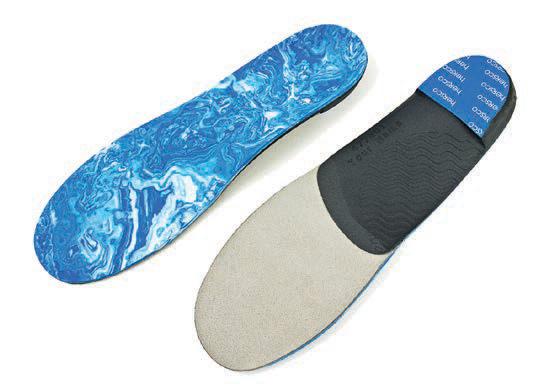
At Hersco, we pride ourselves on being on the leading edge of technology. We have mastered the art of accepting scans and 3D printing to bring you precise orthotics every time. Our team works to deliver custom orthotics tailored to each individual’s needs and specifications. We also keep an exact digital record of each patient’s foot orthotics for ease of reproduction.
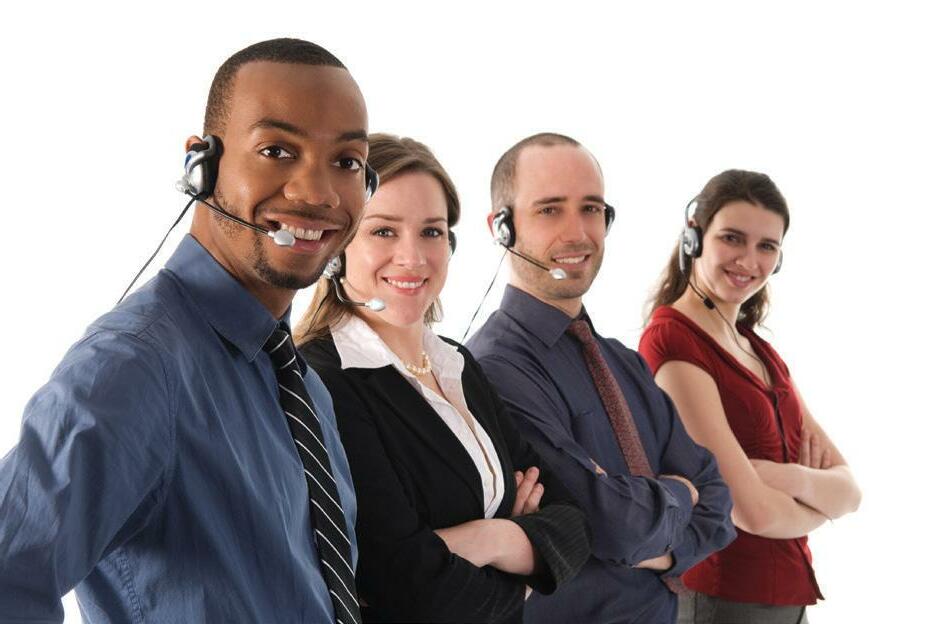
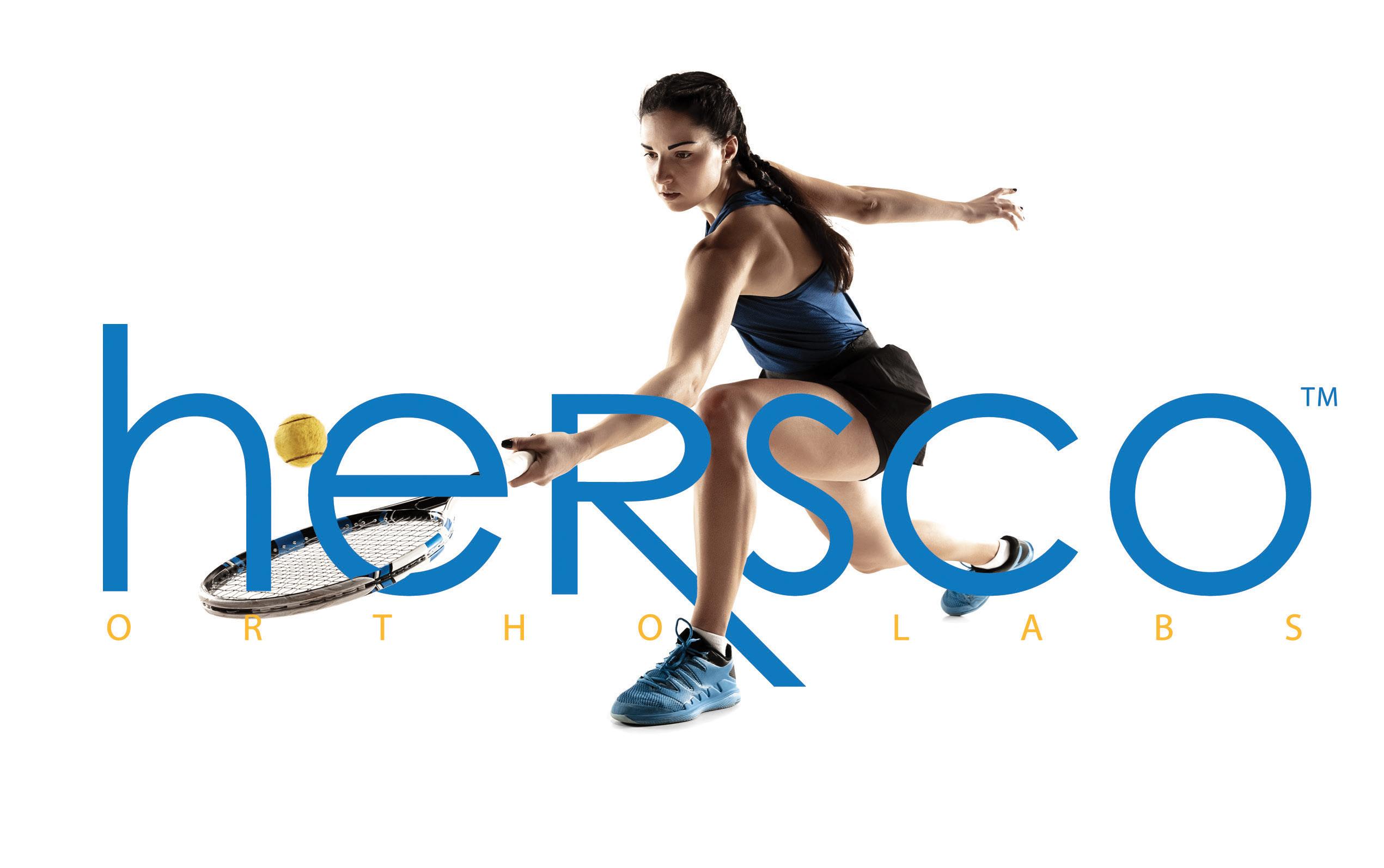
Adding postmastectomy products and services at an O&P facility fills a need for a significant patient base requiring specialized bras and prostheses—while boosting the business’s bottom line. Learn tips for integrating services for breast cancer surgery patients in a diligent and efficient way.
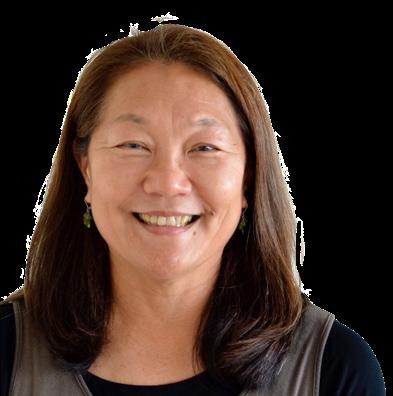




 Christine Umbrell
Christine Umbrell
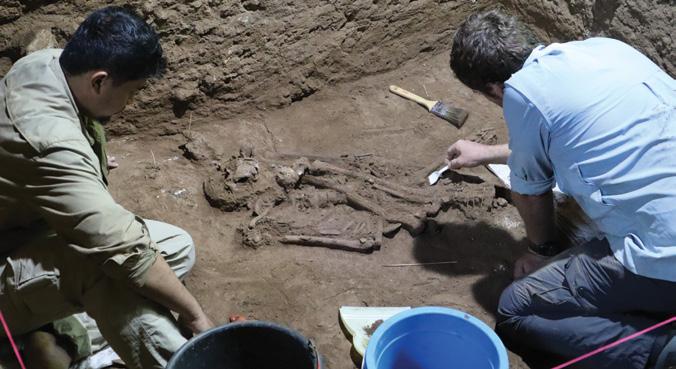
Thousands of O&P stakeholders traveled to San Antonio for the 2022 AOPA National Assembly. See highlights of the event—from awards and informationpacked sessions, to exhibits and activities, and more.
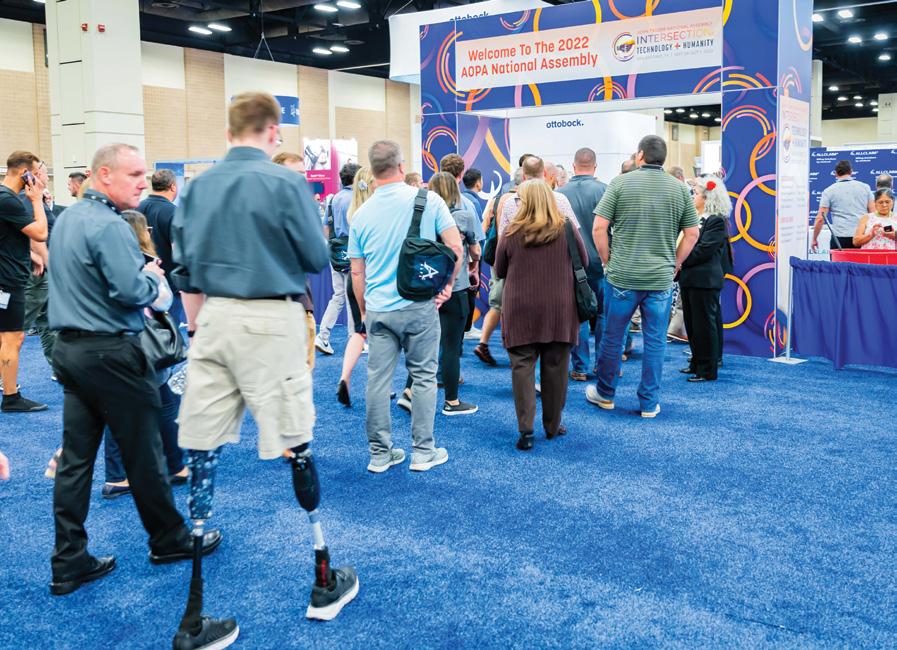
O&P marketing experts share strategies for building brand awareness, leveraging social media, and engaging with referral sources to promote their facilities.



program
clinician
of the

Washington.
program

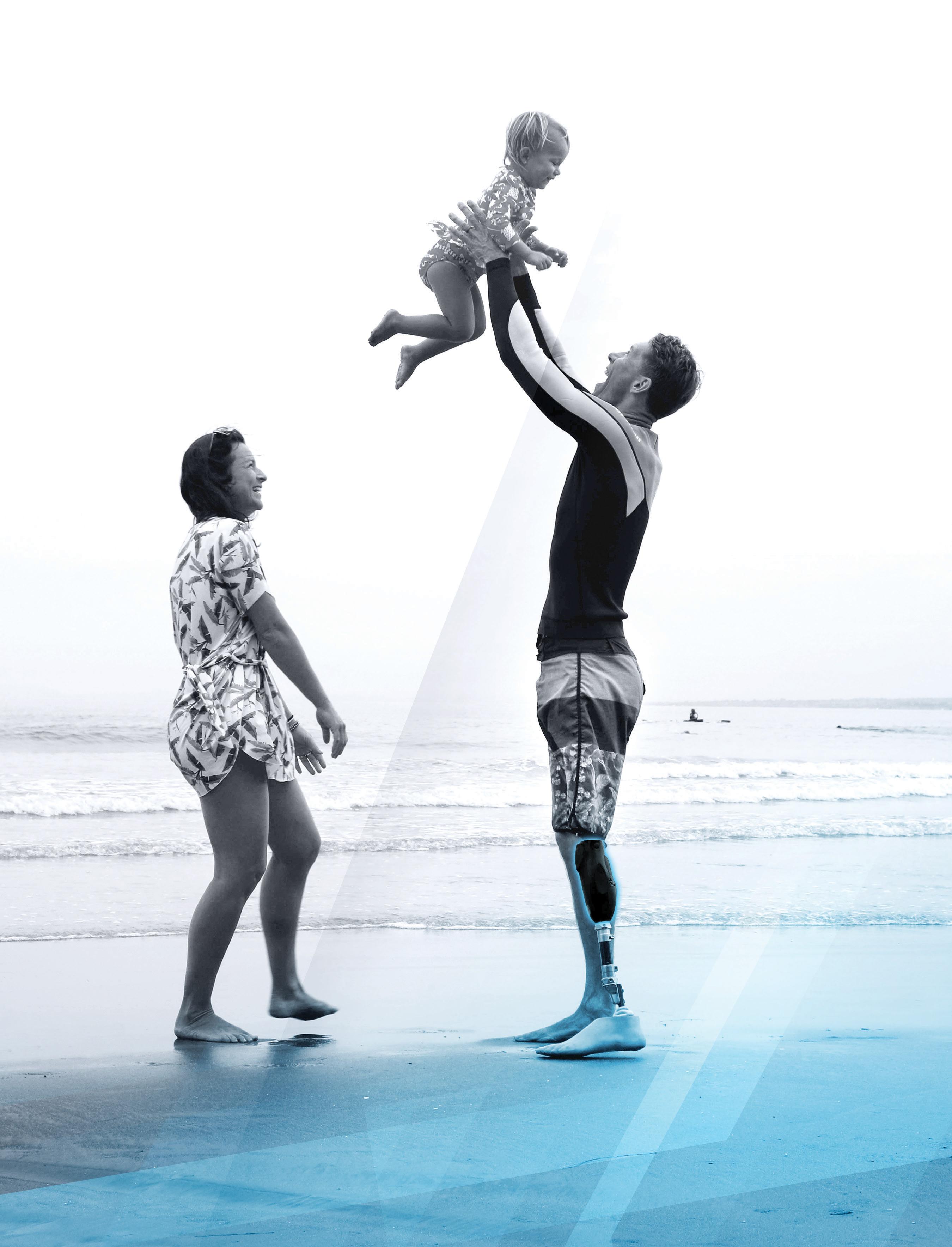
OW ARE WE GOING to address the reimbursement challenges facing O&P?”
“We need to get O&P separated from durable medical equipment (DME)!” These two statements—and minor variations thereof—are two longstanding and increasingly urgent things we hear from our members.
AOPA already has a long history of fighting to achieve both of these goals, whether it’s pushing back at policy changes that negatively affect reimbursement, or trying to pass legislation that better defines the role of certified/licensed prosthetists and orthotists in providing uniquely customized patient care. But there’s also something that all AOPA members can and should consider doing themselves that can help us advance these objectives: Join the Limb Loss and Preservation Registry (LLPR).
The purpose of the registry is straightforward: to improve functional outcomes for patients with limb difference, preservation, and/or loss. The registry starts by collecting real-world clinical data from O&P facilities across the United States. With enough data, you can use the data to evaluate treatment options with your patients and set realistic goals. In addition, trends in the data will reveal quality improvement programs that consistently lead to better outcomes. And lastly, the registry will sup port new and innovative scientific research that advances the field.
Data will be collected on 1) amputations and hospitalizations, 2) prosthetic fittings and the providers of those prostheses, and 3) patient-reported outcomes. Objective data will be collected on how well patients are functioning. This demographic and quality improvement data will materially and positively affect AOPA’s ability to speak to government and commercial health plans and both regulators and legislators at the state and federal levels.
Contrast that with where we are today: We have no credible national data regarding limb loss, limb difference, or limb preservation. We don’t have reliable data on basic topics of interest like patient falls or comorbidities. Even the things that we do know and that are generally accepted in O&P care often lack objective, quantifi able support.
Signing up for the registry costs you nothing today. The process is secure and compliant with the Health Insurance Portability and Accountability Act—only deidentified patient data gets pushed from your EMR to the registry. When you become part of it, you’ll also receive quarterly reports showing the quality of the data you’re uploading.
As someone who looks at O&P through a reimbursement and regulatory lens, I can tell you that without this kind of data, AOPA’s ability to address both reimbursement challenges and the “separation of O&P from DME” issue will be impaired. With this information, however, we can engage with government and commercial health plans in new and effective ways.
AOPA proudly supports the Limb Loss and Preservation Registry. And while I know that everyone in O&P is confronting historical challenges to their businesses, having less and less time to spend on anything seen as extraneous to the core task of patient care, I urge you to make the time to join the registry. Once you join, you won’t need to do anything more than you currently do to provide the best patient care possible. You can start the process of joining the registry at llpregistry.org/join. Thank you in advance for taking this important step toward a better future for O&P!
Dave McGill is president of AOPA.
Specialists in delivering superior treatments and outcomes to patients with limb loss and limb difference.
President Dave McGill
Össur Americas, Foothill Ranch, CA
Teri Kuffel, JD
Arise Orthotics & Prosthetics, Spring Lake Park, MN
Vice President Mitchell Dobson, CPO Hanger, Austin, TX
Immediate Past President Traci Dralle, CFm Fillauer Companies, Chattanooga, TN
O&P Almanac (ISSN: 1061-4621) is published monthly, except for combined issues in June/July and November/December, by the American Orthotic & Prosthetic Association, 330 John Carlyle St., Ste. 200, Alexandria, VA 22314. To subscribe, contact 571/431-0876, fax 571/431-0899, or email info@aopanet.org. Yearly subscription rates: $59 domestic, $99 foreign. All foreign subscriptions must be prepaid in U.S. currency, and payment should come from a U.S. affiliate bank. A $35 processing fee must be added for non-affiliate bank checks. O&P Almanac does not issue refunds. Periodical postage paid at Alexandria, VA, and additional mailing offices.
Treasurer Rick Riley Xtremity, Denver, CO
POSTMASTER: Send address changes to: O&P Almanac, 330 John Carlyle St., Ste. 200, Alexandria, VA 22314.
Executive Director/Secretary Eve Lee, MBA, CAE
AOPA, Alexandria, VA
Jeffrey M. Brandt, CPO
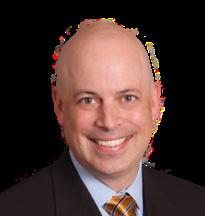
Brandt Ventures, LLC, Chester Springs, PA
Elizabeth Ginzel, MHA, CPO Össur, Fort Worth, TX
Kimberly Hanson, CPRH Ottobock, Austin, TX
John “Mo” Kenney, CPO, FAAOP
Kenney Orthopedics, Lexington, KY
Jim Kingsley Hanger Clinic, Oakbrook Terrace, IL
Linda Wise
Copyright © 2022 American Orthotic and Prosthetic Association. All rights reserved. This publication may not be copied in part or in whole without written permission from the publisher. The opinions expressed by authors do not necessarily reflect the official views of AOPA, nor does the association necessarily endorse products shown in the O&P Almanac. The O&P Almanac is not responsible for returning any unsolicited materials. All letters, press releases, announcements, and articles submitted to the O&P Almanac may be edited for space and content. The magazine is meant to provide accurate, authoritative information about the subject matter covered. It is provided and disseminated with the understanding that the publisher is not engaged in rendering legal or other professional services. If legal advice and/or expert assistance is required, a competent professional should be consulted.
Fillauer Companies, Chattanooga, TN
Shane Wurdeman, MSPO, PhD, CP, FAAOP(D)
Research Chair, Hanger Clinic, Houston Medical Center, Houston, TX
James O. Young Jr., CP, LP, FAAOP
Amputee Prosthetic Clinic, Tifton, GA
Reach out to AOPA’s membership and more than 11,400 subscribers. Engage the profession today. Contact Bob Heiman at 856/520-9632 or email bob.rhmedia@comcast.net Visit bit.ly/AOPAMedia2022 for advertising options!

A trusted partner, advocating for and serving the orthotic and prosthetic community by:
• Fostering relationships with decision makers to ensure equitable access
• Providing education that promotes professional excellence
• Supporting research that informs innovative care
• Advancing equality to strengthen the orthotic and prosthetic profession and improve the lives of patients.
A world where orthotic and prosthetic care transforms lives.
330 John Carlyle St., Ste. 200 Alexandria, VA 22314
AOPA Main Number: 571/431-0876
AOPA Fax: 571/431-0899 AOPAnet.org
Eve Lee, MBA, CAE, executive director, 571/431-0807, elee@AOPAnet.org
Akilah Williams, MBA, SHRM-CP, senior manager for finance, operations, and HR, 571/431-0819, awilliams@AOPAnet.org
Joe McTernan, director of health policy and advocacy, 571/431-0811, jmcternan@AOPAnet.org
Devon Bernard, assistant director of coding and reimbursement services, education, and programming, 571/431-0854, dbernard@AOPAnet.org
Sam Miller, manager, state and federal advocacy, 571/431-0814, smiller@AOPAnet.org
Susannah Engdahl, PhD, manager, health policy and research, 571/431-0843, sengdahl@AOPAnet.org
Tina Carlson, CMP, senior director, education and meetings, 571/431-0808, tcarlson@AOPAnet.org
Kelly O’Neill, CEM, senior manager of meetings and exhibition, 571/431-0852, kelly.oneill@AOPAnet.org
Kristen Bean, digital meetings specialist, 571/431-0876, kbean@AOPAnet.org
Joy Burwell, director of communications and membership, 571/431-0817, jburwell@AOPAnet.org
Betty Leppin, senior manager of member services, 571/431-0810, bleppin@AOPAnet.org
Nicole Ver Kuilen, manager of public engagement, 571/431-0836, nverkuilen@AOPAnet.org
Timishia Bannister, membership coordinator, 571/431-0835, tbannisterAOPAnet.org
AOPA Bookstore: 571/431-0876
Eve Lee, MBA, CAE, executive director/ publisher, 571/431-0807, elee@AOPAnet.org
Josephine Rossi, editor, 703/662-5828, jrossi@contentcommunicators.com
Catherine Marinoff, art director, 786/252-1667, catherine@marinoffdesign.com
Bob Heiman, director of sales, 856/520-9632, bob.rhmedia@comcast.net
Christine Umbrell, editorial/production associate and contributing writer, 703/6625828, cumbrell@contentcommunicators.com
O&P Almanac (ISSN: 1061-4621) is published monthly, except for combined issues in June/July and November/December, by the American Orthotic & Prosthetic Association, 330 John Carlyle St., Ste. 200, Alexandria, VA 22314. To subscribe, contact 571/431-0876, fax 571/431-0899, or email info@aopanet.org. Yearly subscription rates: $59 domestic, $99 foreign. All foreign subscriptions must be prepaid in U.S. currency, and payment should come from a U.S. affiliate bank. A $35 processing fee must be added for non-affiliate bank checks. O&P Almanac does not issue refunds. Periodical postage paid at Alexandria, VA, and additional mailing offices.
POSTMASTER: Send address changes to: O&P Almanac, 330 John Carlyle St., Ste. 200, Alexandria, VA 22314.
Copyright © 2022 American Orthotic and Prosthetic Association. All rights reserved. This publication may not be copied in part or in whole without written permission from the publisher. The opinions expressed by authors do not necessarily reflect the official views of AOPA, nor does the association necessarily endorse products shown in the O&P Almanac. The O&P Almanac is not responsible for returning any unsolicited materials. All letters, press releases, announcements, and articles submitted to the O&P Almanac may be edited for space and content. The magazine is meant to provide accurate, authoritative information about the subject matter covered. It is provided and disseminated with the understanding that the publisher is not engaged in rendering legal or other professional services. If legal advice and/or expert assistance is required, a competent professional should be consulted.
Reach out to AOPA’s membership and more than 11,400 subscribers. Engage the profession today. Contact Bob Heiman at 856/520-9632 or email bob.rhmedia@comcast.net Visit bit.ly/AOPAMedia2022 for advertising options!
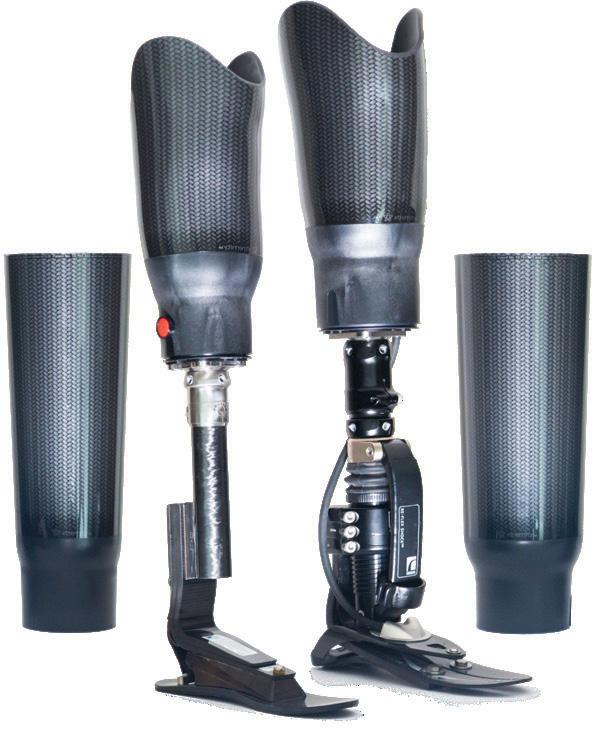
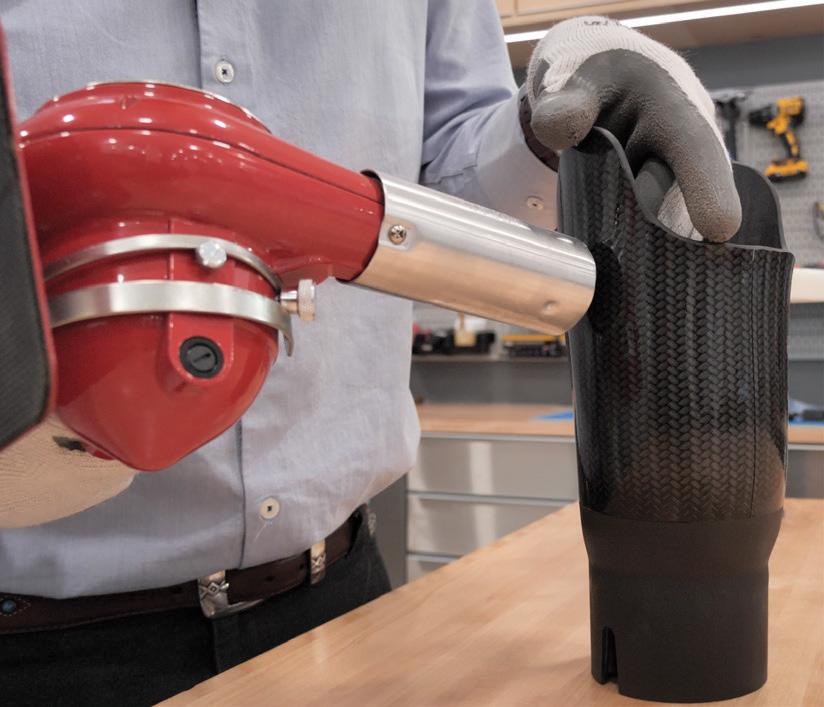
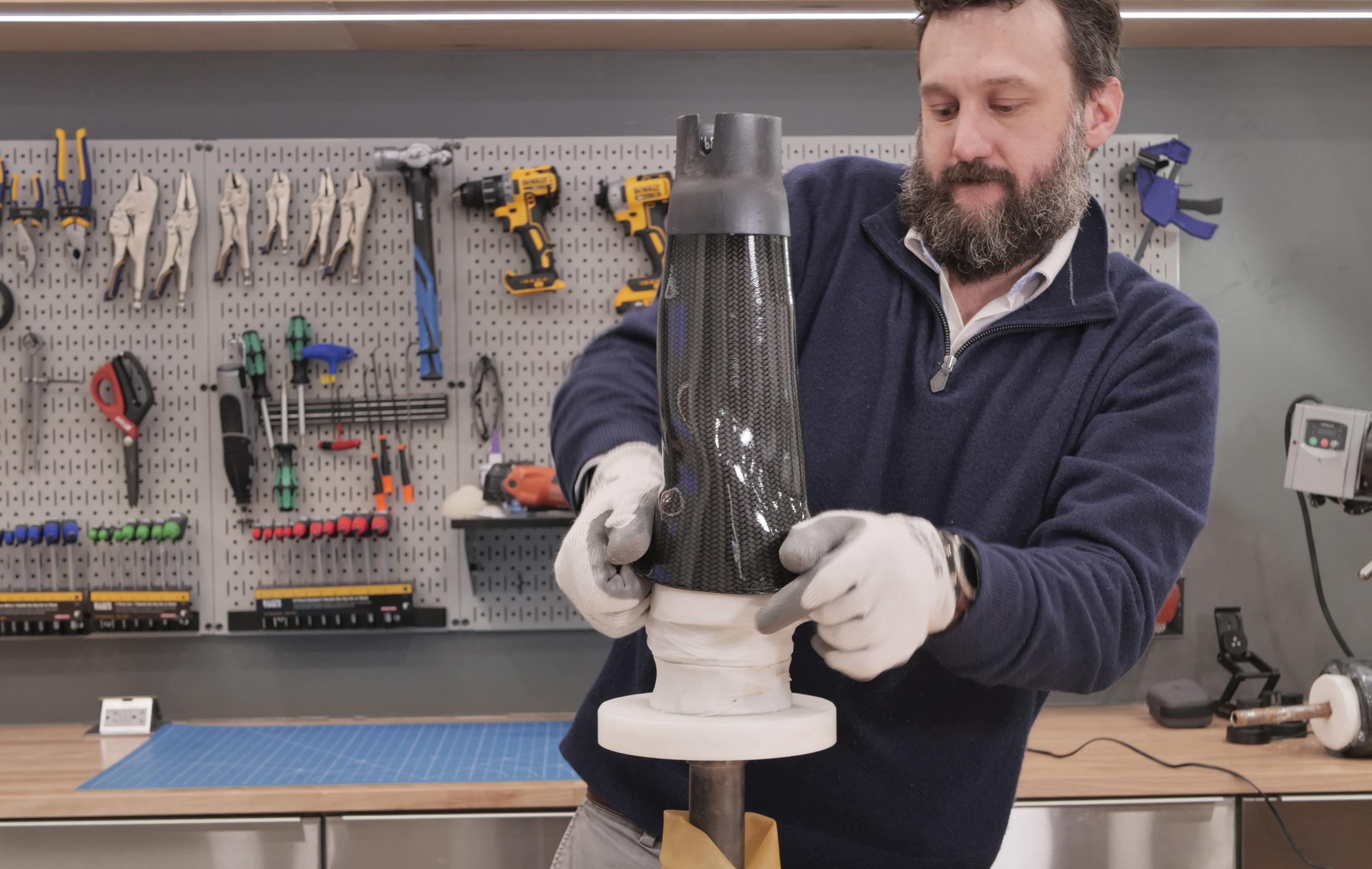
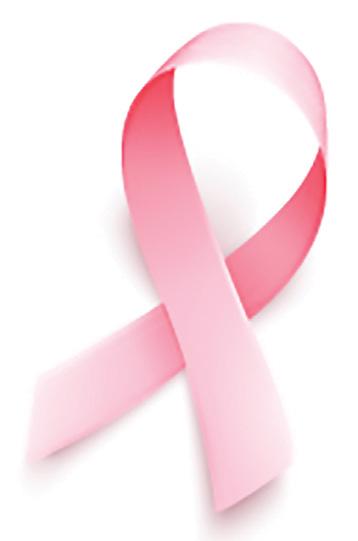
O&P facilities that offer postmastectomy products and services fill an important need for a significant patient population. Breast cancer is the second most common cancer among women, after skin cancer. Some breast cancer patients require mastectomies, and some choose breast reconstruction surgeries—many of these patients seek out breast prostheses, partial forms, and/or mastectomy bras after their surgeries.
Number of U.S. women who undergo some form of mastectomy each year
Annual percentage of U.S. women who undergo breast reconstruction surgery postmastectomy
SOURCES: National Breast Cancer Foundation Inc.; National Cancer Institute; American Society of Plastic Surgeons; American Board for Certification in Orthotics, Prosthetics, and Pedorthics; Board of Certification/Accreditation


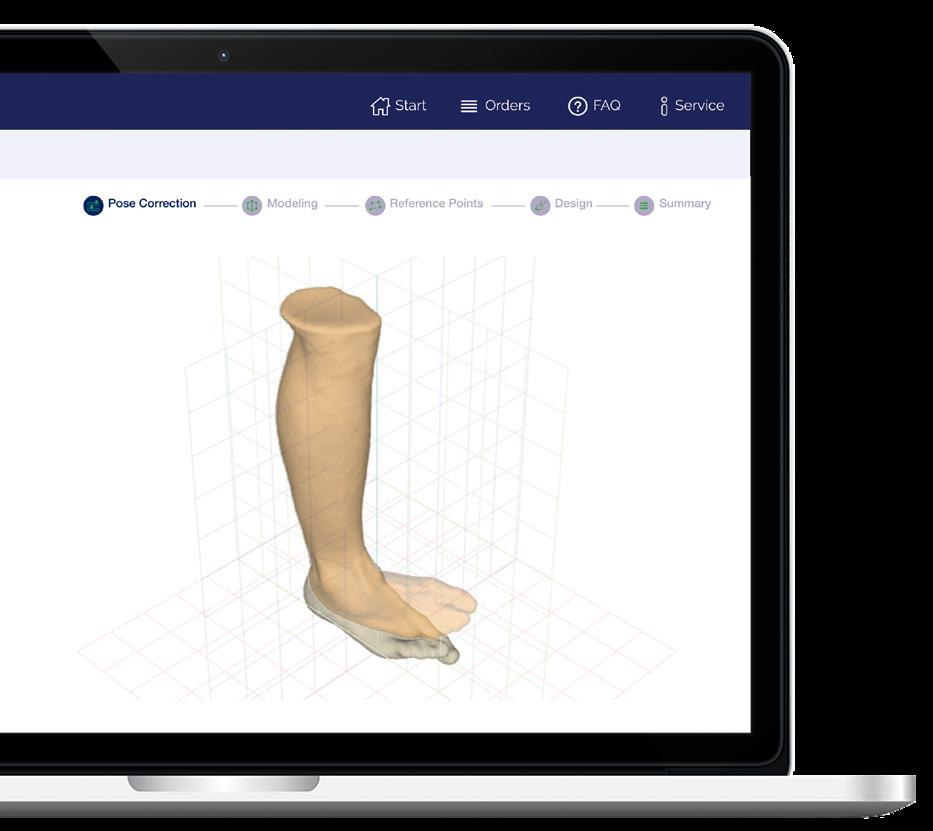
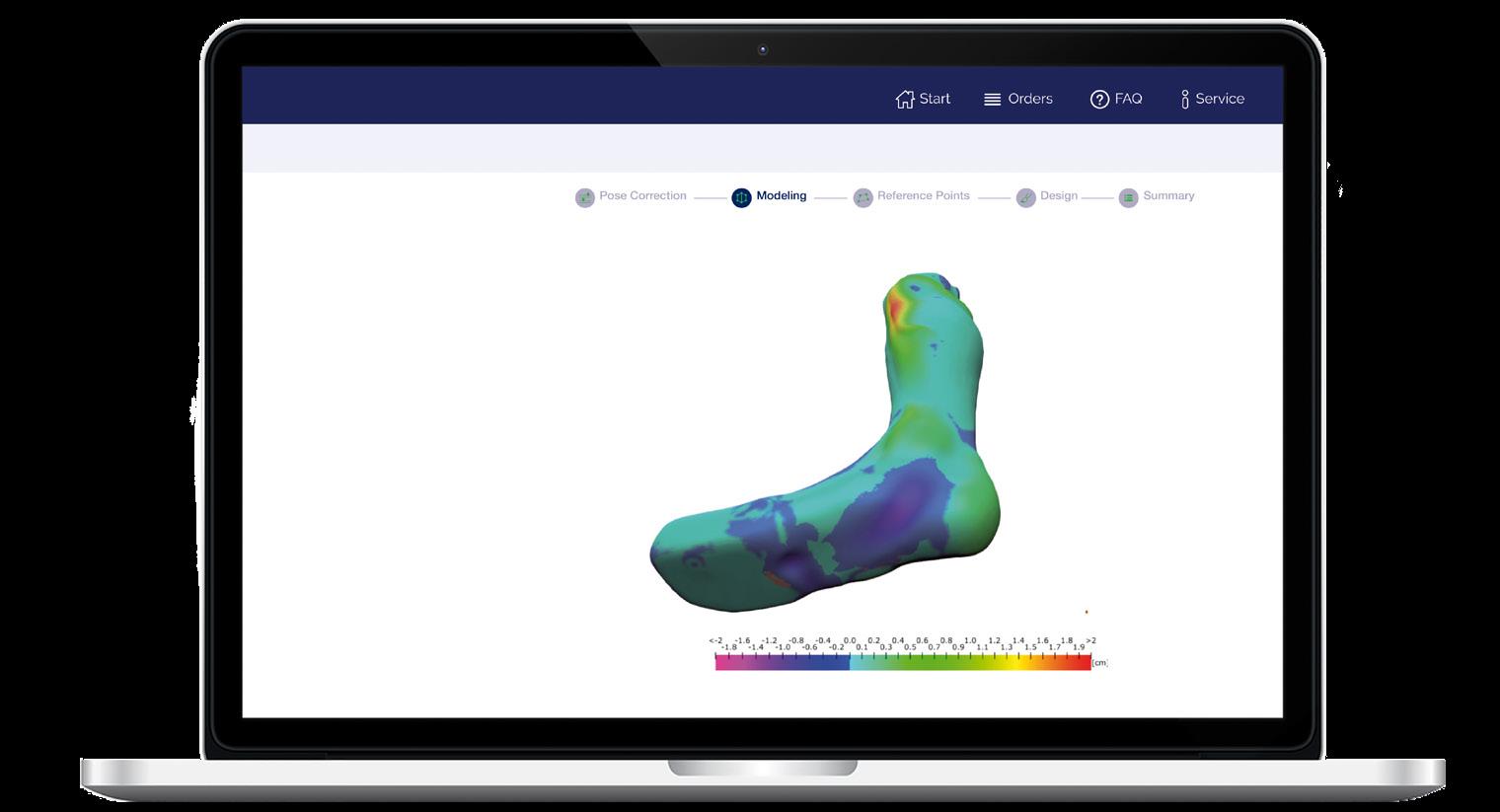
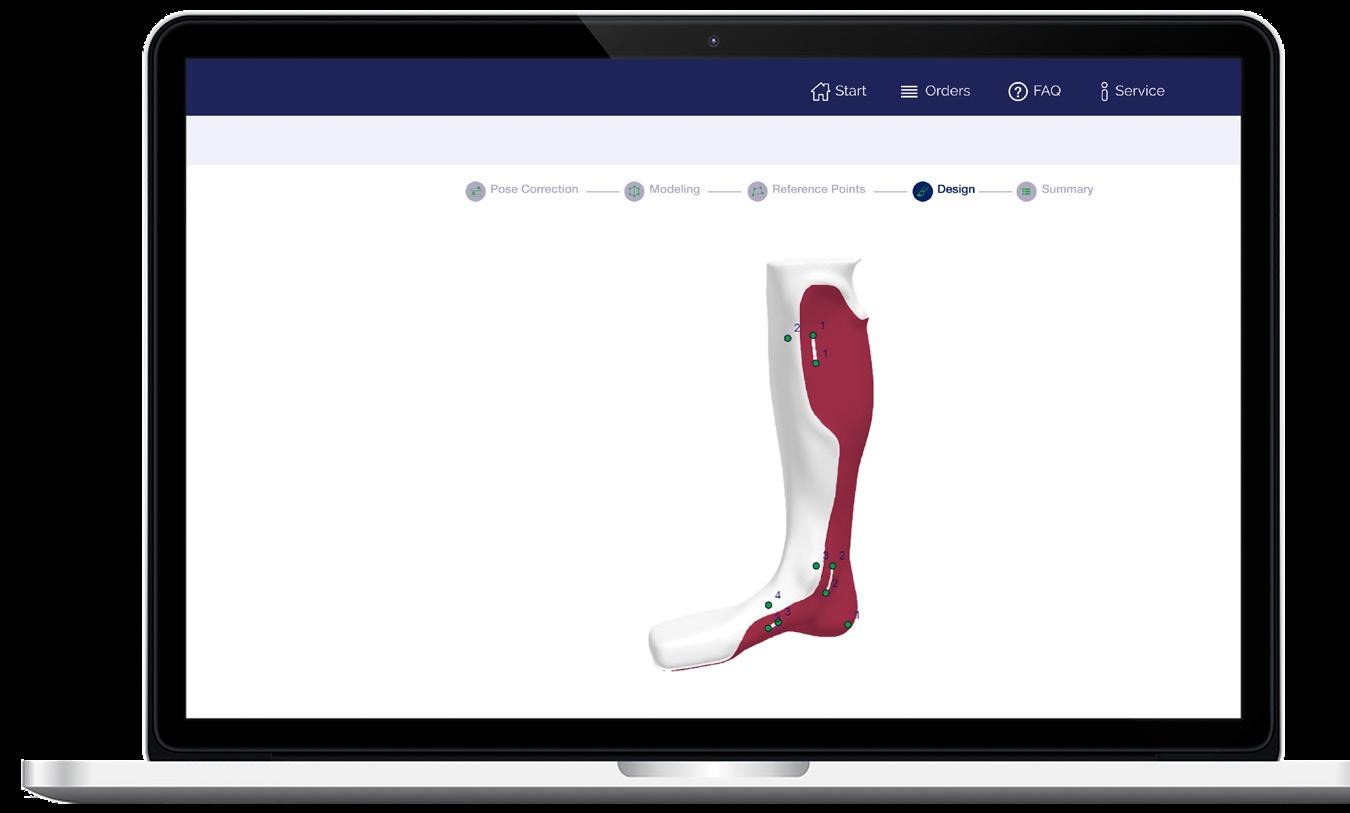



Black/African-American individuals who have diabetic foot ulcers (DFUs) are more likely to receive an early lower-limb amputation compared with non-Hispanic individuals, according to a new study conducted by the Hanger Institute for Clinical Research and Education in partnership with CareJourney. The study, “Racial Disparities in Healthcare With Timing to Amputation Following DFU,” was published in September in Diabetes Care Taavy Miller, MPO, CPO, James Campbell, PhD, and Shane Wurdeman, PhD, CP, FAAOP, from Hanger Institute and Nick Bloom from CareJourney conducted a retrospective cohort analysis of more than 640,000 enrolled Medicare fee-forservice beneficiaries with a diagnosis of DFU between 2012 and 2017. They found that Black patients have 98% increased odds of receiving a lower-limb amputation within the first year following a DFU diagnosis compared to white beneficiaries. In addition to racial disparities, the study also found moderate differences in care across gender for Medicare fee-for-service patients with DFU, with females having 7% to 8% increased
odds of lower-limb amputation occurring later as compared to their male counterparts.
“We’ve all observed the glaring disparities in quality out comes by race throughout the pandemic, but these findings were an even greater shock for me,” said Aneesh Chopra, CareJourney president and former U.S. chief technology officer under President Barack Obama. “With one out of three Medicare beneficiaries managing diabetes, it’s imperative that equitable care, driven by clinical evidence, is provided despite race, gender, or any other trait that makes an individual unique.”
Diabetes affects more than 37 million people in the U.S., with 25% of those individuals likely to experience a DFU in their lifetime. “The first step to dismantling inequities is identifying where they are occurring,” said Campbell, Hanger chief clinical officer. “This foundational work provides a springboard to address disparities and our continued efforts to understand the positive and negative impact of earlier or delayed amputation on long-term outcomes, promoting better guidance for evidence-based decision making.”
A group of scientists from the United States, Canada, Europe, and South Africa delved into the topic of phantom limb pain to study the challenges of pain research, demographic and amputation-related factors, clinical efficacy of treatments, and recommendations for improved treatments. The research team, which included Chris Baker, PhD, and Hunter Schone from the National Institutes of Health, published its findings in August in Journal of Neurology, Neurosurgery, and Psychiatry.
The researchers defined the challenges involve in studying phantom limb pain, which include that it is a “multifaceted experience [that] reflects the combined sensory, emotional, and cognitive domains”; that it is difficult to measure and quantify; and that there is a relatively low prevalence of amputation within the general population, with a large number of variables to consider. “‘Phantom limb pain’ is an umbrella term for a hugely heterogenous phenomenon,” reported the study authors. They examined
several large-sample surveys and meta-analyses and found that estimates of phantom pain are highly varied, so reports of prevalence should be “interpreted with caution.”
The team also found the most common factor positively associated with phantom limb pain to be residual limb pain, with “prevalence estimates of residual limb pain” shown to be similar to phantom limb pain. Considering the high covariation between the two types of pain, “it is essential to understand whether these two pain phe nomena relate to each other mechanistically,” they noted.
Although the researchers identified more than 60 poten tial viable treatments for phantom limb pain—including both pharmacological and nonpharmacological interventions—no consensus has been achieved, according to the authors, and there is not sufficient strong evidence to support the efficacy of any treatment. They note that further study into evaluating research practices and care is needed, and suggest developing standardized, quantifiable measures.
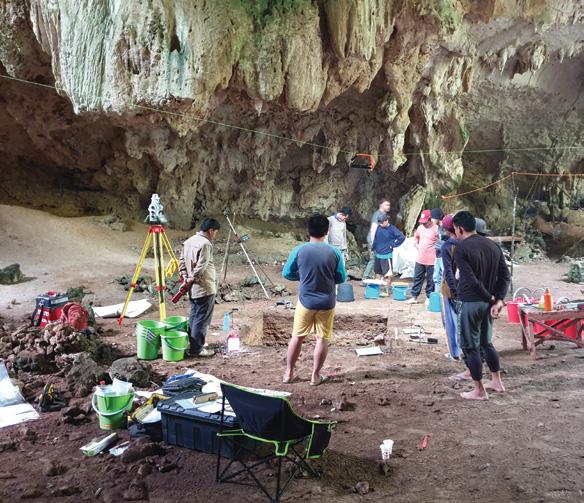
Archaeologists working in a remote part on Indonesian Borneo recently uncov ered a young person’s skeleton indicating a successful lower-limb amputation performed 31,000 years ago. Scientists determined that a Homo sapiens’ lower left leg was skillfully severed and sub sequently healed. The limb had been cleanly removed via surgical amputation at the position of the distal tibia and fibula shafts, according to the researchers, and the individual lived for six to nine years postamputation, according to the bone growth. The individual was likely male and approximately 19 or 20 years old when he died, according to the research team.
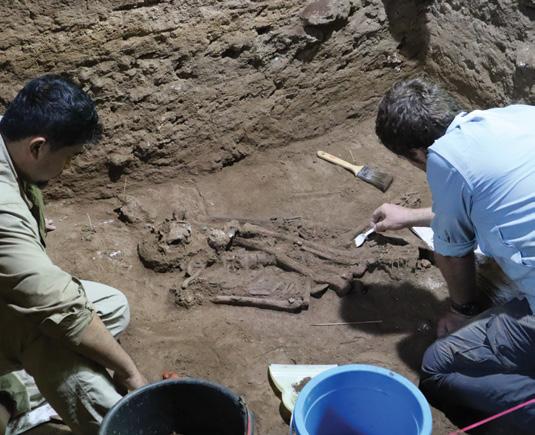

Scientists discovered that the bone on the amputated side developed atrophy,
O&P ORGANIZATIONSwhich likely means the residual limb had limited use. “The discovery of this exceptionally old evidence of deliberate amputation demonstrates the advanced level of med ical expertise developed by early modern human foragers in a Late Pleistocene tropical rainforest environment on the eastern margins of Sunda,” noted the researchers in the September 7 edition of Nature. “We infer that the compre hensive knowledge of human anatomy, physiology, and surgical procedures evident in [the patient’s] community is likely to have been developed by trial and error over a long period of time and transmitted intergenerationally through oral traditions of learning.”
The Orthotic and Prosthetic Education and Research Foundation (OPERF) and the Center for Orthotic and Prosthetic Learning and Outcomes/EvidenceBased Practice (COPL) announced a merger into one entity under the name and management of the Orthotic and Prosthetic Foundation for Education and Research (The Foundation). The goal is to create synergies, reduce future O&P research redundancy, further the evolution toward a unified voice for the O&P profession, and increase the value proposition to their subscribers by enhancing and leveraging investments.
The Foundation’s mission is to advance the art and science of O&P rehabilitation by enhancing clinical practices through professional training awards, promoting educational oppor tunities through academic scholarships, strengthening the body of knowledge through research grants and fellowships, and inspiring excellence through the recognition of scholarly achievements.
The two organizations began informal discussions about the merger in early 2020. “I couldn’t be more pleased to have been a part of this most thoughtful and deliberate process of establishing the structure for this newly merged Foundation to support the research efforts of so many deserving individuals, and to further extend much needed support for O&P students,” said Don Katz, MHA, CO, LO, FAAOP, chairperson of OPERF.
“This merger represents the exciting and rapid growth of O&P education and research,” said Shane Wurdeman, PhD, CPO, FAAOP(D), chair of the COPL Board of Directors. “It will create opportunities for O&P research, the profession, and most importantly, for the patients it serves.”
The merger was completed September 30, and The Foundation began opera tion October 1. A transition board has been appointed to The Foundation for a period of 12 months, with Katz and Wurdeman serving as co-chairs.
In the Amputee Coalition’s recent “Survey of People With Limb Loss and Difference,“ respondents of color more often reported access challenges to receiving comprehensive care, rehabilitation services, non-opioid pain treatment, and mental health services than white respondents.
Curt Bertram, CPO, FAAOP, has joined O&P Insight as a managing partner. “Curt’s vast experience in clinical matters related to coding, reimbursement, and documen tation adds a depth of value to our services that cannot be surpassed,” said Lesleigh Sisson, CFo, CFm, founder of O&P Insight. Bertram is a past president of the American Board for Certification in Orthotics, Prosthetics, and Pedorthics and current chair for the AOPA Coding and Reimbursement Committee. He has presented nationally and interna tionally on pediatric orthotics, compliance, and clinical documentation. He works closely with clinicians on defen sible documentation that will support medical necessity and policy coverage. He also works with facilities to write appeals to assist in reversing denials and recoupments.
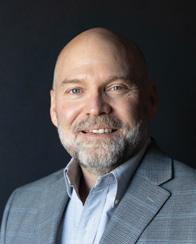
Andy Besser, CPO, LPO, has been named director of operations for American Prosthetics & Orthotics (APO), which has patient-care facili ties in Ames, Clive, Des Moines, Davenport, Iowa City, West Burlington, and Moline, Illinois. Besser will be responsible for the day-to-day operations of the company. He has been with APO for 24 years and has served as branch manager for Eastern Iowa. Besser “has consistently exceeded expectations for our company and its patients; we have no doubt he will continue to excel as he represents APO in this new position,” said Ron Cheney, APO’s president.
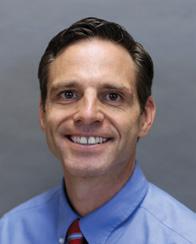
Nina Bondre, CPO, has been selected as the 2022 O&P Woman of the Year. Orthotic Prosthetic Group of America (OPGA) presented the award to Bondre during the AOPA National Assembly. Bondre is an education specialist with Ottobock Healthcare and is the co-founder of a Diversity Council at Ottobock, where she has started a mentorship program and led an Inclusion Workshop for Ottobock’s North America executive team. Most recently, she has been exploring design thinking and its applications to the patient experience. Bondre is currently pursuing a Master of Business Administration at The Wharton School at the University of Pennsylvania and hopes to become a bridge between clinicians and corporations to improve care in O&P.
“Nina’s commitment to furthering her own education, while at the same time being committed to making O&P care more inclusive and attainable for patients, represents everything this award is about,” said Adam Miller, president of OPGA. “Her contributions are helping move our profession forward.”
David Boone, PhD, MPH, CP, was awarded the inaugural Professor Hans Georg Näder Digital O&P Care Award during the AOPA National Assembly in September. Näder travelled to San Antonio to present the award.
The purpose of the O&P Digital Care Award is to prepare the O&P profession for the future as digital care and innovations in technology continue to lead the direction of patient care. Boone was selected for the award based on the magnitude of his work in the O&P digital care space as an innovator, developer, and researcher. Boone has been contributing to research in the digital space since 1981 and has been involved with CAD development, microprocessor component development, outcomes data collection, manage ment, and more.
The funding for this annual award has been provided by Ottobock Healthcare in honor of Professor Hans Georg Näder and his many contributions to the O&P field worldwide.
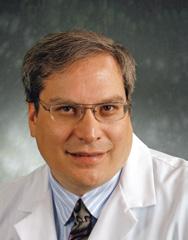
Jamie Downing has joined VGM & Associates as senior vice president of program development.

Downing has more than 30 years’ expe rience in strategic healthcare leadership, accelerating top- and bottom-line growth and execution. For the past 12 years, Downing has been the president and part owner of the Sleep Wellness Institute, a clinical diagnostic sleep and respiratory durable medical equipment (DME) company.
Downing will join the VGM & Associates leadership team and will focus on the creation and implementation of peer learning communities that will soon be offered by VGM. “I am enthusi astic about combining my extensive business background and experience with the industry leader in DME,” Downing said. “Specifically, building and facilitating program development in new member peer groups will be a main function of my role.”
Judi L. Knott, MA, MBA, has been appointed president and CEO of the Board of Certification/Accreditation (BOC), effective Jan. 1, 2023. Knott currently serves as BOC’s chief strategy and marketing officer.
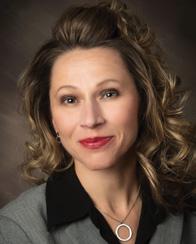
“I am fortunate to inherit an organization with a solid balance sheet, excellent, long-tenured staff, and bright future,” said Knott. “I am grateful to have the support and wisdom of a strong leadership team, including a distinguished Board of Directors, to make this a seamless executive transition.”
Since joining BOC in 2017, Knott has managed the BOC marketing, regulatory, and business development teams. She focused on BOC’s customer experience, from onboarding through retaining customers and sustaining revenue. She brings a wealth of business development and marketing experience, including experience in healthcare and financial services. She previously spent 15 years at T. Rowe Price Group
 Curt Bertram, CPO, FAAOP
David Boone, PhD, MPH, CP
Judi L. Knott, MA, MBA
Andy Besser, CPO, LPO
Nina Bondre, CPO
Jamie Downing
Curt Bertram, CPO, FAAOP
David Boone, PhD, MPH, CP
Judi L. Knott, MA, MBA
Andy Besser, CPO, LPO
Nina Bondre, CPO
Jamie Downing
working as vice president in the Retirement Plan Service Division, focused on leading participant communications, strategic marketing, and individual investor strategy.
“The Board’s unanimous vote to promote Judi to CEO was the outcome of BOC’s multiyear succession planning process,” said BOC Board Chair Wayne Rosen, BOCP, BOCO, LPO, CDME, FAAOP. “As we have worked with Judi for the past five years, the Board has been continually impressed by her commitment to BOC and its stakeholders.”
Ashlie White, MA, has been named chief programs officer at the Amputee Coalition. White will lead the National Limb Loss Resource Center, government relations, community engagement, and peer support initiatives. White recently had a successful tenure as director of health policy and strategic alliances at AOPA.
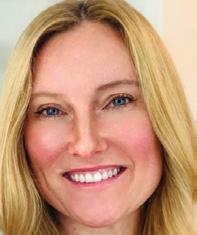
In her role as chief programs officer, White will provide strategic vision, energy, leadership, and accountability for Amputee Coalition’s strategies, plans, goals, and outcomes, with a focus on continual improvement and development.
Hanger Inc. has announced the comple tion of its previously announced transaction to be acquired by Patient Square Capital, a
dedicated healthcare investment firm, in an all-cash transac tion. The acquisition was previously announced July 21, and Hanger’s stockholders approved the transaction September 30.
With the closing of the transaction, Hanger will now be a private company. “This milestone represents an exciting new chapter for Hanger,” said Vinit Asar, president and CEO, who will continue to lead Hanger. “We look forward to partnering with Patient Square Capital to deliver continued growth, inno vation, and high-quality care, and positively impact more lives.”
VGM Insurance Services has been named in the annual Best Places to Work in Insurance program, which recognizes employers for their outstanding performance in establishing workplaces where employees can thrive, enjoy their work, and help their companies grow. The employee-owned company has more than 30 years of experience providing specialty insurance programs to clients and partners across the country.
“We are excited to once again be recognized as one of the Best Places to Work in Insurance,” said Jim Nygren, president of VGM Insurance. “Our entire team understands that to support our customers, we must support each other. We’ve cultivated a culture that encourages collaboration and professional growth, allowing each employee owner to provide the exceptional service our customers deserve.” The ranking and profiles of the winning companies will be unveiled in the November issue of Business Insurance and online at BusinessInsurance.com.
Attend the
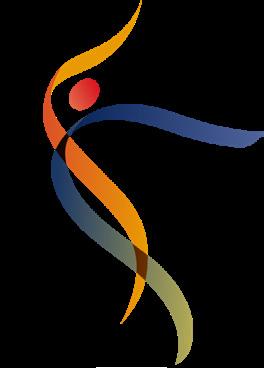
in November 7-8, 2022.
But don’t take our word for it. Attendees have said:
The Virtual Coding and Billing Seminar is what you’ve come to expect from our Coding and Billing seminars but tweaked and condensed slightly so it can be offered virtually. Content will be presented from 12-4pm ET both days.
at AOPAnet.org.
more


Editor’s Note—Readers of Reimbursement Page are eligible to earn two CE credits. After reading this column, simply scan the QR code or use the link on page 17 to take the Reimbursement Page quiz. Receive a score of at least 80%, and AOPA will transmit the information to the certifying boards.
MEMBERS FREQUENTLY request assistance from AOPA in under standing and navigating the Medicare appeals process—a process that can be confusing and frustrating. When properly understood, the Medicare appeals process can be used to your advantage to help maximize revenue for your business.
In its 2019 report to Congress, CMS reported that recovery audit contrac tors (RACs) identified almost 25,000 Medicare claims in the durable medical equipment, prosthetics, orthotics, and supplies category as overpayments; less than 10% of those overpayments were appealed. Low appeal rates play into the RACs’ hands because the RACs are paid on a contingency basis; they are counting on you to not appeal their findings because if you do win your appeal, the RACs don’t keep their contingency fee.
Of the RAC-identified overpayments that were appealed, almost 50% were eventually overturned in the provider’s favor. This represents a substantial opportunity to overturn a RAC recoup ment request for those who take the time to go through the appeal process. While the statistics do not provide any O&P-specific information, they do illustrate the value in pursuing an appeal.
This month’s Reimbursement Page reviews the five levels of the Medicare appeals process and discusses strat egies for success at each level.
The first level of appeal is redetermination
Upon denial of a Medicare claim, you have 120 days from receipt of the claim determination to file an appeal in writing. Once the request for redetermination is submitted, it will be reviewed by someone other than the person who made the initial determination, but it will be reviewed by the durable medical equipment Medicare administrative contractor (DME MAC) that processed the initial claim. You should receive a response within 45-60 days.
Reconsideration is the second level of appeal. Beginning with reconsideration, your appeal is no longer being reviewed by the DME MAC that originally pro cessed your claim. Reconsiderations are conducted by an outside qualified inde pendent contractor (QIC); Maximus Inc. is the current contractor responsible for pro cessing these requests. Reconsideration requests must be made in writing within 180 days of receipt of the redetermination decision. This is the last level of appeal where you may submit additional or new documentation supporting your assertion that the claim denial/over payment request should be overturned; after this level, you typically will not be allowed to submit new documentation unless you can prove or demonstrate good cause for why the documentation was not submitted during the first two levels of appeal. The QIC typically has 60 days from receipt of the reconsid eration request to issue a decision.
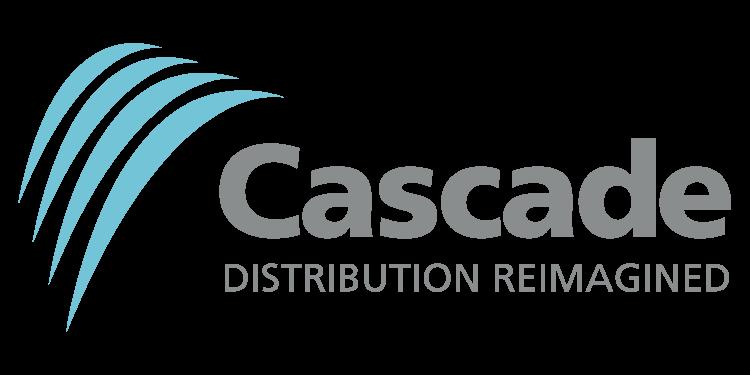
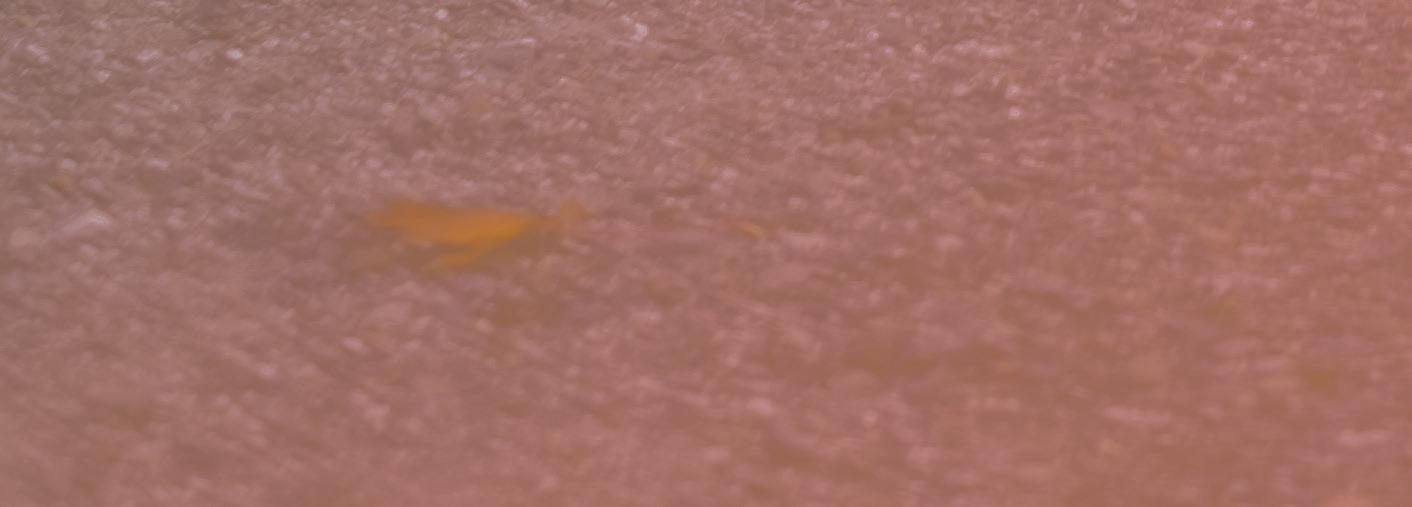
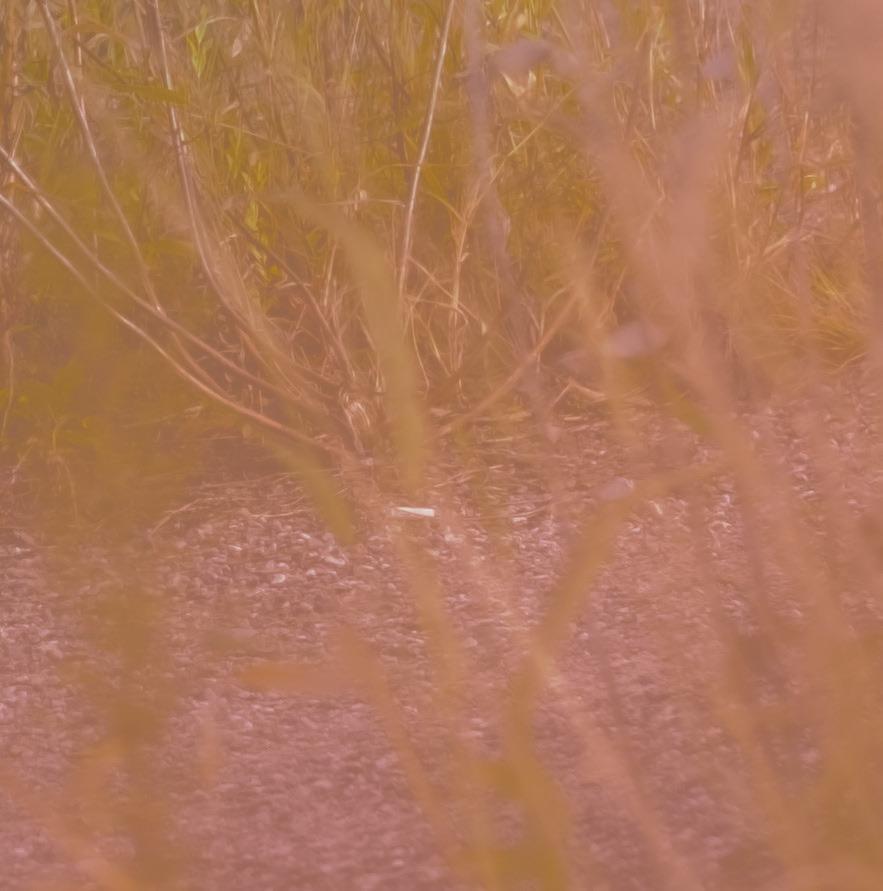

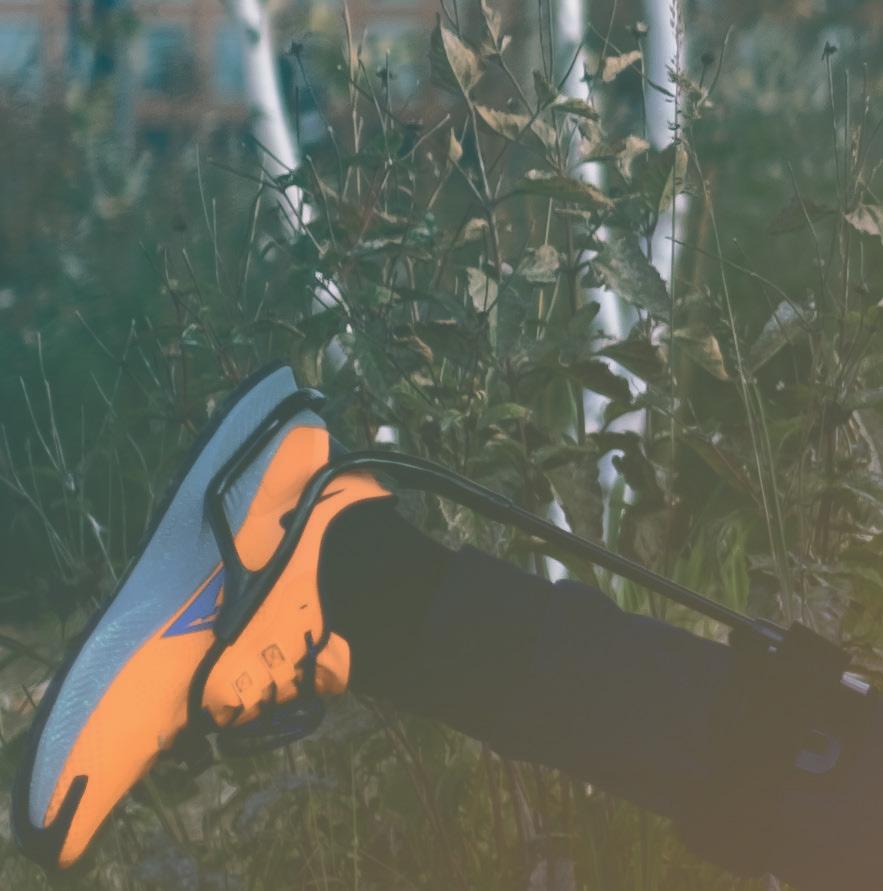
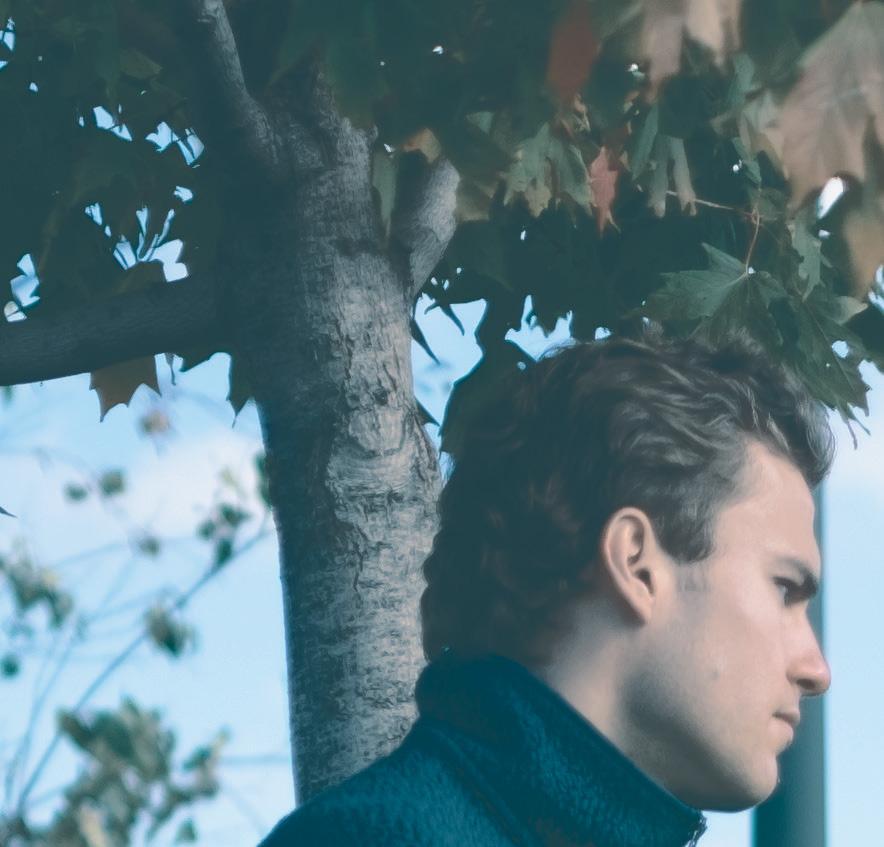
Xtern Summit is the 6th generation of the revolutionnary brace, and will replace its predecessor, the Xtern Classic, in the US.
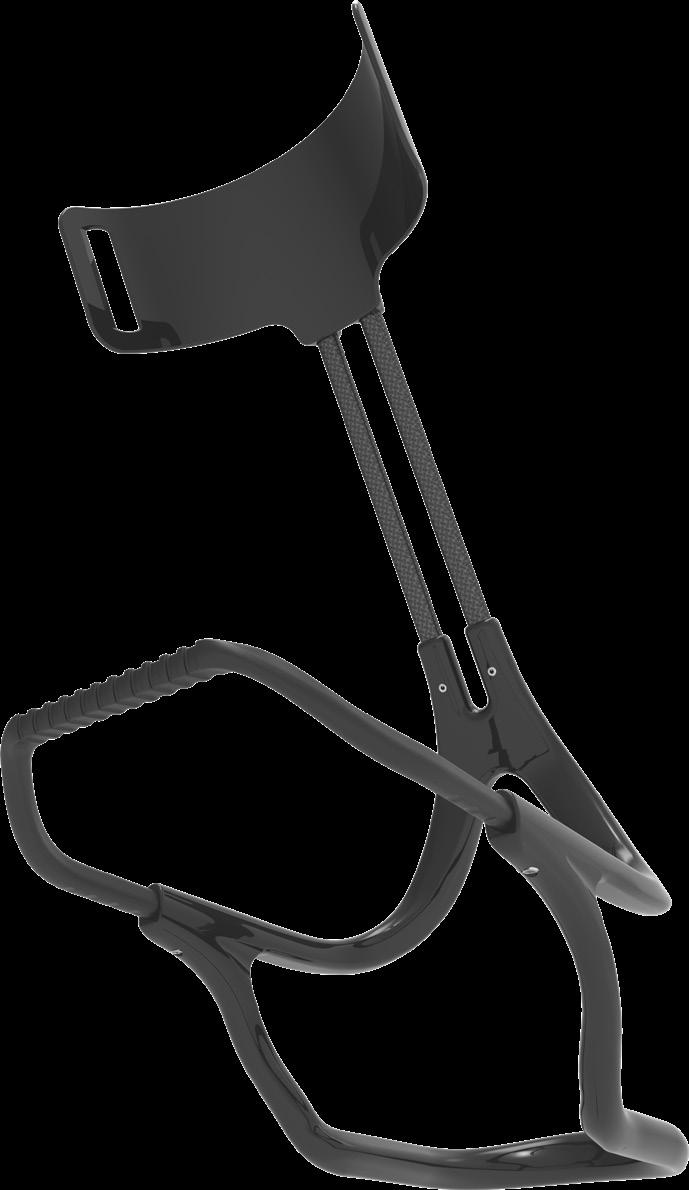
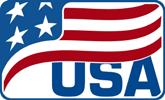
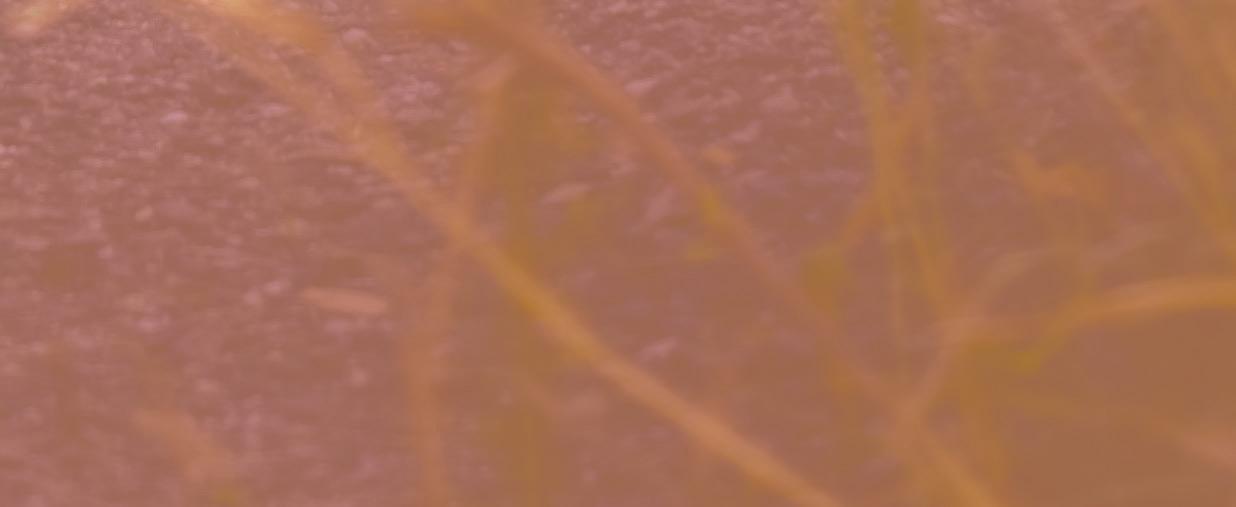
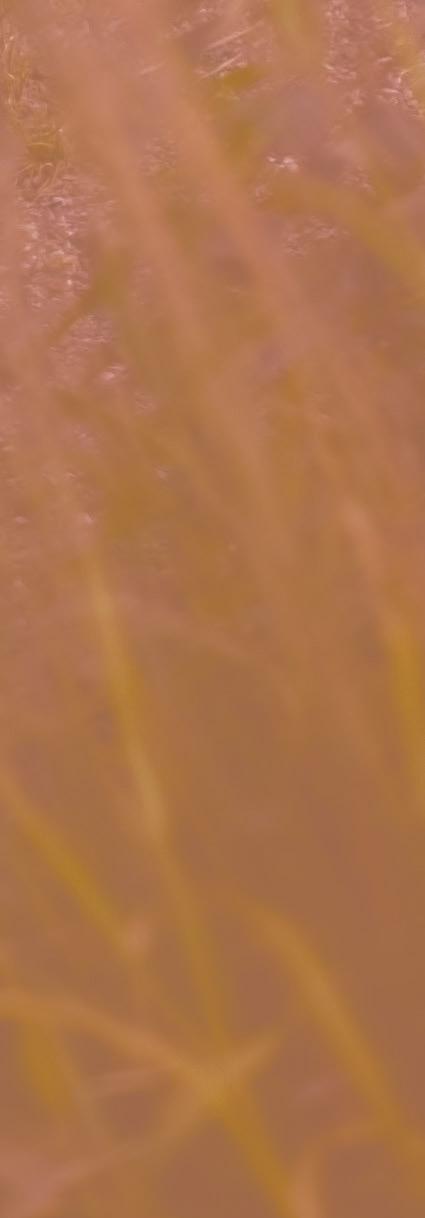
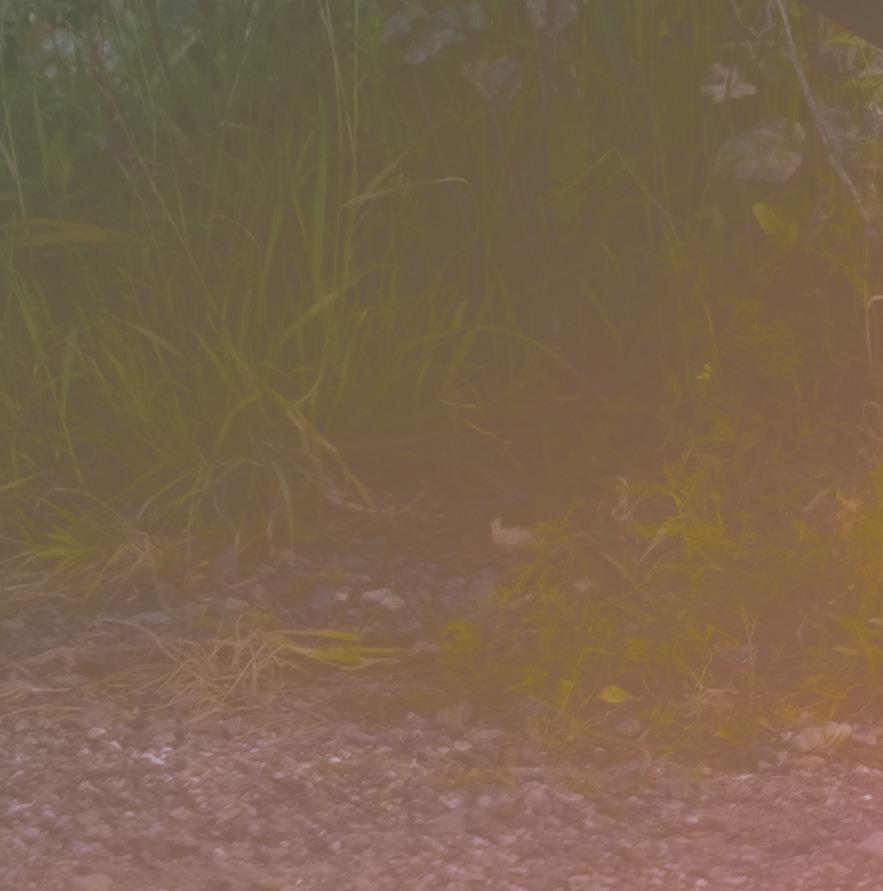
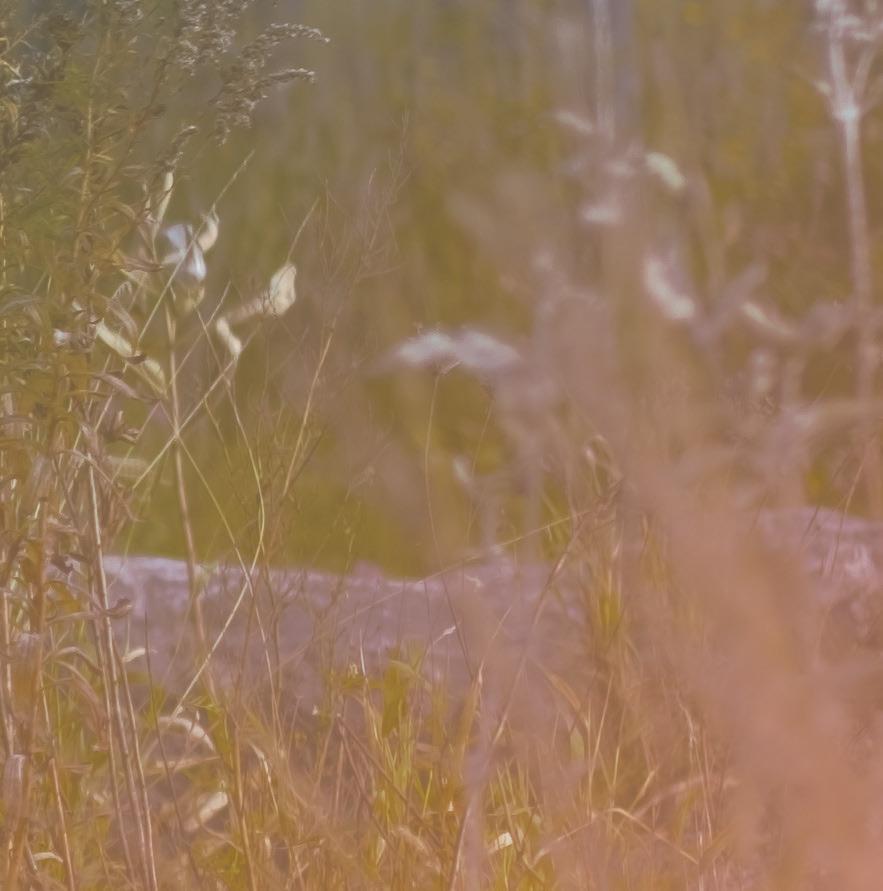
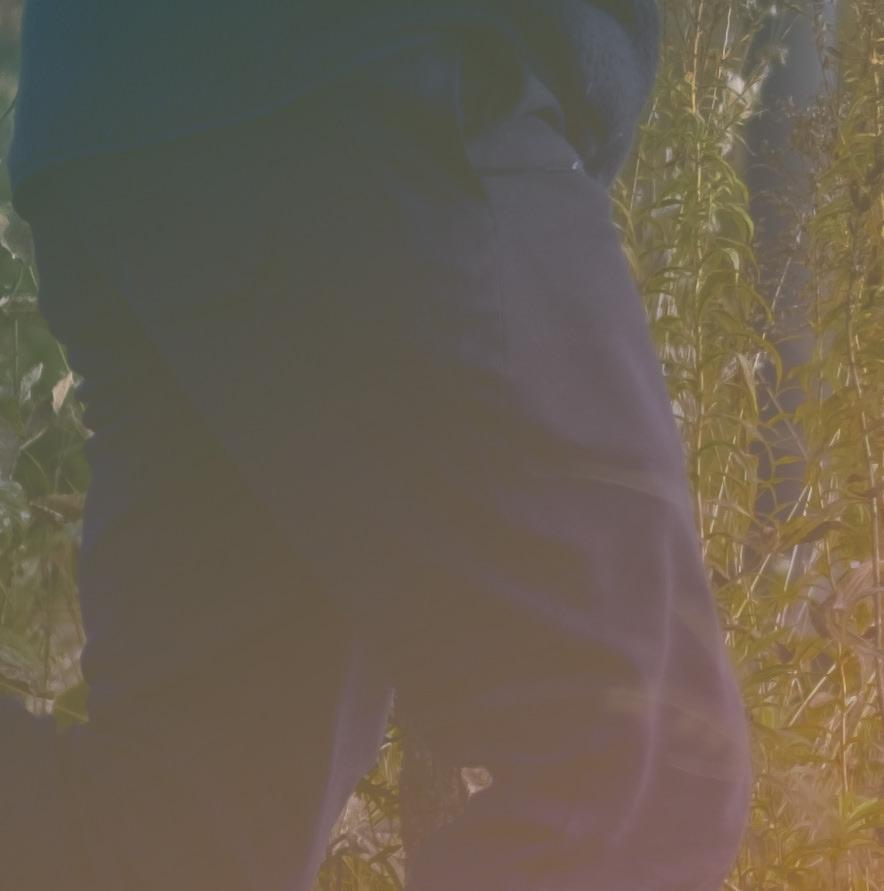


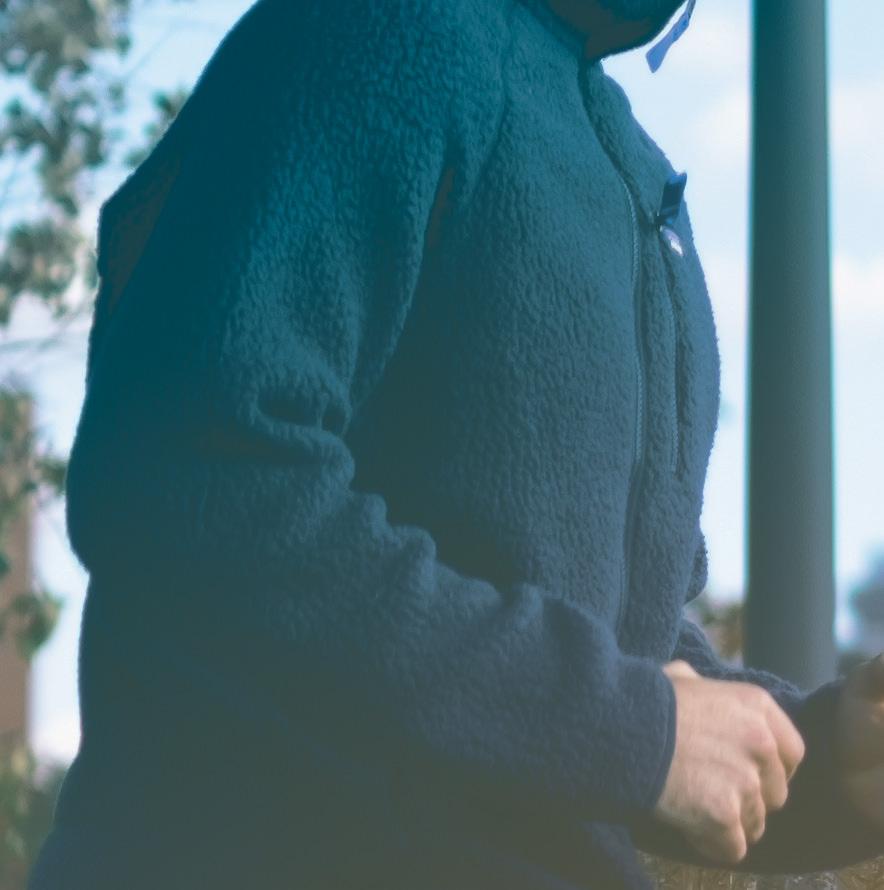
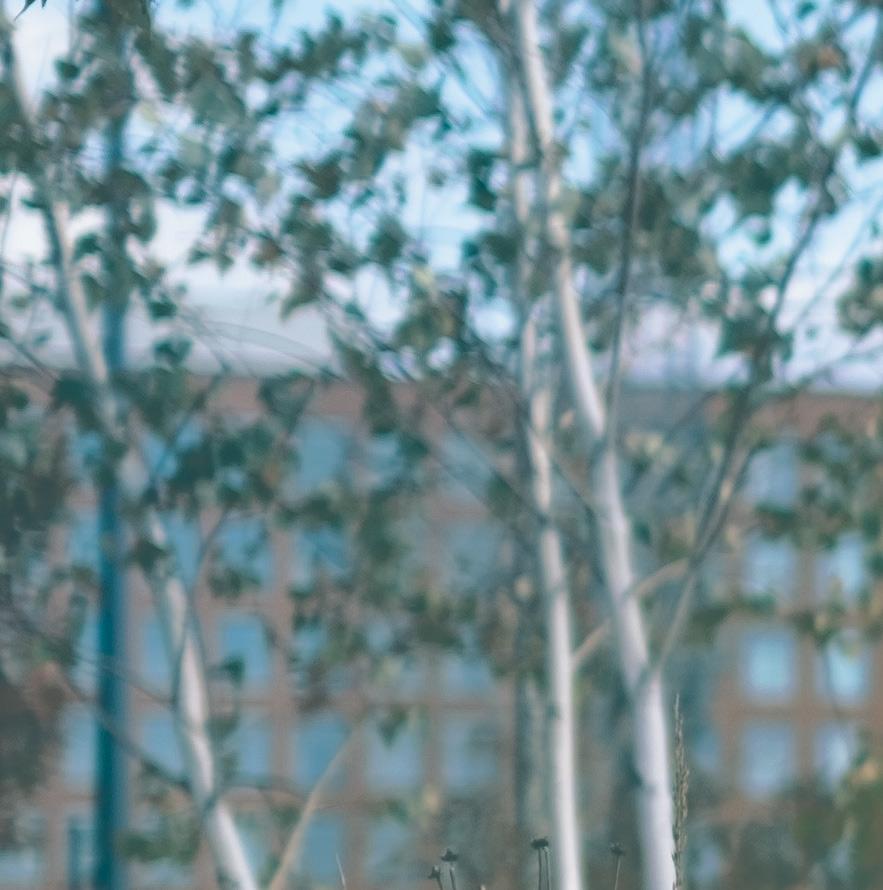

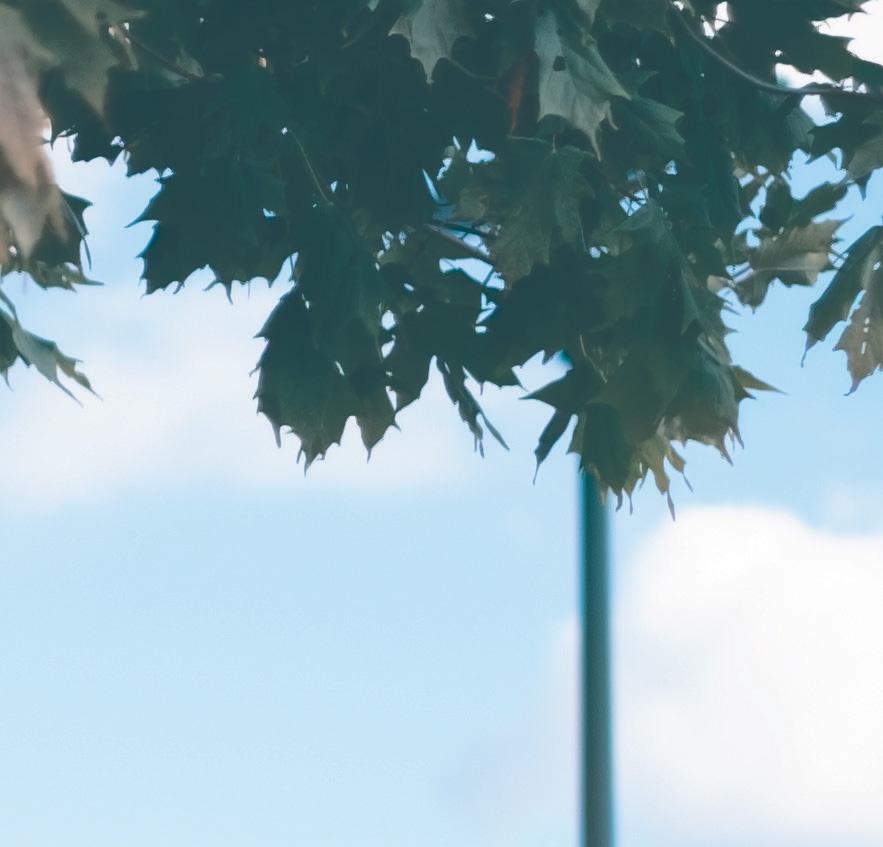
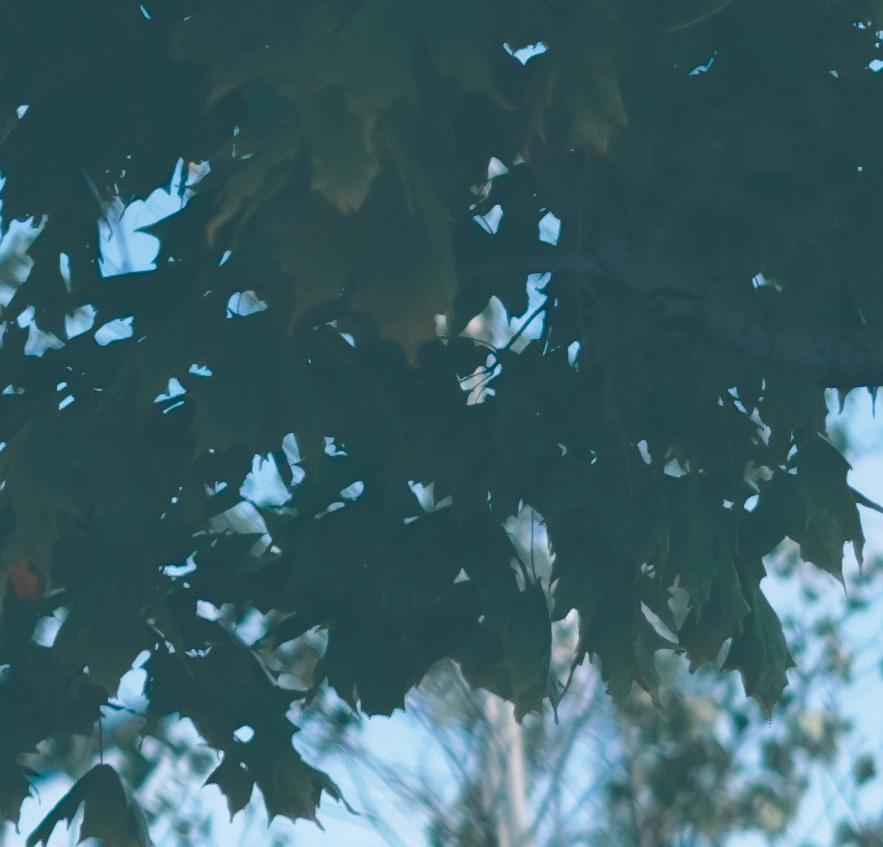
If the QIC affirms the previous denial of the redetermination request or if the QIC cannot make a decision within the applicable 60-day timeframe, you then have the ability and right to escalate the appeal to the next level and request an administrative law judge (ALJ) hearing This is typically the level where appeals result in provider success. ALJs will perform an independent review of the claim based upon the information that has been submitted and their interpre tation of the applicable provisions of the Social Security Act. ALJs are not bound by Medicare regulations or policies and therefore have expanded authority to issue decisions based solely on the law.
Keep in mind several considerations when requesting an ALJ hearing: First, a request for an ALJ hearing must be made in writing and within 60 days of receipt of the reconsideration decision, and you may request that the hearing be conducted in person before the judge, by videoconference, or by telephone. Second, you must meet a minimum amount in controversy (AIC), or a monetary threshold. For 2022, the AIC is $180, and you may combine any number of claims to meet this minimum. Once you have filed an ALJ hearing request and it is received by the proper ALJ hearing office, a hearing is supposed to be scheduled within 90 days of receipt. As we have seen, there has been a significant backlog of claims awaiting assignment to the docket of an ALJ, which has resulted in delays of months and even years. CMS has made significant efforts to reduce the backlog—for example, by opening several additional ALJ offices—but there is an approximately three-and-a-halfyear backlog for assignment to an ALJ hearing docket. CMS has acknowledged that this is an unacceptable wait time and continues to work to reduce the backlog.
If an ALJ hearing results in an unfavorable decision for your appeal, or if the 90-day timeframe was not extended due to backlog, you can escalate your appeal. The fourth level of appeal is review by the Medicare Appeals Council. A request for Appeals Council review must be made in writing within 60 days of receipt of the ALJ
decision. The Appeals Council will review all information on file and is supposed to render a decision within 90 days of receipt of the request for review.
To be successful at the Appeals Council level, providers must successfully argue that the ALJ ruling was incorrect due to a gross misinterpretation of appli cable law. Appeals Council review can end one of three ways: The council may uphold the ALJ’s decision; determine that the ALJ should re-review the appeal; or reverse the ALJ’s decision. Just as with the ALJs, Medicare Appeals Council hearings are experiencing significant scheduling backlogs—and it may take months, or even years, for a case to be assigned.
The fifth and final level of appeal is a judicial review. This level requires you to file a civil lawsuit against the Medicare program in federal court. This is an official court proceeding so you must be represented by an attorney, and a minimum AIC of $1,760 must be met. Requests for judicial review must be made within 60 days of receiving the Medicare Appeals Council decision.
If your appeal involves an overpay ment request, you still maintain all five levels of appeal, but you will have some decisions to make regarding how to satisfy the overpayment.
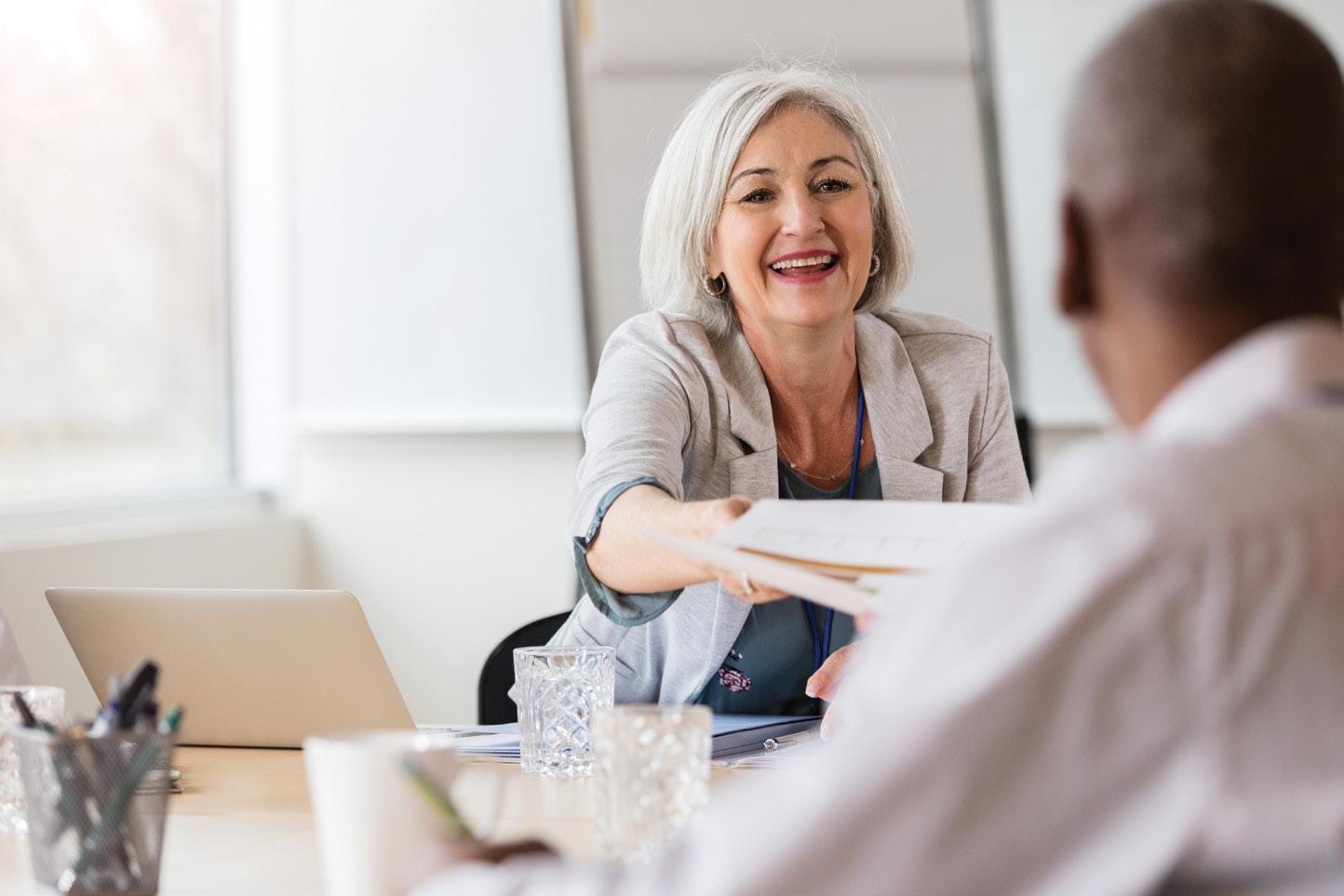
The first option is to pay back the overpayment up front and all at once. If you elect this option, you would not lose your rights to appeal and you would not be responsible for paying interest on the overpayment amount. Interest on unpaid overpayments begins to accrue on the 30th day after you receive the overpayment letter and is assessed each 30-day period after that until the debt (overpayment amount plus the interest) is fully paid off. The interest is not compounded interest, but rather is simple interest and is only applied to the amount of the original unpaid debt. If Medicare collects any interest from you, it must repay that amount back to you if you are suc cessful during the appeals process.
The second option is to request that your claims be offset, meaning Medicare will immediately withhold payments from your future claims until the overpayment amount has been paid back in full, plus interest.
The third option is to do nothing, and on the 41st day after receiving the demand letter, Medicare will auto matically begin to offset your claims.
If you file a redetermination request within 30 days of receiving the demand letter, you can postpone the recoup ment process, but not the assessment of interest. Consequently, as you proceed to the reconsideration level
of appeal, you may continue to have the recoupment process postponed as long as you file the reconsideration request within 60 days of receiving the redetermination decision letter. If you file a redermination request past the 30-day window or the reconsideration request past the 60-day window, the recoupment process will begin—but as soon as you file your request, the recoupment process will cease.
If your appeal is not decided in your favor at the reconsideration level, Medicare will continue with the recoupment process until the original debt and any subsequent interest has been paid in full, even if you have filed a timely request for a hearing with an ALJ.
AOPA staff is frequently asked whether providers can expect Medicare to pay interest on funds that they have collected as overpayments. While this is a complicated topic, the answer is sometimes, depending on the situation.
Medicare will not pay interest on any overpayments that are repaid directly or
voluntarily by the provider. Interest is only due on overpayments that were collected through the offset/recoupment process.
If a claim denial is overturned in favor of the provider during the first two levels of appeal (redetermination and reconsider ation), there is the ability to collect interest on the initial claim amount only. However, the interest can only be collected and will only be paid if the overturned amount is not repaid within 30 days of the final determination. So, if a provider doesn’t receive their claim payment within 30 days of a successful redetermination or reconsideration request, that provider is due interest. As with the interest Medicare collects from providers/suppliers, the interest providers/suppliers will collect is a simple interest and not a compounded interest. Medicare will pay interest on monies recouped during the time that a claim is awaiting a final decision. The interest is only payable on the principal amount recouped, meaning Medicare will only pay you interest on the money recouped to satisfy the original debt.
The Medicare appeals process can be frustrating but also can be a valu able undertaking, depending on the situation. Understanding how the process works and knowing when and how to file appeals will help you to maximize your chance of success.
Joe McTernan is director of health policy and advocacy at AOPA. Reach him at jmcternan@AOPAnet.org

Take advantage of the opportunity to earn two CE credits today! Take the quiz by scanning the QR code or visit bit.ly/OPalmanacQuiz.
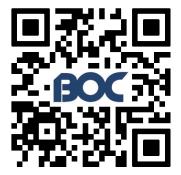
Earn CE credits accepted by certifying boards:


MORE THAN 1,600 O&P stakeholders celebrated the in-person 2022 AOPA National Assembly in San Antonio, September 28 through October 1. Participants caught up with colleagues, exchanged ideas, debated hot topics, and experienced new products and services during the many education sessions, activ ities, and exhibit hall visits offered at the Henry B. Goncalves Convention Center.

From an insightful keynote presen tation by Mona Patel, to an interactive video chat with former NFL quarter back and orthosis-user Alex Smith, to a lively presentation from experts at the VA’s Extremity Trauma and Amputation Center of Excellence, to important presentations from this year’s Thranhardt Award winners, and more, those who traveled to San Antonio experienced a full range of immersive education. Attendees also benefited from new features to this year’s Assembly, including the debut of the O&P Experience Zone, a Digital Care Showcase, new educational tracks, and more.
Virtual content from the 2022 Assembly will be available online from October 17 through December 18. Mark your calendar now for next year’s event, slated for September 6-9 in Indianapolis.




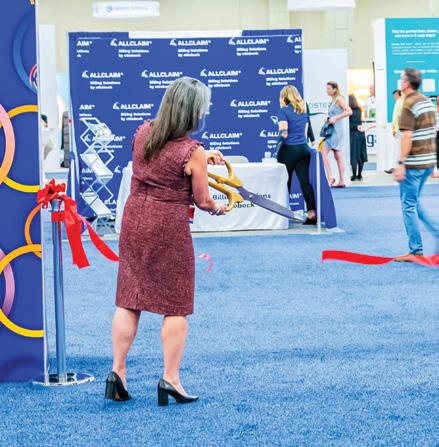

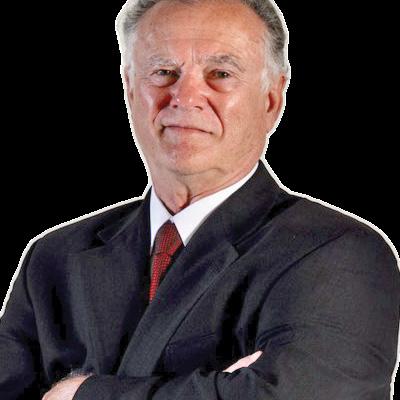



The inaugural award was presented by Professor Hans Georg Näder (right) to David Boone, PhD, MPH, CP (below, second from left). The funding for this annual award has been provided by Ottobock Healthcare in honor of Näder and his many contributions to the O&P field worldwide.





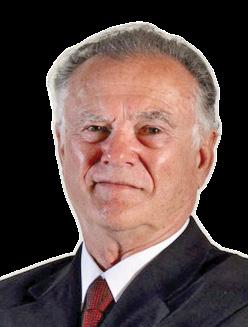
 Keynote speaker Mona Patel, executive director and founder of the San Antonio Amputee Foundation, drew hundreds of attendees during her motivational and insightful presentation Thursday morning.
Thranhardt
Keynote speaker Mona Patel, executive director and founder of the San Antonio Amputee Foundation, drew hundreds of attendees during her motivational and insightful presentation Thursday morning.
Thranhardt
“The

Representatives from AOPA, the American Academy of Orthotists and Prosthetists, and National Association for the Advancement of Orthotics and Prosthetics kicked off a dynamic reception to support and celebrate the new state-based initiative, So Kids Can Move.











Smith (center) answered questions via videoconference, and two of his healthcare providers, Michael Muratore, CPO (left), and Fraser Allan, discussed his orthotic care.

 O&P Experience Zone and Exhibitor Happy Hour
AOPA welcomed more than 100 students from CAST Med High School. Pictured: Patel (fourth from left) with some of the students
O&P Experience Zone and Exhibitor Happy Hour
AOPA welcomed more than 100 students from CAST Med High School. Pictured: Patel (fourth from left) with some of the students





 (Left) Teri Kuffel,
(Left) Teri Kuffel,
“Osseointegration in the U.S.—Prosthetic Implications for Today and Tomorrow”

American Academy of Orthotists & Prosthetists (AAOP)
Aether Biomedical Amoena USA Corp.
Bionic Prosthetics & Orthotics
College Park Industries Comfort Products Inc.
Danmar Products Inc.
DJO is Now Enovis
Orfit Industries America
Orthotic & Prosthetic Group of America (OPGA)
Prudential Billing & Consulting Steps of Faith Foundation Surestep
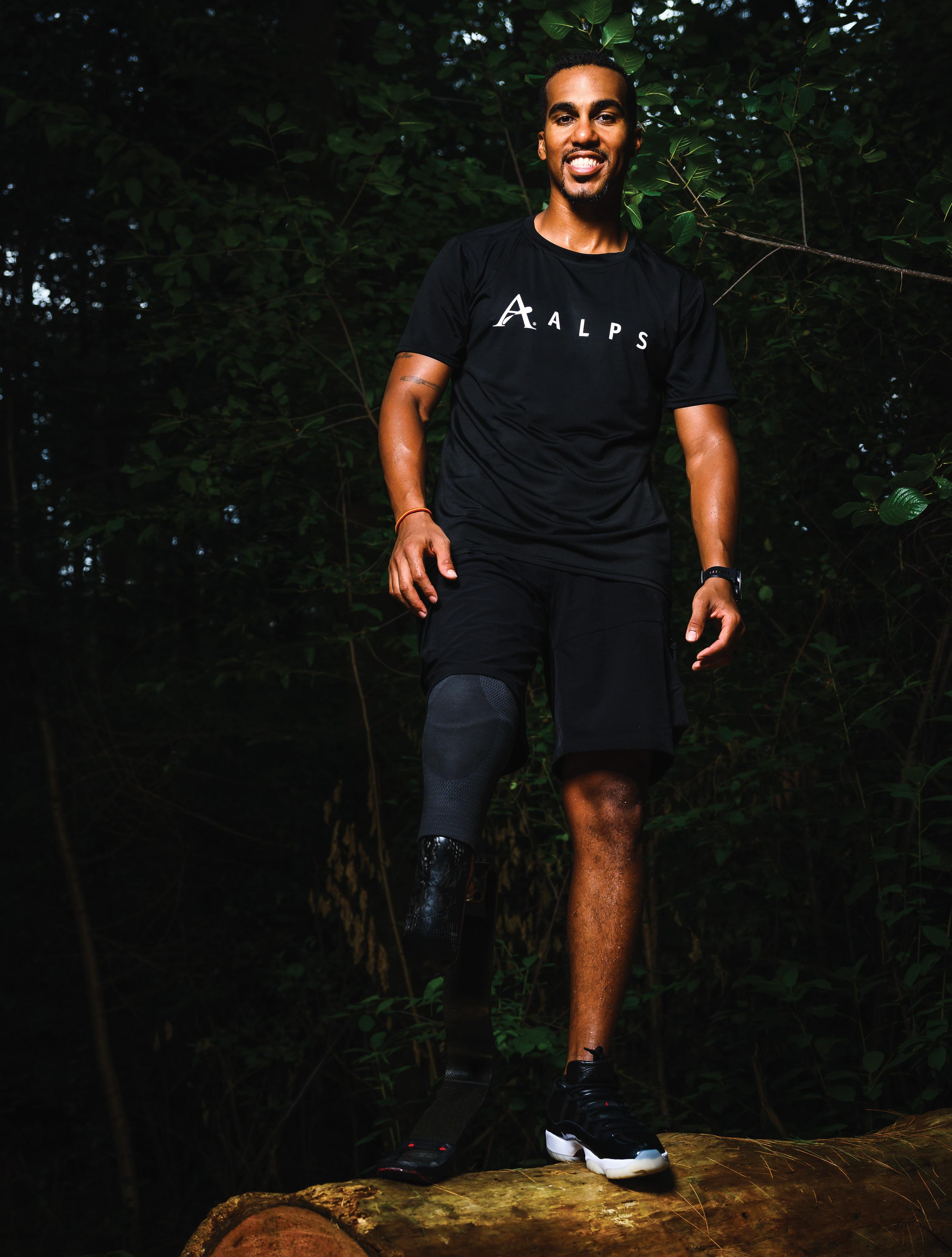
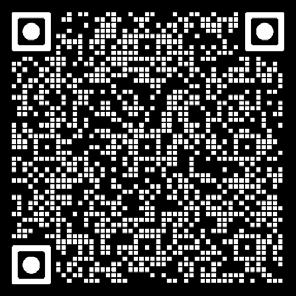
 By CHRISTINE UMBRELL
By CHRISTINE UMBRELL
•
O&P facilities should consider adding or expanding postmastectomy services, or “breast surgery care,” to meet the needs of the more than 100,000 U.S. women who undergo some form of mastectomy each year.
•
Postmastectomy services typically involve fitting women who have had complete or partial mastectomies or breast reconstruction surgery with postsurgical camisoles, external breast prostheses, partial forms, and/or specialized bras.





• Facilities that are just getting started in this space should research breast cancer to gain an understanding of the patient perspective, hire a certified mastectomy fitter, ensure their facility is properly accredited, and start off with just-in-time inventory.
• Business owners and fitters in the postmastectomy space should stay educated on newer products and technologies, such as partial forms for women who choose breast-conserving surgeries, to provide patients with a full array of options.
•
Postmastectomy care can offer an added revenue source to O&P facilities that integrate services strategically—by tracking cost of goods, properly managing inventory, planning for repeat business, and analyzing data on patient encounters.










O&P facilities an opportunity to provide much-needed women’s services while adding an extra reve nue source to their business. Nearly 300,000 people in the United States are diagnosed with breast cancer each year, many of whom subsequently undergo partial or full mastectomies. A lot of these patients benefit from wearing various types of postmastec tomy and lumpectomy prostheses, also called breast forms, available in a wide selection of types, shapes, sizes, and colors.

“Breast cancer accounts for more than 20% of cancer diagnoses,” says Rachel Brown, CFm, CMF, national sales trainer at Amoena USA. After mastectomy surgeries, many patients “really need one-on-one attention to get a good fit,” she says. Offering post mastectomy services, she says, “makes an O&P facility a more rounded prac tice and positions it as a more valuable avenue for care,” while adding to the facility’s bottom line.
Postmastectomy care is “a vital part of women’s healthcare that is often overlooked by our profession,” agrees Lesleigh Sisson, CFo, CFm, president of Prosthetic Center of Excellence in Las Vegas and founding partner of consulting firm O&P Insight. “It’s becoming more difficult for postmas tectomy patients to access care.” Many boutiques permanently closed during the pandemic, says Sisson, so there is an increased need for facilities that meet the needs of women who have had breast cancer surgeries. O&P facil ities that don’t currently offer these services—approximately 70% of O&P facilities, according to AOPA’s 2020 Operating Performance Report—can step in and fill the void.
may require products and tailored care best provided by certified fitters.
“We can’t exclude women who have both breasts from our care.”
Some facility owners may be hesitant to add postmastectomy services because the revenue may be less than for tradi tional O&P care. But Sisson—whose facility has offered postmastectomy care for several years—notes that it can be a profitable addition. She encourages owners to carefully examine the cost of goods, consider how long it will take to see patients, look at profit margins, take into account the benefits that come from repeat business as patients need new bras, and keep a limited but appro priate inventory to maximize profits.

“Then analyze your data” on each patient encounter to understand the profitability and adjust care as needed.
Contrary to what some believe about reimbursement, “there is ample coverage by insurance companies” for breast forms and related products, says Brown. In fact, the Women’s Health and Cancer Rights Act of 1998 provides various protections: Patients receiving benefits in connection with a mastec tomy should be eligible for coverage of “prostheses and treatment of phys ical complications of all stages of the mastectomy, including lymphedema.”
CMF, owner of Just Like a Woman. Imlay has been in the mastectomy services business for more than 21 years and teaches several courses to mastectomy fitters. “We need to expose O&P to how important it is to help women all over the country.”

Postmastectomy services typically involve fitting women who have had breast surgery—complete or partial mastectomies or breast reconstruction surgery—with postsurgical camisoles, external breast prostheses, partial forms, and/or bras with pockets or support, depending on the patients’ needs. While some prostheses are worn against the skin, others sit inside the pocket of a mastectomy bra or attached to the chest wall.

Most insurance companies cover one silicone breast prosthesis per side every two years, and between four and 12 bras per year, according to Sisson.




Despite available insurance coverage for most patients, “a lot of traditional O&P facilities have not brought in” postmastectomy services, but “it’s an additional source of revenue, and it fills a need that is not going away,” says Margy Imlay, CFm,
Because not all patients need full breast prostheses, “I prefer to use the term ‘breast surgery care,’ rather than postmastectomy care,” explains Brown. “With the surgical advances we have had recently, we’ve found that more women are choosing breast-conserving surgeries,” which require partial breast forms and are “a little trickier to fit,” she says. “So, it’s not just mastectomy patients, but any breast cancer surgery patient” who
On top of additional revenue, O&P facilities that decide to add post mastectomy services will become an important resource, says Brown. “It will build your standing in the commu nity since there is such a wide group of women who deal with breast cancer.”
To ensure a smooth transition when adding postmastectomy care, Imlay recommends building gradually. “You need to crawl before you walk,” she says. Examine the patient demo graphics within your geographical location: “This understanding of your area will assist you in selecting proper products and services,” she says.
“Start slow, then increase offerings as your knowledge grows, and as you see what your geographic area needs.”
Sisson recommends that facility leaders research breast cancer and talk to people in this space, such as sales representatives and manufacturers, before jumping in. It’s important to get a full understanding of how sensi tive the topic is and how critical it is to respect the patient journey. “This is a way to serve the women of your community, and you can be profitable in doing so,” she says. “It doesn’t have to be a loss leader—you can make it into a viable business.”
Postmastectomy patients at Prosthetic Center of Excellence are fit in a special room, where products are displayed on a rolling cart. Lesleigh Sisson, CFo, CFm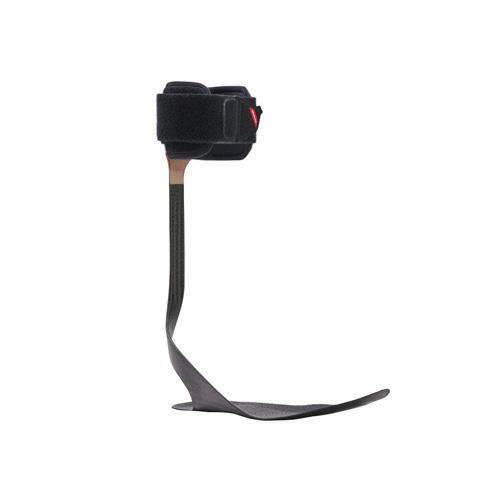
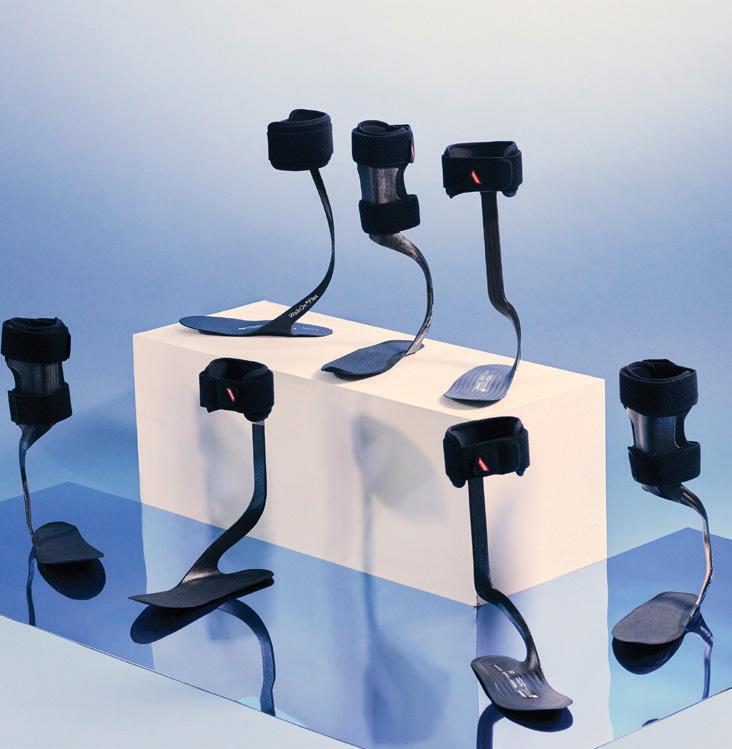
Meet the newest addition to the WalkOn Family, the AFOs patients know and trust.
Scan the QR code to learn more!
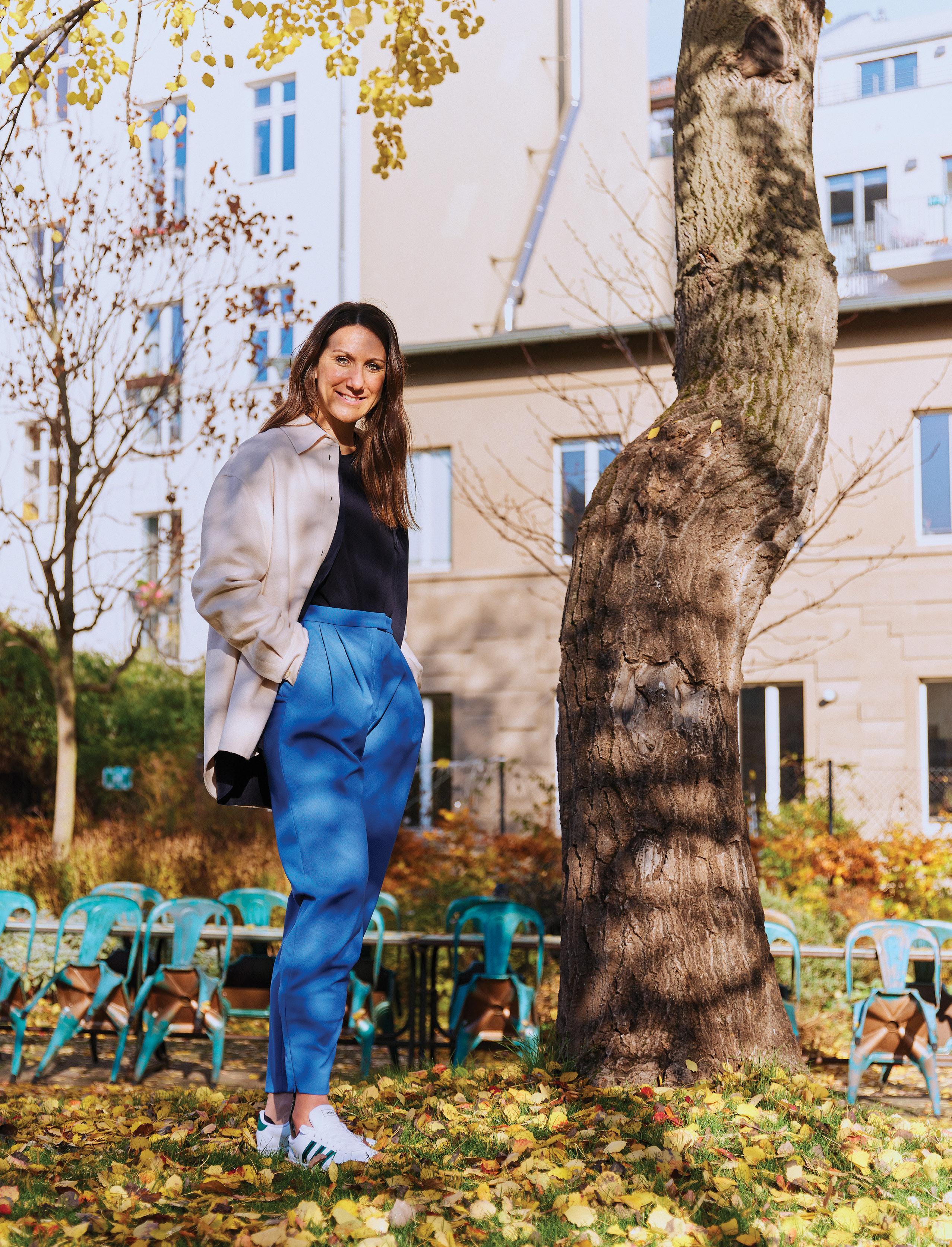
Fitting patients with postmastectomy products can be a sensitive under taking. To provide optimal care, “think about the experience of patients right after their diagnoses, and what the patients will be dealing with for a long time,” says Rachel Brown, CFm, CMF, national sales trainer at Amoena USA.
Brown and other experts share these tips for facilities offering post mastectomy care:
• Be educated about the postmastectomy patient journey and prepared to answer client questions. “When we see patients prior to surgery, sometimes they are overwhelmed, and not everything has been explained to them as well as it could be,” says Lesly Garcia, CFo, CFts, CFm, a fitter at Valley Institute of Prosthetics and Orthotics. She takes time to share her knowledge, and to answer questions with an empa thetic ear.
• To better understand the postmastectomy business, seek out advice from business owners that are already providing postmastectomy care. In addition to requesting tips on what works best, “be sure to ask what reports can be run in an EMR system to aggregate and analyze data and keep the business profitable,” says Lesleigh Sisson, CFo, CFm, president of Prosthetic Center of Excellence in Las Vegas and founding partner of consulting firm O&P Insight.


• If possible, meet with new patients even prior to their surgery, so that they understand the full range of postmastectomy prostheses and bras. “Knowledge helps take a lot of the fear away,” says Margy Imlay, CFm, CMF, owner of Just Like a Woman. It also can influence customers’ decisions to decide for or against reconstruction, she says. “Once you share your knowledge and compassion, they will come back to you for all their future needs.”
• Understand the patient demographics within your geographical location to ensure you provide the most appropriate products. “What I see in Oregon and what I see in Texas are different” in terms of what patients need, trends in surgeries, and the demographics of the patient base, says Imlay. Sometimes, the sizes of bodies trend larger or smaller in different areas. In addition, “if your patient base is mostly Medicare patients, stick to allowables,” she says.
• Recognize that it may be a long journey, and that patients may require new sizes or shapes as they recover. “Bodies change with time, and some patients may need additional surgeries and need new prod ucts,” says Brown. “Position yourself as the resource for what a patient needs for breast care on a long-term basis.”
When you’re ready to make the move, start by earning accreditation specifically for providing postmastec tomy services by either the American Board for Certification in Orthotics, Prosthetics, and Pedorthics, or the Board of Certification/Accreditation. In addition, make sure postmas tectomy care is part of the services included in your facility’s Medicare application, says Sisson.
Margy Imlay, CFm, CMF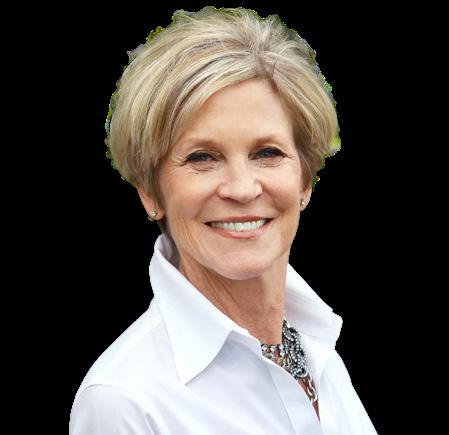
Next, hire or train a certified mastectomy fitter to see patients. “A lot of facilities will find they already have someone in their facility who could take the training to become a certified fitter,” Brown says. “Choose a staff member to lead this effort carefully— empathy is very important.”
Sisson suggests training an in-house staff member, such as an office manager or orthotic/therapeutic shoe fitter, if that staff member has the time to pick up mastectomy fitting duties and is willing to get certified.
In terms of inventory, Sisson recommends “just-in-time” stocking: Keep two breast prostheses in the most common sizes, then order again once those are purchased, she suggests. She also advises stocking items that are eligible for reimburse ment. “It’s important to understand when you can bill for these items, and to plan to provide these items when stocking your inventory,” she says. And be sure to return unclaimed products: “If a patient orders some thing special and doesn’t keep it, send it back” for a refund.
Imlay recommends an initial inventory of molded cup bras, as well as cut-and-sew bras in appropriate size ranges to suit the needs of more women. “Have one fully weighted
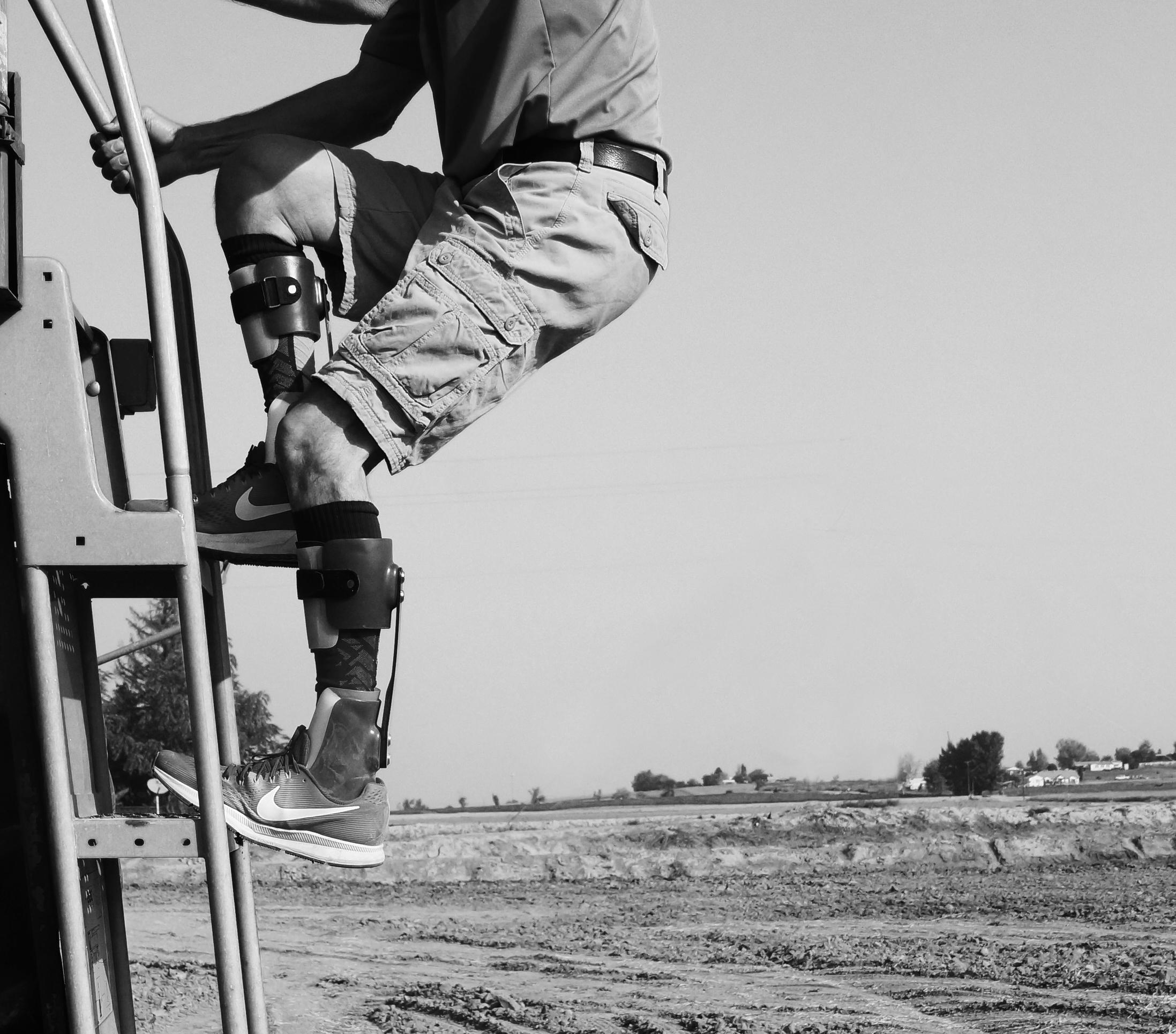
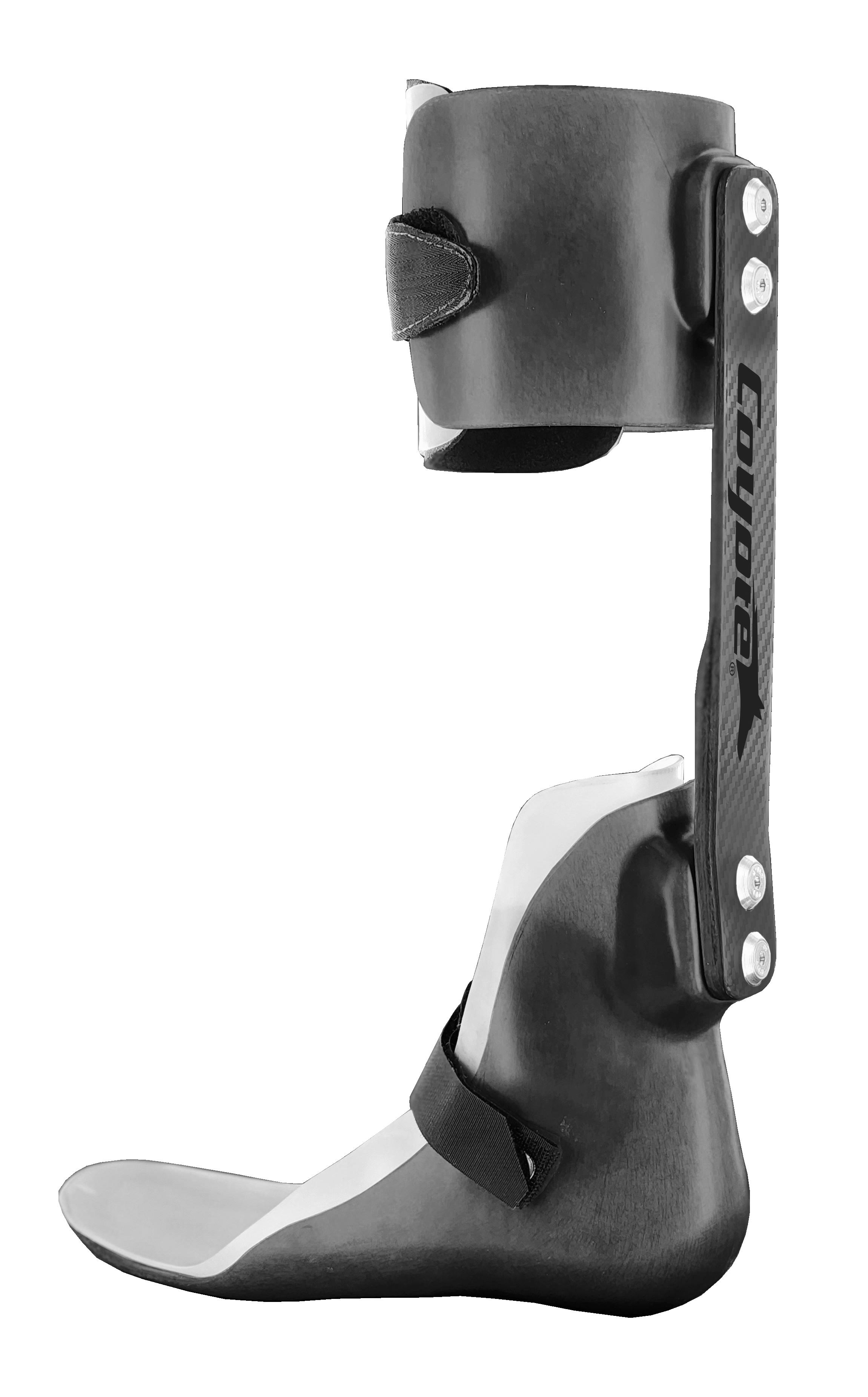

silicone breast prosthesis” that will assist with symmetry, back health, and balance. Lightweight breast forms should also be included in opening inventory for smaller-breasted women or those who have had bilateral mastectomies. “Have a size run of lightweight breast forms, and a size run of fully weighted breast forms,” she says. It also helps to have an agreement with your manufacturers: “If you bring in styles that don’t move, you can swap them out for more appropriate ones,” Imlay suggests. “Also keep in mind that you don’t have to be brand specific. Mixing it up a bit offers more choices for your clients.”
The physical space of the facility also matters for postmastectomy care. At Professional Orthotic and Prosthetic Services in Manhattan, Kansas, post mastectomy patients are seen twice a week in a dedicated room, says Cindy Smith, who is preparing to take the certified mastectomy fitter exam.
Imlay conducts several courses each year to educate fitters and others about mastectomy products and solutions.





the certified fitter from running in and out of the room with different samples. Plus, “you can stock white, black, and beige bras, and allow patients to order other colors—but you don’t have to keep all the colors in stock,” Sisson says.
Valley Institute of Prosthetics and Orthotics in California has a special room for postmastectomy patients, which is stocked with chairs, a mirror so patients can look at themselves, and fitting robes, according to fitter Lesly Garcia, CFo, CFts, CFm. The postmastectomy inventory room is located nearby.
Prosthetic Center of Excellence also has a dedicated mastectomy room, which is designed for extra comfort, with a full-length mirror and some plants. “It’s a little bit softer” than other patient rooms, Sisson says. The facility uses a rolling wardrobe cart to show patients what’s available, so customers can “feel” different types of bras and order in colors that suit them. Wheeling in the cart prevents
To ensure a profitable business, it’s important to market your new services and seek out referral sources. “Use social media to spread the word about new offerings,” says Brown.
She encourages facilities to spread the word among current patients who visit the facility for orthotic and pros thetic services—many of whom may eventually need mastectomy services or know someone who will. “Begin with the community you already have,” she says. “Send an email blast and contact local news organiza tions to share about your expanded services.” Networking within the community can also bring in new customers. Brown suggests reaching out to local cancer centers, oncolo gists, and patient navigation centers at hospitals. And “don’t exclude referral
sources from plastic surgeons,” because many patients choose recon struction surgery.
Sisson suggests identifying the breast cancer resources located within your community, then asking that they include your facility within their literature and on their website as a resource for postmastectomy fittings and products. She also recommends “reaching out to support groups to offer educational in-services.”



At Professional Orthotic & Prosthetic Services, patients come from several towns away due to robust word-ofmouth recommendations, in addition to referrals from local family doctors and cancer center surgeons, says Smith. The facility also sees patients through refer rals such as the Department of Veteran Affairs, local cancer care centers, and church groups.
Just as with orthotics and prosthetics, it’s important for business owners and mastectomy fitters to learn the full range of products and to stay current on the latest technologies and trends.
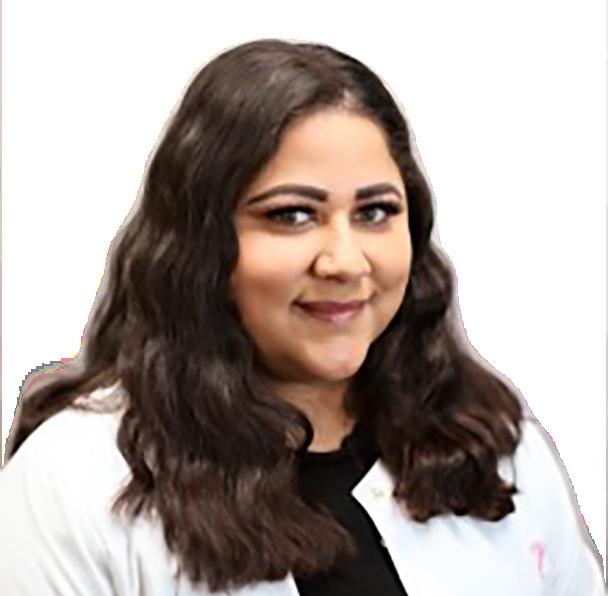




 Lesly Garcia, CFo, CFts, CFm
Lesly Garcia, CFo, CFts, CFm
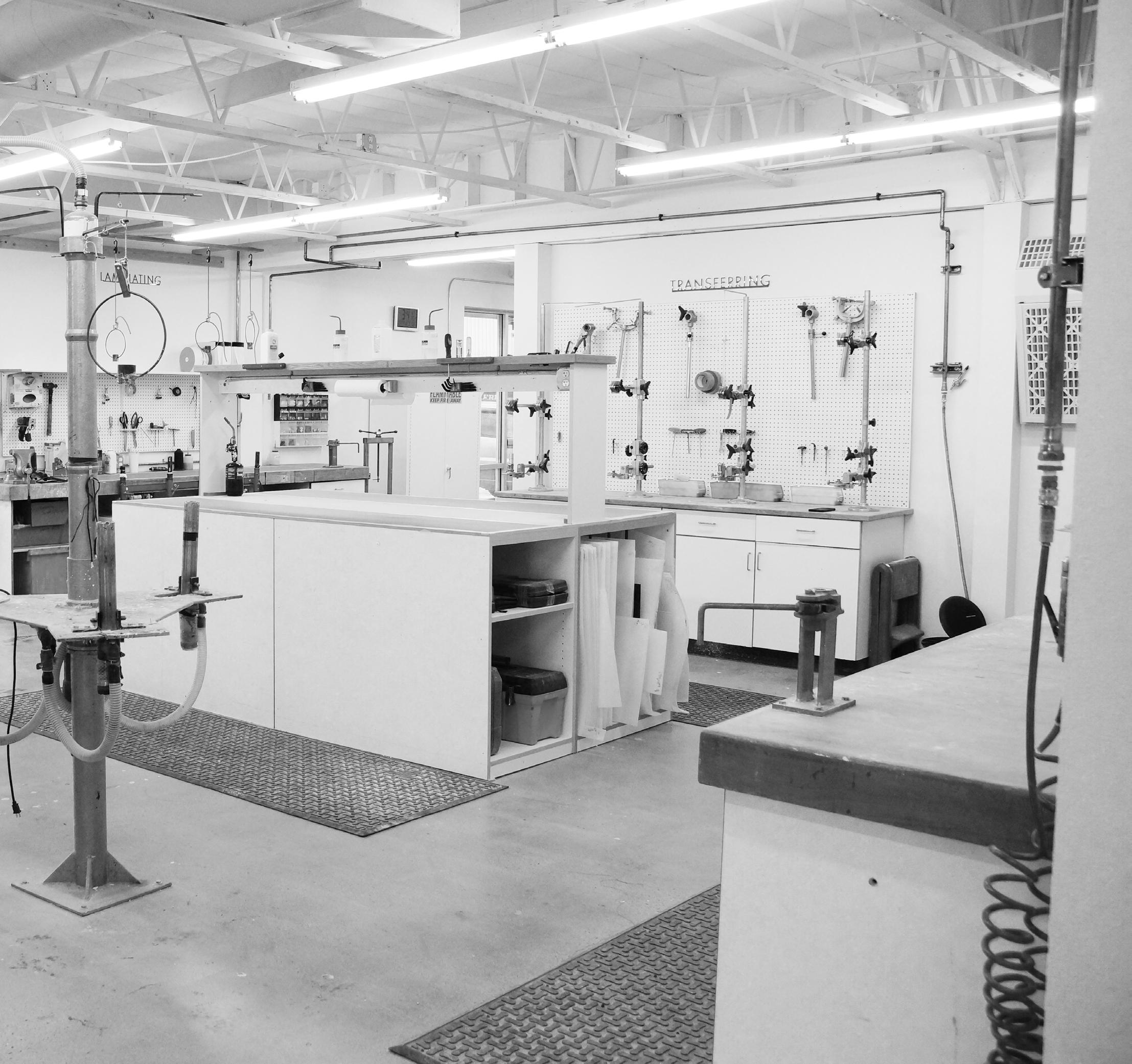
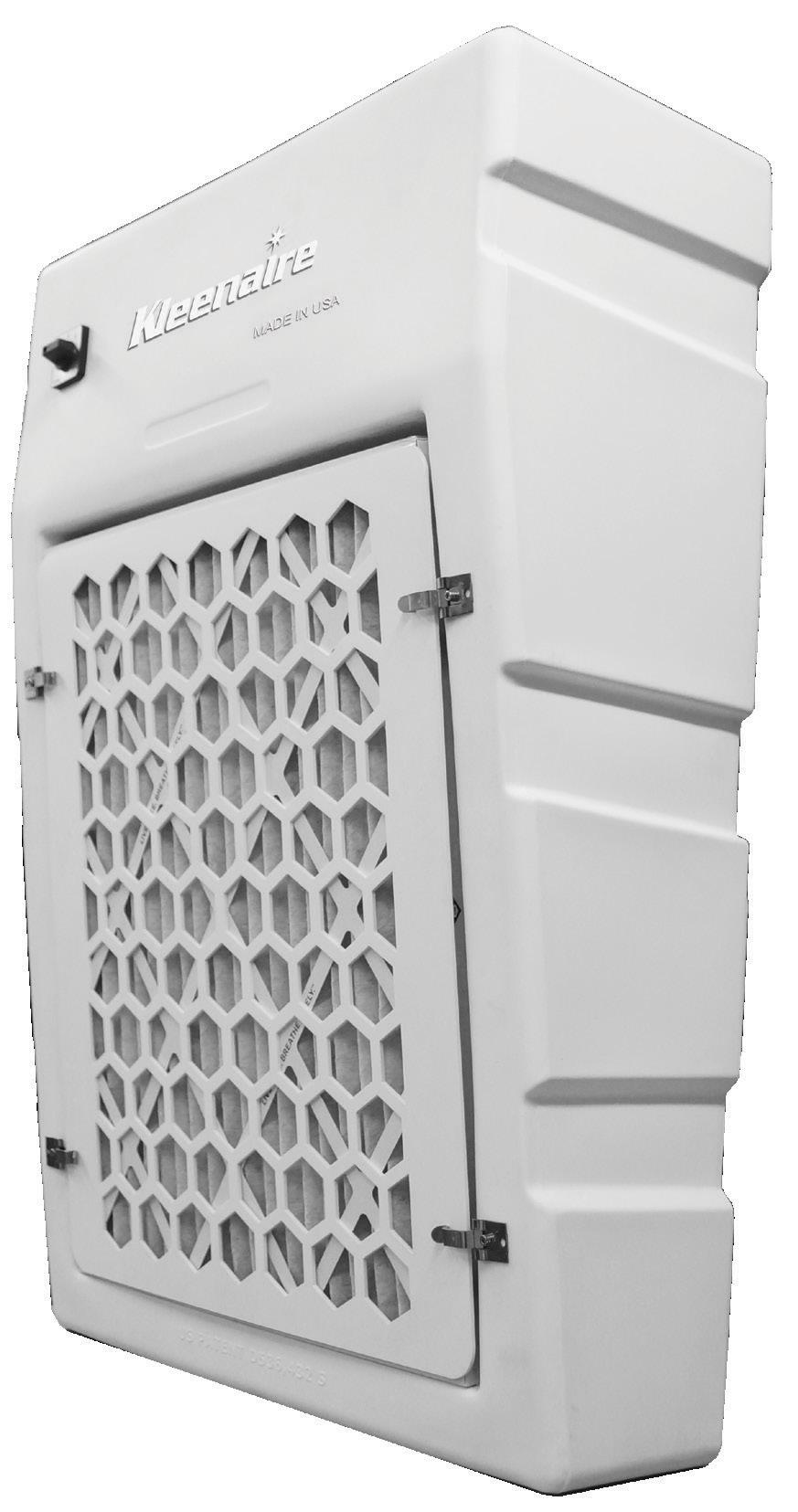
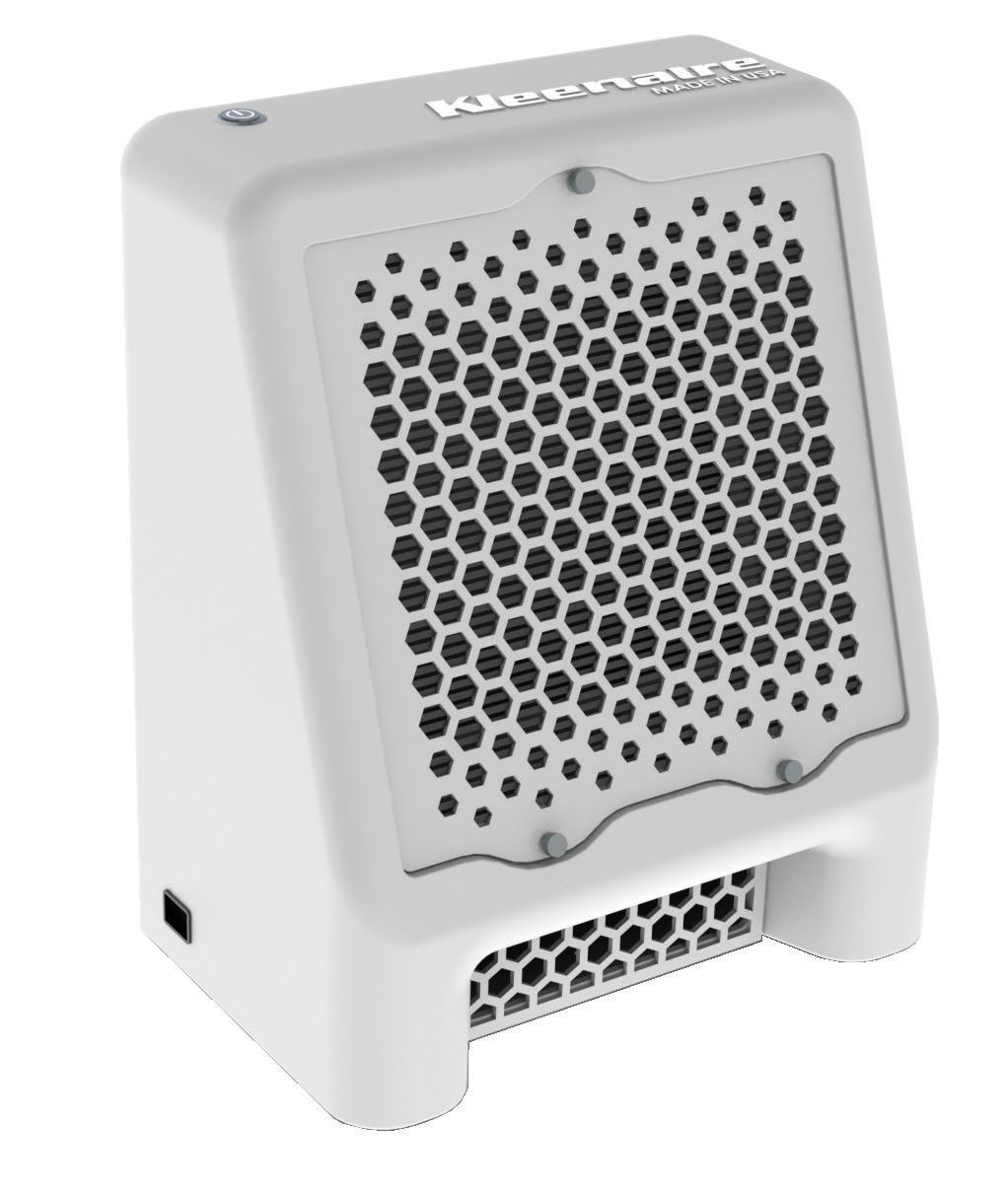
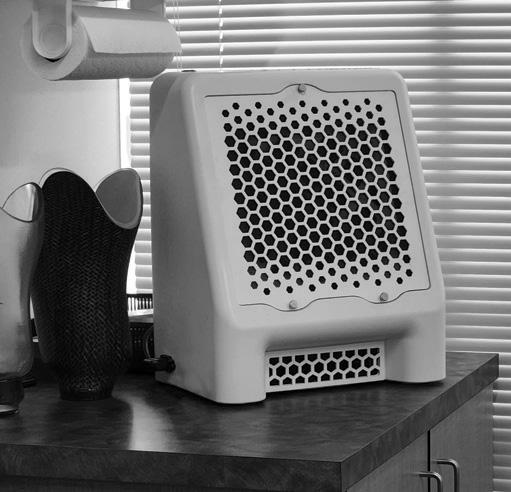
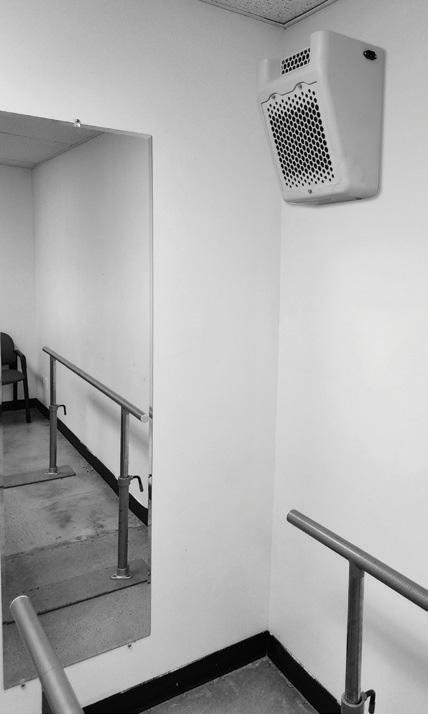
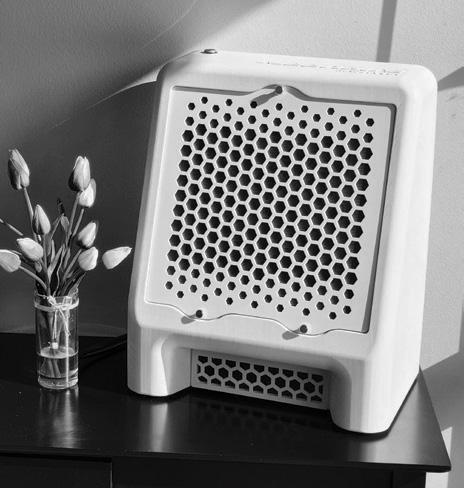
Many patients start their relationship with postmastectomy care even before they undergo mastectomy, when they come in to be fit with special camisoles with drains they will need immediately after their operation. According to Sisson, “we can’t provide immediate post-op camisoles that hold drains until postsurgery,” in compliance with delivery require ments by Medicare and insurers. But if patients are fit ahead of time, “we can deliver it to the surgery center” once the surgery is complete, or plan for family members to pick up camisoles postsurgery, she explains.
Manufacturers are continuously expanding their offerings, making their products available in a wider range of fits, according to Imlay. Breast prostheses have come down in weight, with lighter-weight forms now available for bilateral
patients, she says, and “there have been amazing advancements in fitting technology.” Some breast forms even allow you to pump air in or out, for adjustable sizing.


Of note, more options in partial forms, or “balancers,” have come on the market. More women are choosing breast-conserving surgeries, says Imlay. Some patients are having only part of their breast removed, and then usually undergoing radiation. “There are different partial forms with different shapes and sizes” that enable patients to achieve symmetry and satisfaction, which is really the goal, she says. Partial forms also are appropriate for women who have had significant breast tissue removed via lumpectomy, who may choose to wear partial forms with pocketed bras, according to Sisson.
In addition to over-the-counter options, “there are custom breast forms” that require 3D scanning to
Nicole Flores, CFm, shows a sample to a patient at Prosthetic Center of Excellence in Las Vegas.produce a form that matches the removed tissue, says Imlay. “Some patients even end up looking more symmetrical than prior to surgery.”
Custom offerings can also allow for matching nipple color and sizes, according to Imlay. With some custom prostheses, patients will not need to wear pocketed bras, and can instead wear the same bras they wore prior to their breast cancer diagnosis.
will lead to success for both customers and clinicians. “These patients need just as much guidance and hope as every body else, and should have someplace local to get optimal care,” says Smith.
“If we can provide postmastectomy services and be diligent and efficient in how we do it and in stocking inven tory,” O&P facilities can boost their revenues while providing valuable
services to women, says Sisson.
When all of the pieces come together in a fitting, says Imlay, “you know that you’ve really changed people’s lives at the end of the day.”
Christine Umbrell is a contributing writer to O&P Almanac. Reach her at cumbrell@contentcommunicators.com.








“Many O&P professionals have experienced making other custom products, so it is not that hard for O&P professionals to make custom breast prostheses,” says Brown. Some prod ucts require only an iPad and scanner on an app to scan and photograph patients, with a quick turnaround, made in the exact profile of the existing breast, she says.
Custom breast prostheses are covered by some insurance plans, according to Sisson. In some states, including Maine and Pennsylvania, insurance companies are required to cover custom breast prostheses.

Brown adds that new “contact” breast forms will be available in 2023; contact technology allows breast forms to be worn adhered to the chest wall.
When working with patients who would benefit from specialized products, Brown suggests educating patients about all of their options.
“Consider new technology offerings,” she says. “Don’t limit it to what’s on hand in your space; offer custom technology, Adapt Air technology, or cooling technology” when warranted, she says. “Provide access.”
Just as in providing O&P care, focusing on the best outcomes for the patient
Educational content from the AOPA 2022 National Assembly in San Antonio will be avail-able virtually from October 17 until December 18. Be sure to check out the following sessions that were offered in this year’s new Postmastectomy Track:

• Opening and Patient Journey, Rachel Brown, CMF, CFm
• ABC Custom Breast Prosthesis: What’s in It for You? Nikki Giamarino, CFm
• Postmastectomy Care: How To Add Revenue and Be More Visible in Your Community, Rachel Brown, CMF, CFm, and Lesleigh Sisson, CFo, CFm
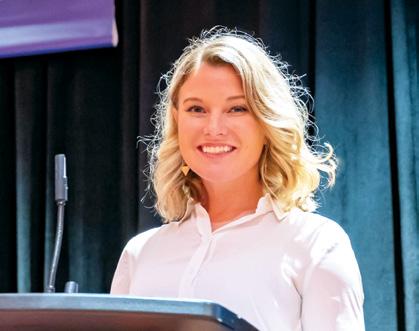
• Keeping Pace With Surgical Advancements—Partial Forms Play a Key Role, Margy Imlay, CFm, CMF, Rebecca Weldon-Martin, CFm, CMF, Rachel Brown, CMF, CFm, Alicia Correa, CMF, and Tanya Baer, CFom
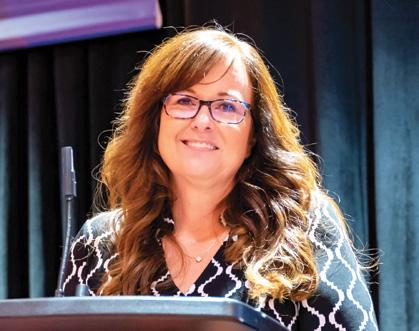
• Business Proposition: Providing Postmastectomy Care, Lesleigh Sisson, CFo, CFm



• Certification and Accreditation—What You Need To Know, Jim Lawson
• Medicare LCD and Policy Article for External Breast Prostheses, Lesleigh Sisson, CFo, CFm
• In-Depth Look at Quality of Life and Survivorship After Breast Cancer, Nikki Giamarino, CFm
Cindy Smith Rachel Brown, CMF, CFm Lesleigh Sisson, CFo, CFm
WITH TWO CONSECUTIVE quarters of negative growth in the U.S., interest rate hikes, and mounting inflation levels, executives from across all indus tries are bracing for a recession in 2023. Frequently, businesses cut marketing and communication efforts during a downturn—just when they need the investment the most. Companies that rethink, rather than reduce, their mar keting spend fare better long term, according to many business experts. And now is the time to think reallocation of resources to better position for the future.
In this fourth and final install ment of the 2022 Leadership Series, O&P Almanac asked business leaders at three patientcare facilities about their past and current marketing initia tives, brand awareness, changes brought on by the pandemic, and tactics that work—or don’t.
Erik Schaffer, CP: Our main goal is to build brand awareness. We provide services to amputees across all demo graphics—upper and lower extremities and maxillofacial, from pediatric to geriatric, and everything in between. We always maintain communication with our existing patients; retention is just as important to us as obtaining new patients. We have kept up strong relationships with our patients’ doctors as well, and we keep them informed throughout their patients’ rehabilitation. We also maintain a strong online presence by combining traditional online marketing with a very active social media presence.

Erik Schaffer, CP, founded A Step Ahead Prosthetics in 2001 and currently serves as CEO as well as head prosthetist at the company’s New York location. Schaffer has been an adviser to Össur, Ottobock, and Freedom Innovations, and he was a medical staff member for the 1996 Paralympics and 2010 USA Track Team. He says “a strong culture of aggressive marketing and brand awareness,” is a cornerstone of his business.

Lesleigh Sisson, CFo, CFm, president of Prosthetic Center of Excellence in Las Vegas and founding partner of O&P Insight, has been in the profession since 1992. In 2015, she purchased PCE, which provides solutions for individuals with limb loss or limb difference, mobility challenges, diabetes, mastectomies, and more. In 2018, she founded O&P Insight, a consulting firm serving independent O&P practices. Sisson is a frequent speaker at AOPA events and was the Sam E. Hamontree Business Education Award winner in 2018.
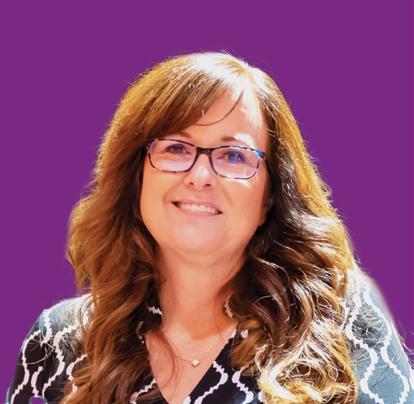
Rebecca Snell is IT and marketing director at Dankmeyer Inc. in Linthicum, Maryland. She has more than 40 years of experience in computer application design, development, and business operations analysis in insurance, entertainment, and healthcare. She is a frequent lecturer at state, regional, and national O&P meetings on a variety of industry-related business topics. Snell was the 2021 recipient of the Sam E. Hamontree Business Education Award, presented by AOPA.
Lesleigh Sisson, CFo, CFm:

Relationships and communication.
It’s about creating, developing, and maintaining relationships with patients, referrals, and our commu nity. Much of that comes from in-person interactions. One example is our annual “Friendsgiving” where we host patients, referral sources, and community partners for a day of fun games and lots of good food.
Rebecca Snell: Over the past 10 years,
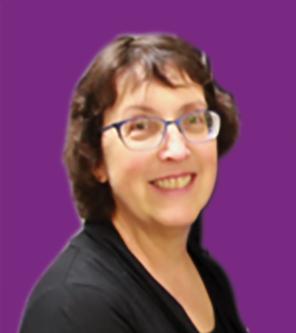
we have had to change our strategy to use new tools and communicate with more digitally sophisticated clients. We use a wide range of methods because we have a wide range of demographics to speak to: clients, caregivers and families, clinical partners, payors, and those looking for general information about O&P. The foundation is a regularly updated website. Then, we produce a monthly newsletter, targeted emails, and posts on Facebook, Instagram, and

LinkedIn. We keep our Google busi ness pages current and we have a very active YouTube channel to host a lot of internally produced video content.
Schaffer: We began offering virtual consultations and evaluations for potential patients, as well as virtual tours of our facility. We also offered remote repair and adjustment services; patients could ship their prosthetics to us, and we would maintain and repair them as necessary without requiring them to come in person. In addition, we launched our own financial assis tance program.
We created awareness for [these changes] by posting about them on our website and social media platforms and by creating an email campaign that we sent to our patients. We also made sure our staff was aware of our virtual options so that when they were speaking on the phone with current or prospective patients, they would be able to offer them to anyone who was understandably reluctant about coming to our office in person.
Snell: Using the state of Maryland’s communications as a guideline, we formed our operations strategy and communications, and then we rapidly deployed them on a new website page devoted to all things COVID. We used targeted emails and special edition newsletters to let everyone know we were following Maryland’s directives for staying open and safe as a health care provider. We focused on being responsive [and updating our commu nications as guidelines changed]. Tailoring the message took care, and then our team pushed it out on all our platforms quickly.
Schaffer: Social media is such an inte gral part of people’s lives today. A Step Ahead was one of the first prosthetics providers to embrace social media as a marketing tool, and today we have a thriving community of loyal followers on Facebook, Instagram, and other major platforms. Our content is mostly created in-house by our marketing team, but patients also provide a sizable amount of content. By posting frequently and varying our content, we appeal to a broad spectrum of ampu tees and nonamputees.
Sisson: We use Facebook and Instagram to encourage patient interaction. We share our team accom plishments and patient successes through both pictures and videos. Whenever possible, we prioritize highlighting our patients’ stories and successes, over the device and tech nology. Social media is more effective with patients but face to face and constant communication is better for referral sources.
Snell: Social media also is everchanging. What was the standard even five years ago has changed. Facebook is not as popular as Instagram, but still is a platform you cannot ignore. We have increased our video content because that is what catches the eye and draws people in. We encourage our clients to share their material as well so that we can present it across our platforms. Video content goes on Facebook, Instagram, and YouTube. We want to engage viewers to see what we do and who we are. We also share content from industry leaders as “service announcements,” and we like to remind everyone of support group meetings in the area—so not everything we do originates in house. We monitor our statistics to see who we are reaching with our material and then make adjustments as necessary.
Schaffer: We used to use traditional advertising methods in the past including print media ads, mailers, etcetera. However, these methods have become [increasingly] less effective as digital marketing continues to expand. Our current strategies focus around our online and social media presence along with maintaining strong relationships with our patients and their doctors, which provide a much greater return on investment than traditional marketing.
Sisson: No. We need referrals for patient acquisition, and that is not typi cally found by advertising. It is vital to have a user-friendly website and a social media presence, however.


Snell: Early on, we decided that tradi tional TV or print was not an effective use of resources for our demographics. We did try some radio ads, but we didn’t feel they reached a wide audi ence. We do use Google Ads. We focus on all the other methods discussed previously. However, you cannot discount word of mouth—you might call that “traditional,” and it can make or break you!
Schaffer: Doctor and patient referrals account for a significant percentage of our new patients.
For our patients, we treat each one as an individual and not a number, and spend time learning their goals and expectations prior to beginning their care. At our facility, they feel as though they are part of a family, and many of our patients become friendly with each other and maintain relationships outside of the office. This results in a happy, enthusiastic patient base, and they are often excited to discuss their experiences at A Step Ahead with other amputees.
For doctors, we keep them constantly updated on their patients’ journey and send them photos and videos to document their rehabilita tion. We also welcome them to tour our facility and meet our staff so they will feel confident in referring their patients to us for prosthetic care.
Sisson: Primarily, we rely completely on referrals for new patient acquisition, [and we] spend time and resources on fostering those relationships. We make
Describe your company’s use of social media and user-generated content. Are they effective tools?
Does your strategy include paid media and/or “traditional” advertising? Why or why not?
How much do you rely on referrals for patient acquisition, and how do you foster those relationships?
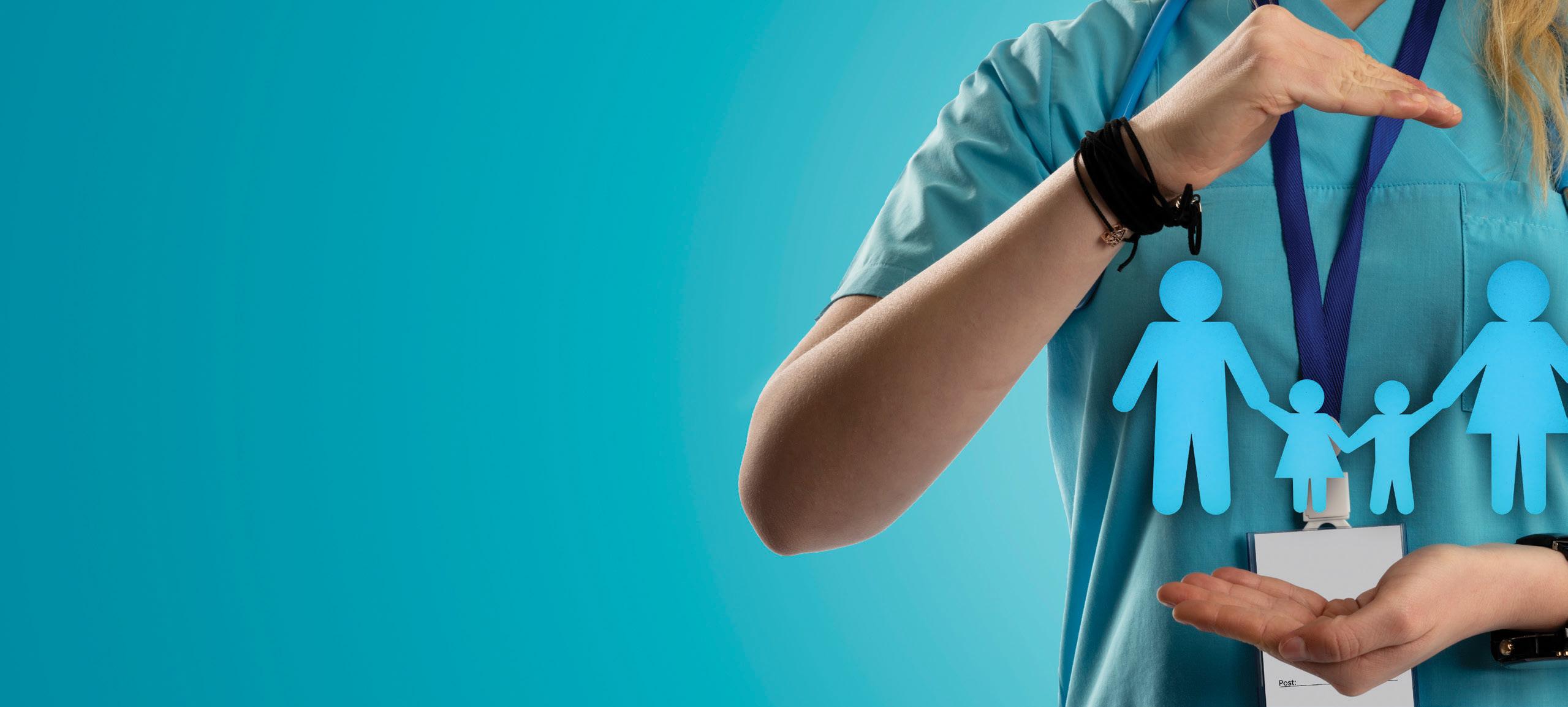
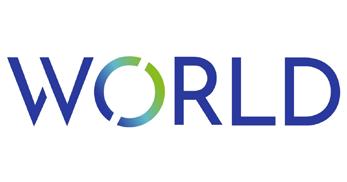
sure each clinician knows their top referrals. This means they have had a face-to-face meeting and that they know more about their top referrals than their name and where they work.

We meet with referral sources as needed to communicate concerning patient care and advancements in the field of O&P. As allied health profes sionals, the clinicians are an integral part of the plan of care for the popula tion that we serve. Meetings and other communications are vital to ensure successful outcomes for our patients.
We also attend amputee support group meetings and accompany some patients to their physician appoint ments. And we have set up in-services in our office for PTs and OTs.
Snell: I would say 90% come from professional referrals, 10% from other inquiries—although I have seen an uptick in website inquiries in the past six months.
We cultivate those relationships by working closely with them on providing resources where they need them. During the pandemic we
ramped up our Dankmeyer Academy offerings—monthly live streaming presentations on various O&P topics for professionals. We keep these sessions available on our website and YouTube channel, offering new material every month. But really, it is about making sure that clients [who are referred to us] can go back to their doctor or therapist and say that they were receiving the best care and atten tion from Dankmeyer.

Schaffer: We’ve had a number of very successful campaigns. One that has been extremely popular is our partner ship with American Girl. Years ago, we started modifying American Girl dolls for a few patients, and interest grew to the point that we started offering to do them for any pediatric amputee, free of charge. In 2016, a video of a girl receiving a doll we modified went viral, getting millions of views and raising a
tremendous amount of awareness for A Step Ahead. We were contacted by American Girl to establish an official partnership as a provider of these modified dolls, and we continue doing it to this day at no charge for children with limb loss.
[Generally speaking,] our most successful posts are often the most unexpected. We show a side of the industry that is not often seen on social media. We give our followers real, authentic, heart-warming moments. Everyone loves to see the moments of greatness and achievement that our patients have, but we also show their progression prior to reaching those points because we feel that it is important to demonstrate that every patient’s journey is different. We want our platforms to feel warm and authentic, which in turn makes people feel comfortable about interacting with us and asking questions! We tailor our hashtags to each individual post, but there are some that we frequently use including: #astepaheadprosthetics, #livelifewithoutlimitations, #prosthetics, and #amputeelife.
Snell: We had two, actually. The most important one, our Maryland Strong campaign, launched almost immedi ately [after the pandemic began]. We went back to our marketing roots as an O&P practice with close ties to the Maryland communities we serve. We reintegrated the Maryland flag into our communications and made T shirts, stickers, mugs—you name it—and “flew” that flag on all our social media to let people know that Dankmeyer was open and continuing to support Maryland communities, and that we were very proud of that heritage and our continuing operations to serve. The entire Dankmeyer team, including staff and clients, participated in living this message—in our offices, via tele medicine, in pictures and video, and in clinics when those opened again. It was a motivator and rallying cry: We were and are Maryland Strong and Dankmeyer Strong.



















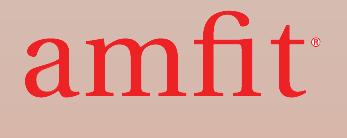

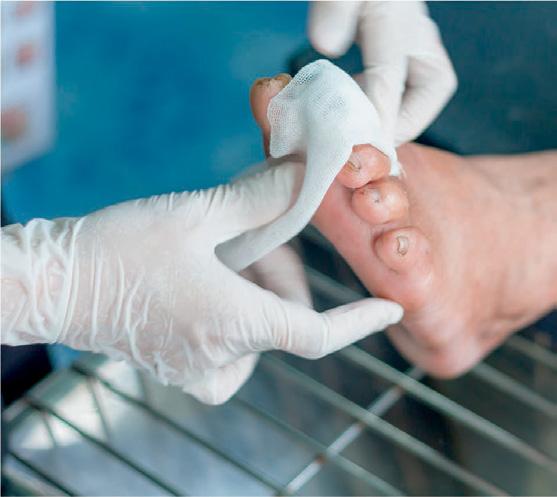

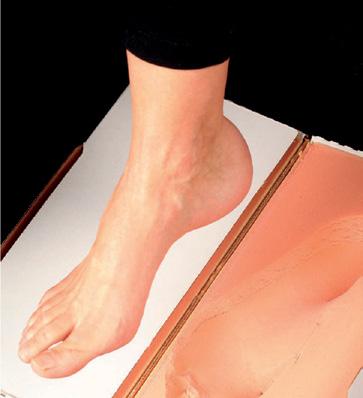


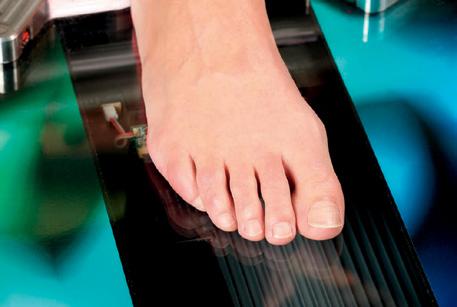

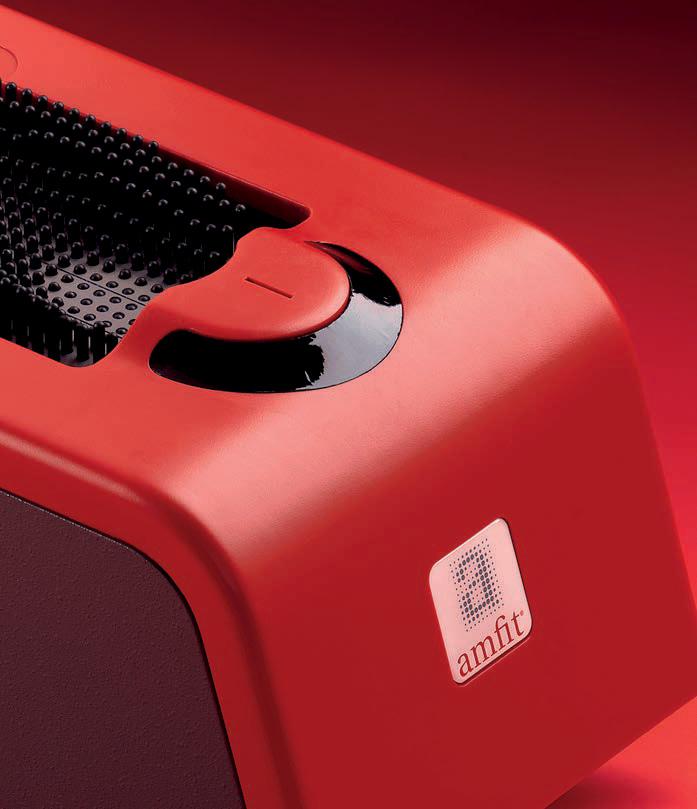




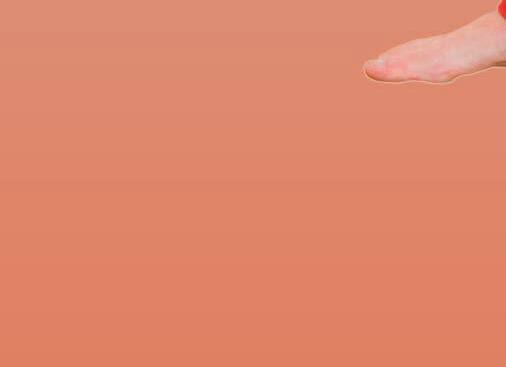










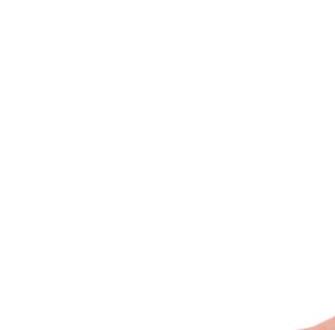
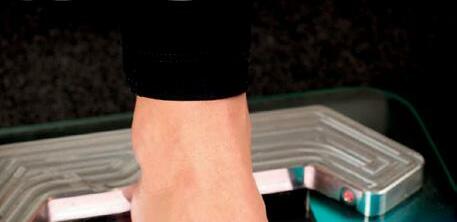
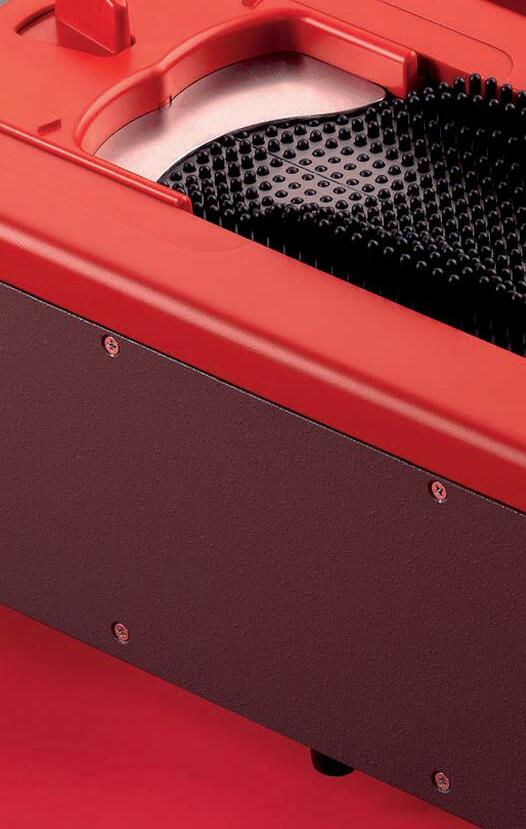


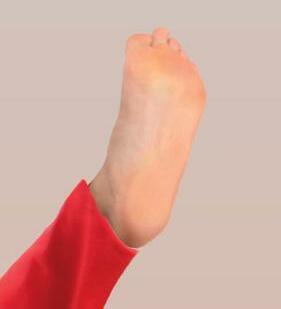
column focuses on experienced educators within the O&P profession. Here, you will get to know inspiring individuals who educate the next generation of O&P professionals.
THE O&P EDUCATIONAL PROGRAM at the University of Washington (UW) has evolved over the past two decades, with Ann Yamane, MEd, CO, LO, leading the transformation. From 2005 through 2021, Yamane served as the program director, responsible for facilitating ongoing educational pro gramming, working on assessment and accreditation, and supporting the faculty and students.

Most significantly, she played an instrumental role in transitioning the O&P program from a bachelor’s degree to a master’s degree, and in overseeing the program when the COVID-19 pandemic forced changes in the way learning was delivered.
In 2013, the National Commission on Orthotic and Prosthetic Education (NCOPE) implemented a requirement for a master’s degree in O&P as the minimum educational standard for new clinicians to become certified practitioners. The O&P schools had to adapt from offering bachelor’s degrees and certificates to building curriculum for master’s programs.
“The long-standing educational accreditation efforts by NCOPE, in conjunction with the Commission on Accreditation of Allied Health Education Programs, provided a framework for the programs to have a similar level of foundational knowledge related to medical information and patient evaluation skills and knowledge,” she explains. “Obtaining approval for our master of prosthetics and orthotics (MPO) program was a lengthy pro cess, but the P&O faculty [at UW] learned a lot about navigating univer sity and graduate school procedures and educational requirements.”
She also played a pivotal role in navi gating through the impact of COVID-19 at the university. In spring 2020, traditional in-person classes had to be suddenly transitioned into online format. “The program directors and administrators in the rehabilitation medicine department worked collaboratively to establish new procedures and safety measures, making the administrative load especially chal lenging these past two years,” Yamane says. “The support of the clinical rotation sites and preceptors made it possible for our students to continue clinical practice
Ann Yamane, MEd, CO, LO, who recently retired as the UW’s O&P program director, leads through change
experiences. Guest presenters from across the United States were generous with their time and expertise in providing remote lectures and discussions.”

During the summer of 2020, Yamane and other O&P department leaders requested permission to enter campus to work with patients once again, and students returned to campus in July for patient sessions, explains Yamane. “We had to create and implement a ‘COVID safety plan,’” which aligned with the recommendations of UW’s School of Medicine leadership for clinical settings, and included hand hygiene, safety protocols, and other precautions, says Yamane.
a focus on immediate postoperative care, which was intriguing to me.”

Yamane spent her last quarter before graduation gaining clinical experience at Children’s Hospital at Stanford University in the Rehabilitation Engineering Center, where Maurice LeBlanc, CP, was the director. “This was a great experience in a center with a focus on interdisciplinary team care

that provided seating and mobility and communication services in addition to prosthetics and orthotics,” she recalls. After graduation in 1976, she took a temporary summer position in the seating and mobility service under the mentorship of Wally Motloch, CO, and was hired full-time in the fall as an orthotist working with Jim Barnes, CO, and David Pinto, CO.
Yamane’s journey to O&P program director—and an adaptable leader— began during her own undergraduate days at UW. She initially learned of the Bachelor of Science P&O program after meeting a student who was enrolled. She visited the O&P department and spoke with then program director, Bernard Simons, and decided to apply for the upcoming year. “I had no volunteer experience in P&O but had volunteered at Harborview Medical Center in the occupational therapy department,” she recalls. “I was drawn to the P&O profession since it was a nontraditional career for women,” and because clinical care was a com bination of patient interactions and technical skills. “At the time, there was
Stefania Fatone, PhD, and Ann Yamane, MEd, CO, LO
PEDORTHIC EDUCATION COURSES.
QUIZ.
“I wanted to travel, so I took a year off and traveled to Southeast Asia,” she says. Upon her return, she began working with individ uals with spinal cord injuries and was offered a position at the UW Department of Rehabilitation Medicine in the P&O Lab. “I was fortunate to have the opportunity to work with Justus Lehmann, MD, and Walter Stolov, MD, providing inpatient and outpatient services.”
During the mid-1980s, Yamane pursued an interest in teaching in addition to maintaining a clinical practice. After serving as a part-time instructor for several years, Yamane became a lecturer at UW’s O&P program in 1987 and was named senior lecturer in 2003. She officially took over program director duties in 2005. She also went back to school herself, earning a Master of Education degree in instructional leadership in 2009.
Yamane remained program director until December 2021. In January 2022, Stefania Fatone, PhD, joined the UW faculty and assumed the program director position. Yamane continued her teaching responsibilities as an associate teaching professor in the program until her retirement a few months ago—but she continues to be connected to the department with an emeritus appointment.
Yamane’s instructional prowess has always been guided by her experi ences in the clinic; in addition to her university responsibilities, she has committed a significant amount of time to patient care. Throughout the majority of her career, in addition to teaching, she was an orthotist at the UW Medicine’s Prosthetics and Orthotics Clinic. She earned honors as a Distinguished Practitioner from the American Academy of Orthotists and Prosthetists in 2017.
“My preference has always been to work in an interdisciplinary setting envi ronment, and I have learned so much from the other members of the health care team,” she says. “I believe this
desire was instilled in me while in school since we took classes with the occupa tional and physical therapy students in addition to the physical medicine and rehabilitation medicine residents.”
She appreciates having been a part of the rehabilitation medicine department, which helped shape her clinical knowledge and approach to patient care. “This access and exposure to other healthcare pro fessionals is also invaluable to the student’s educational experience.”
pushed me to be a lifelong learner.”
One area of focus that she continues to be passionate about is diversity, equity, and inclusion (DEI) within the profession. “Over the years, I have seen an increase in the number of women and individuals from underrepresented groups applying and being accepted into educational programs,” she says.
Yamane believes it’s important to expand efforts to be more inclusive within the profession. “I would like to see DEI initiatives be more inclusive of other underrepresented groups in addition to race and ethnicity such as sex, sexual orientation, gender identity and expres sion, socioeconomic status, and mental and physical status,” she says. In addition to attracting underrepresented students to the profession, “we also need to have adequate support systems in place to ensure success in the educational programs and in clinical practice.”
She also is happy to note the growing trend of O&P students earning doc torate degrees. “The increasing number of P&O practitioners who have attained PhDs has positively contributed to the clinically relevant P&O research body of knowledge,” she explains.
Yamane also has been involved in shaping O&P education on a national level. She spent several years as a member of NCOPE’s Outcomes Committee; as a board member for NCOPE; as a member of NCOPE’s O&P Education Committee; and as chair of the Education Committee of the International Society of Prosthetics and Orthotics.

Yamane appreciates the time she spent working closely with O&P students: “They are bright and enthusiastic about the profession and learning clinical skills,” she says. “I have learned so much from the students, and they have inspired and
In her emeritus appointment, Yamane will continue as a co-chair of the Equity, Diversity, and Inclusion Council within UW’s rehabilitation medicine depart ment. “Our mission is to cultivate and support diversity and foster inclusion through recruitment and advancing the development of diverse, inclusive, and equitable learning environments in the classroom and clinical practice.”
Ensuring enough clinicians are available to care for future patients is important, Yamane says. “We need to continue to focus on bringing visibility of our profession to the public and to students and teachers in middle school and above,” she says. “I know of many practitioners who are giving presentations to students in ele mentary through high school classes, and all of the education programs are involved in outreach efforts.”
As Yamane reflects on the past and considers the future of O&P education, she notes that what hasn’t changed at the O&P schools: the passion and innovation of both faculty and students, and their dedication to improving lives of O&P patients. “The students we have are really bright, caring, compassionate people,” she says—which bodes well for the future of the profession.
Yamane committed a significant amount of time to clinical work in addition to her program director responsibilities.

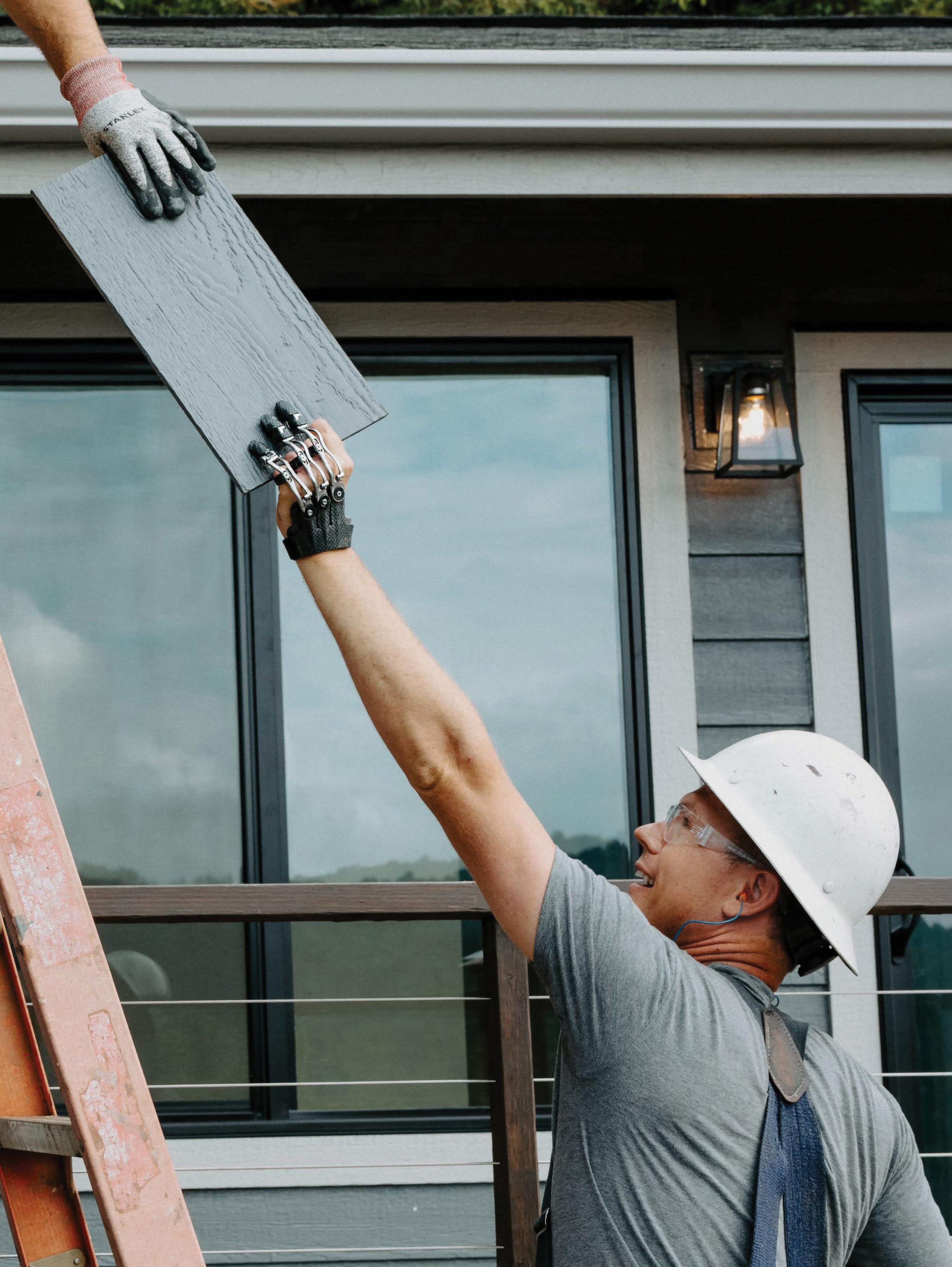
JASON TANNER, CPO, recently treated a 3-year-old with arthrogryposis. “This child had been to specialists around the country, and his mom felt that he would never be able to stand or walk,” says Tanner. “We made him braces, and this was the first time he was able to stand on his own. His mother burst into tears. We do that for patients all the time.”
Success stories like this moti vate Tanner to provide optimal patient care at his facility, Ark Valley Orthotics & Prosthetics, in Wichita, Kansas. Tanner pursued O&P precisely because he wanted to help people. He grew up on a farm in northwest Kansas and considered a career in medicine—but he did not want to spend 12 years in training. He started off his undergraduate years studying physical therapy, but soon encountered prosthetists and orthotists while shadowing a thera pist at the Madonna Rehabilitation Center in Lincoln, Nebraska.
“A lightbulb went off,” he recalls. “I had always liked building things [and] working with my hands, and O&P seemed like the perfect com bination of the medical aspect of
helping people and building stuff.”
He talked his way into a part-time position as a technician working for an orthotist and spent his first few undergraduate years working there.
Tanner earned his orthotics and prosthetics degree at the University of Washington and completed his O&P residency at the University of Oklahoma.

He went to work for Becker
Orthopedic at Henry Ford Hospital in Detroit, Michigan. After his wife, Jessica, completed her medical residency and fellowship, the couple moved back to Kansas to be closer to family. Tanner took major responsibility for their daughters while his wife established her med ical career, and in 2007, he began to work part-time for Ark Valley O&P. After about 18 months, Tanner became the sole owner of the facility. He continued to work parttime in the clinic and spent nights and weekends building devices out of his garage. As word of mouth spread and business grew, he transitioned to a full-time clinician.
Ark Valley moved to a new space in 2019, expanding from 1,150 to 6,400 square feet. Today, the company has eight employees. The


last O&P resident, Kelsey Krnavek, CPO, has stayed on as a full-time clinician to help meet client demand. Ark Valley’s patients range from pediatric to geriatric, and the facility fits devices head to toe.
Tanner embraces modern technology, but he prefers to complete most of the fabrication by hand. “Part of the reason I got into the profession is that I like to build things myself,” he says. A fabrication lab occupies the back half of the facility, and it is designed with windows so that patients and families can watch the process.
Tanner is committed to giving back both to his profession and to his community. He is an orthotic and prosthetic CPM examiner for the American Board for Certification in Orthotics, Prosthetics, and Pedorthics. He also serves on the Orthotic Exam Committee, traveling several times a year to con duct and work on exams.
Ark Valley supports several foundations in the area, including Wichita Adaptive Sports, which organizes sports activities for children with physical challenges, and Wichita’s Littlest Heroes, which offers services and financial support to children with lifethreatening medical conditions.
Tanner says he attributes the growth of Ark Valley O&P to God’s grace and his own simple philosophy: Do what is right and follow the golden rule. “I treat everyone as I would like to be treated. I am committed to do whatever I can for our patients.”
Deborah Conn is a contributing writer to O&P Almanac. Reach her at deborahconn@verizon.net.
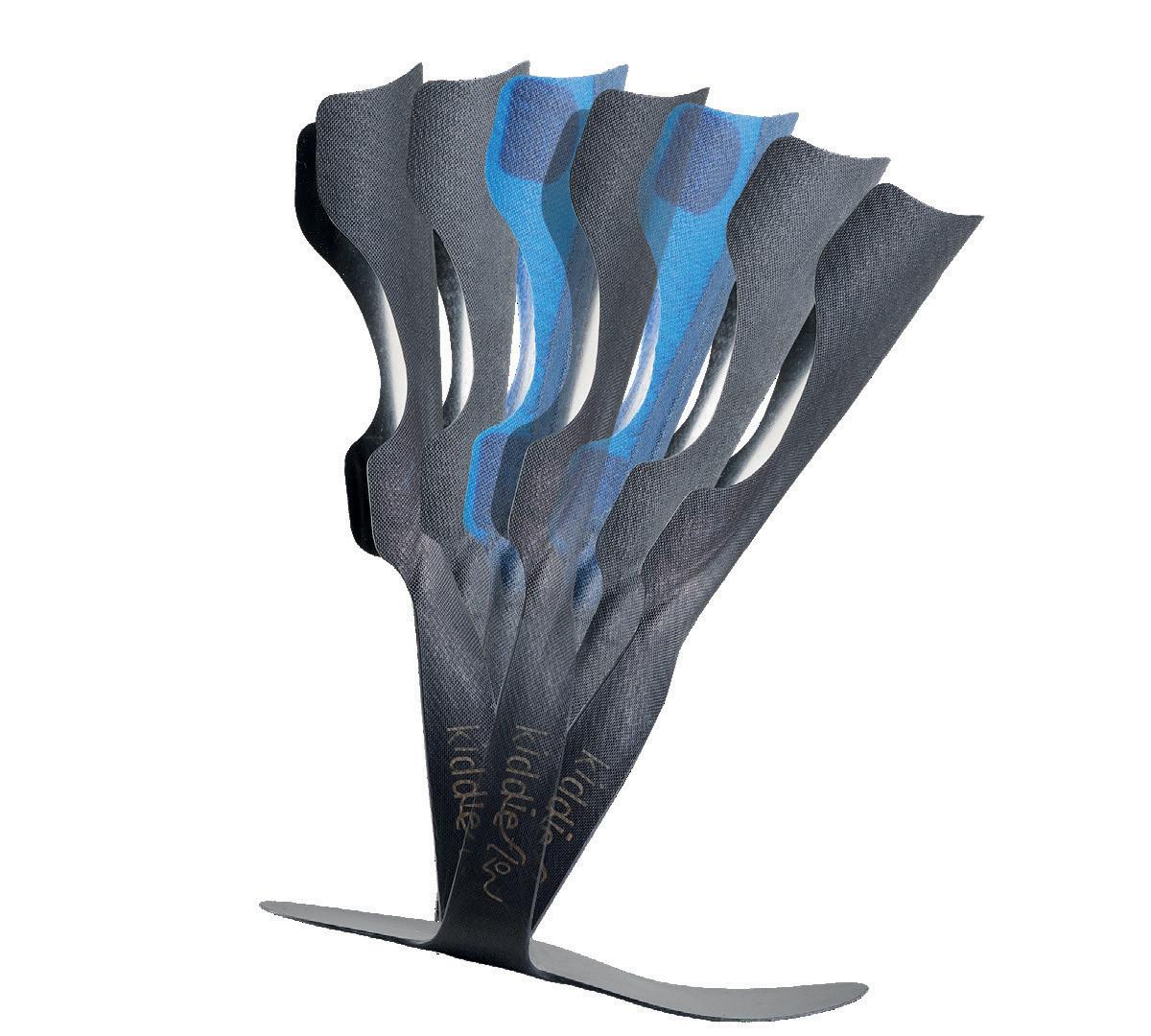
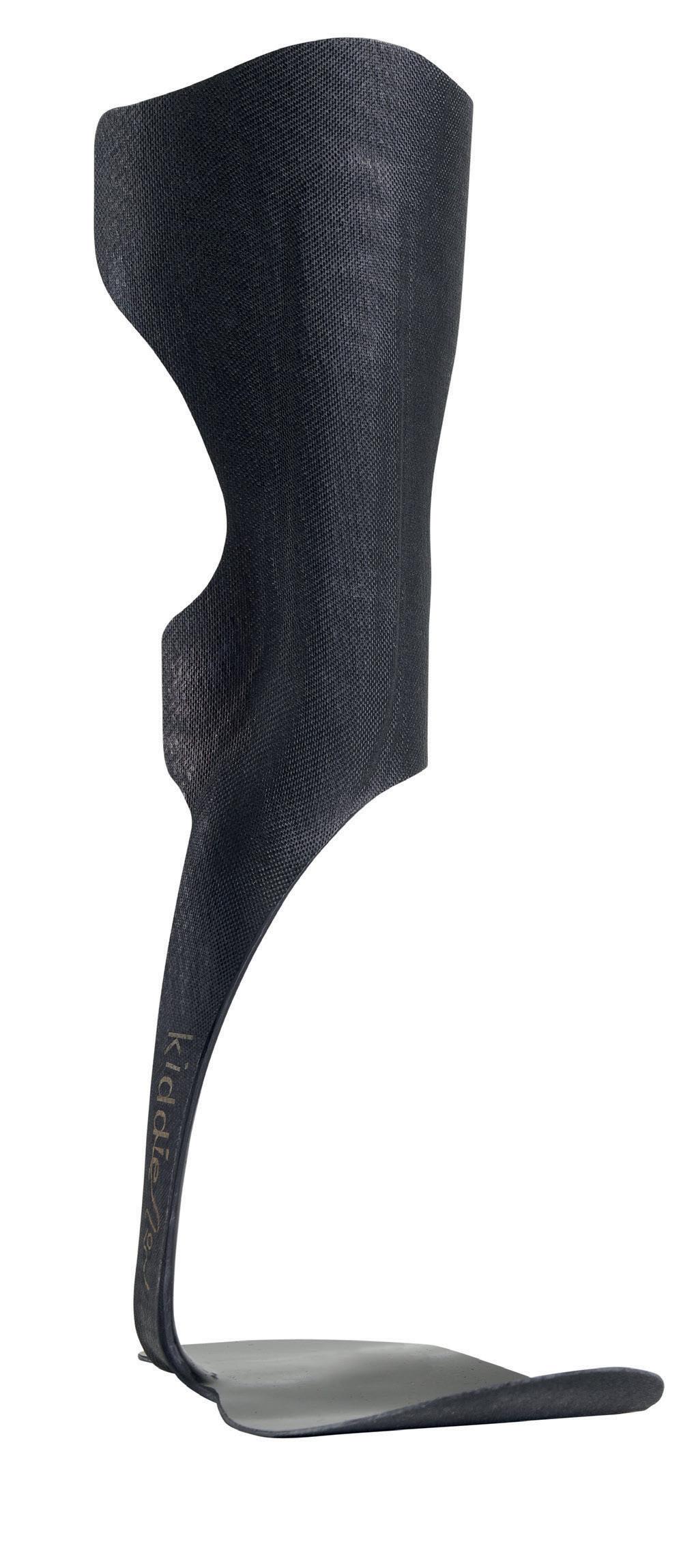

With the same unique features as
& KiddieROCKER®!
JESSICA NORRELL, MBA, CPO, began her career in O&P when she was 15, sweeping the floor at her uncle’s facility. She noticed that her uncle was a superb clinician, but he struggled with the business side of his practice. Norrell decided to pursue education as an O&P clini cian as well as a master’s degree in business administration. She honed her O&P business skills working at OPIE Software for seven years.
“I loved working with clients, helping them one-on-one with their business problems,” says Norrell. But as her career grew, “I was expected to do more man agerial work and have less direct contact with customers,” she says. “I really missed my interactions with the actual profession.”
She and her husband, Oliver Norrell, decided to open their own company to help O&P clients with business projects. “At first, we had three clients, and we worked with them on projects ranging from starting a central fab company, to developing a program for new hires, to updating business documenta tion like policies and procedures and performance reviews,” says Norrell.
Her husband works on the back-end operations of MOZN Solutions, including software administration and research, while Norrell works directly with clients. A third member of the team, Riley Beeck, is a contractor who spe cializes in training and onboarding for their clients’ new employees.
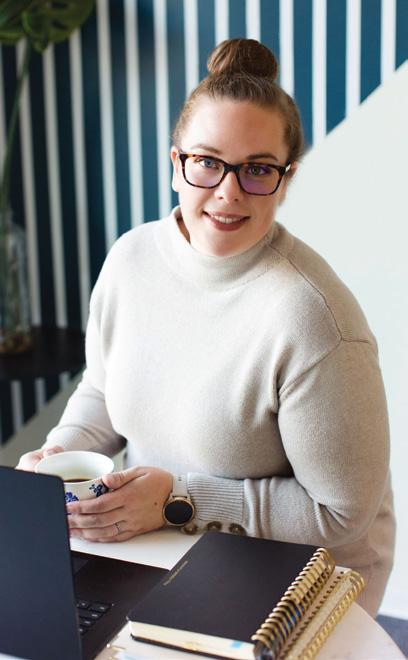
MOZN—named for the couple’s two children, Morgan and Oliver, their dog, Zoey, and their last name—now focuses on programs for new hires, process improvement to help owners who

Jessica Norrell, MBA, CPO (far right), launched MOZN Solutions with her hus band, Oliver (far left) three years ago.
want to take their companies to the next level, and project man agement that includes software implementation, financial cash flow analysis, and using Microsoft 365 to accomplish their goals.
intermediary between practices and insurance companies. “I want to get enough data in the profes sion to understand what profit margins look like in general, and work with insurance companies to help them see how they are underpaying,” she explains. “They still see us as device providers and miss the clinical time, administra tive time, [and] treatment time that goes into our work. I want facilities to make enough profit so they can hire the most quali fied and best trained employees and keep them around.”
LOCATION:
HISTORY:
years
Virginia
The mission of MOZN, says Norrell, is to help O&P healthcare facilities maximize their business to whatever capacity they want. “We meet them where they are, and we are very in tune with working one-on-one with our clients,” she says. “They’re not just a number to me, and I think that’s one reason our company stands out.”
MOZN helps busi nesses achieve greater profitability by increasing clients’ understanding of their margins in current insurance contracting.
“We look at operating expenses, prescription timelines, and the cost of materials to help clients develop processes to improve productivity and profit,” she notes.
Norrell has an overar ching goal to serve as an
The company has leveraged word of mouth to promote its services, and Norrell also hopes to speak at industry meetings. She has started marketing through LinkedIn as well. MOZN sup ports several charities in the area, including the ASK Childhood Cancer Foundation. Norrell plans to become more involved with various O&P organizations.
As O&P technology evolves, Norrell says she would love to work more on the manufacturing side as well. “I feel like we are going to see a lot of [technology] developed in European markets, and we’d like to see our software tech evolve to include more integrated practice management systems,” she says.
Long term, Norrell plans to continue MOZN’s growth, devel oping a team of people who want to serve the O&P profession. “We have each other’s back; we are all in this together; and I’d like to see the work we do bring everyone up.”
Deborah Conn is a contributing writer to O&P Almanac. Reach her at deborahconn@verizon.net.

for the most up-to-date information on specific topics during these onehour webinars, held the second Wednesday of each month at 1 p.m. ET. One registration is all it takes to provide the most reliable business information and CE credits for your staff at a single office location. Visit AOPAnet.org/education/ monthly-webinars for details and registration information.
Start preparing for the holiday season! When and how is it appropriate to give gifts to your patients and referral sources? This webinar reviews the rules surrounding gift giving and shares important steps to remain compliant.
Join AOPA for the final AOPAversity webinar of 2022! As the year comes to an end, AOPA experts will highlight the updates and changes in policy, reimbursement, and coding from the previous 12 months and provide insights into potential changes in 2023.
Be on the lookout for AOPA’s 2023 webinars— coming soon!
View the content you missed—or revisit a favorite session—starting October 17!
Educational content from the AOPA 2022 National Assembly in San Antonio will be available virtually from October 17 until December 18. View valuable, cutting-edge, clinical and business content—and earn CE credits. Visit AOPA’s website, aopanet.org, to find out how you can learn on your own schedule!

THE OFFICERS AND DIRECTORS of the American Orthotic & Prosthetic Association (AOPA) are pleased to present these applicants for mem bership. Each company will become an official member of AOPA if, within 30 days of publication, no objections are made regarding the company’s ability to meet the qualifications and requirements of membership.
602 Cabell Avenue, Apt. 6 Charlottesville, VA 22902 434/242-0258
icarusmedical.com
David T. Johnson, MS Supplier Startup
709 W. 8th Street, Ste. 4 Gillette, WY 82716 307/696-8016
pivotpo.com
Brodie Rice, CPO Patient-Care Facility
In response to clinician requests for an orthosis with more foot plate flexibility, Allard USA has extended its pediatric AFO line with KiddieFLOW™. KiddieFLOW™ allows for better control of foot positioning in late swing, which aids in stability during stance. FLOW models offer increased range of motion in the sagittal plane and a smoother transi tion (flow) throughout the gait cycle.
For more information, contact customer service at 888/678-6548 or info@allardusa.com and request your free Product Selection Guide!
ALPS® Superior Performance Liner, made with either GripGel or HD Gel, features a black fabric with limited vertical stretch to improve control and stability of the prosthetic leg by reducing pistoning. The GripGel version combines softness, strength, and cush ioning to deliver the greatest possible protection to the residual limb, making it beneficial for users with low to medium activity levels. The HD Gel version minimizes the movement of soft tissue and provides a high level of control of the prosthetic leg, resulting in a comfortable and durable liner that can keep up with your most active patients.

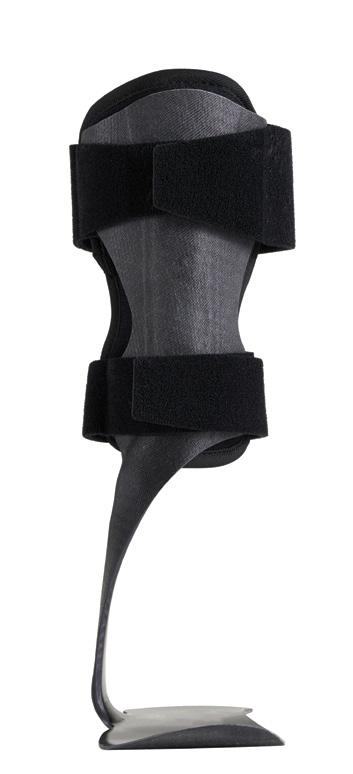
To learn more about the Superior Performance Liner, visit easyliner.com or call 727/528-8566 or 800/574-5426.

• Costs less than carbon fiber
• Little to no itch
• Tougher than carbon fiber.
Coyote Composite is a natural fiber made of Basalt Braid (lava rock). It is a nontoxic and noncarcinogenic alternative to carbon fiber.
Contact Coyote at 208/429-0026 or visit coyote.us
Coyote® QSchool is our orthotic and prosthetic online education system.

We’ve made it easier to share our processes with you.
Coyote has nine courses worth over 13.5 CE credits avail able. We offer courses on products like “All Things Air-Lock,” or “Dynamic Strut AFO” and its fabrication, and a number of other courses dealing with casting, basic fabrication, and materials like our “Alternatives to Carbon Fiber” course.
All of our online courses are FREE for the rest of 2022, be sure to check opqschool.com for the credits you need.
For more free CE credits go to coyote.us/events and register for our webinars.
ESP created the Flexi family of suspension sleeves as a comfortable, durable, and cost-effective alternative to traditional suspension sleeves. Preflexed at 43 degrees for maximum comfort and natural unrestricted movement.
For more information, call ESP LLC at 888/932-7377 or visit wearesp.com



Mecuris is a digital services provider for O&P professionals. Mecuris translates traditional craftsmanship into an intuitiveto-use software that allows the creation of customized orthopedic devices flexibly online. The software is offered in a freemium model on the web-based Mecuris Solution Platform, helping clinics to streamline their business and optimize resources for the best patient care. See how to best combine traditional with digital work flows in a free webinar while earning CEUs in the pro cess. For more information go to mecuris.com/en
It’s all about function. We are the manufacturers of durable prosthetic devices specifically for finger and partial-hand amputations. Our aim is to positively impact our wearers’ lives by providing high-quality finger prostheses. We offer four devices: MCPDriver (shown in rose gold), PIPDriver, ThumbDriver, and our newest device, the GripLock Finger. Our devices help to restore length, pinch, grasp, stability, and pro tection for sensitive residuum. Robust device engineering and their ability to withstand harsh environments help get people back to performing activities of daily living, and back to work. All are available in a dozen color coatings to match our wearers’ preferences and styles. To learn more, visit npdevices.com
Hersco is delighted to offer HP’s advanced 3D-printing technology for custom orthotics. 3D printing has unique design capabilities not possible with other methods—reducing landfill waste by 90%! The accuracy of 3D is unparalleled, specs exceed direct-milled polypro, and manual plaster fabrication.

Among the benefits: a 90% reduction in landfill waste, many new design possibilities for posting, and the ability to vary thickness and flexibility across the shell. The PA-11 polymer is a biobased renewable material that has been tested and proven in research and industry.
Call today, 800/301-8275, for a free sample.
Spinner Expandable Wall Dynamic Socket System

Expandable wall up to 3/8-inch
Dynamic socket system
Variable pressure application
Enhanced skeletal stability

Fine tune socket fit
Socket suspension mechanism
Easy fabrication
Laminated or thermoplastic
Waterproof
AK, BK, and Upper Extremity
LCODE L5630 (BK) or L5653 (AK).
For more information, contact BlackFin Biomechatronics LLC at 970/440-3244 or visit blackfinmt.com
Unique Liners from Ottobock are highly customized, so you can achieve innovative fitting results. The silicone Skeo Unique custom liner is recommended when high stability and durability are required.

This liner:
• Is appropriate for very conical or scarred residual limbs
• Stabilizes residual limbs, even those with significant soft tissue
• Skin-friendly silicone enables a superior connection with the residual limb
• Easy handling, easy cleaning.
Utilize the new Ottobock EasyScanner or the free Custom4U iPad app with a Structure scanner to digi tally capture the limb. STL files from any scanner can be uploaded into our iFab Customer Center (iCC) for easy digital ordering without shipping casts. Learn more at shop.ottobock.us.
The ShockWave™ incorporates a Spherical Shock Unit (SSU) into the industry-leading classic Freedom foot design with its proprietary EnduraCore® hybrid composite technology. The SSU provides both vertical shock absorption and +/-15 degrees of axial rotation, giving the everyday and active K3/K4 patients a shockingly natural and comfortable experience. Visit proteorusa.com/freedomshockwave.

Unique Liners from Ottobock are highly customized, so you can achieve innovative fitting results. The urethane Uneo
Unique custom liner achieves an exact and comfortable fit thanks to the extraordinary flow characteristics.
Other qualities include:
• Polyurethane gel to cushion highly sensitive or scarred residual limbs
• Good pressure distribution within the socket
• Comfortable impact absorption
• Skinguard antibacterial or fresh scent options available.
Utilize the new Ottobock EasyScanner or the free Custom4U iPad app with a Structure scanner to digi tally capture the limb. STL files from any scanner can be uploaded into our iFab Customer Center (iCC) for easy digital ordering without shipping casts. Learn more at shop.ottobock.us.


The XtremityTT Socket System is a new thermoformable transtibial definitive socket that will have a transformational impact on prosthetic care. O&P providers can heat, vacuum mold, trim, and assemble XtremityTT in one hour. During follow-up appointments, the prosthetist can use a heat gun to quickly make spot adjustments to the carbon-fiber reinforced polymer socket to optimize the patient’s comfort and mobility. XtremityTT is a complete system with interchangeable suspension components and an innovative baseplate for fine-tuning alignment. Visit xtremity.com

Ottobock’s product experts examined our full range of lower-limb products and designed winning combinations with ideal patient outcomes in mind. With six recommended combinations, there’s something for everyone.
Winning combinations are driven by the priorities of your patient, such as activity level, foot preferences, hygiene needs, optimal volume management, and so much more. One of the winning combos even features the most preferred MPK, Ottobock’s trusted C-Leg. With these expert-curated options at a 25% discount, providing your patients with the best components for their desired outcomes is easier than ever.
Learn more at shop.ottobock.us or scan the QR code.

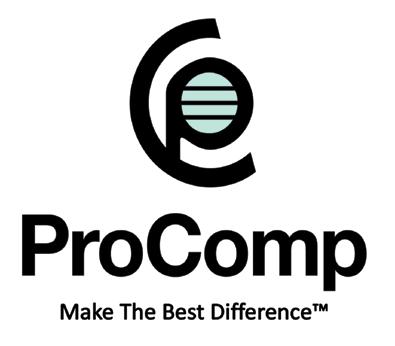
“I designed this composite to allow you to transition from plastic to composite thermoforming.”
Composite Material Science = Improved Fabrication Processing = Enhanced Clinical Performance ProComp® is produced in a high-pressure laminating process that infuses discontinuous carbon fiber into homopolymer propylene.
The patented prepreg composite sheeting is compatible with standard drape-encapsulation or bubble vacuum thermoforming.
Finishing techniques are standard. Four standard gauges are available for both orthotic and prosthetic applications. Eligible for double L2755 application in thermoplastic AFOs and appropriate prosthetic addition codes.
For more information, visit fabwithprocomp.com Contact Gary G. Bedard, CO, FAAOP(D), managing principal, Rhode 401 LLC, at 650/773-3730 or email garyb@fabwithprocomp.com
Are you making countless adjustments to braces? Seeing the same unhappy patients over and over? Casting legs? Losing money? You may be ready for the Xtern. Your patients are ready. This revolutionary brace, specifically designed for people suffering from foot drop, is entering its sixth generation: the Xtern Summit. The Xtern line sits entirely outside the shoe, and is so flexible that it allows maximal range of motion and calf muscle strength. It combines extraordinary lightness with proven comfort. You’ll barely notice it’s there.
Turbomed’s Xtern Classic, Xtern Summit, and Xtern Frontier are designed in Quebec, Canada, sold in more than 30 countries around the world, and distributed by Cascade in the United States. Visit turbomedusa.com, and think outside the shoe!
The Xtern Summit launches October 15, and will replace the Xtern Classic in the U.S.


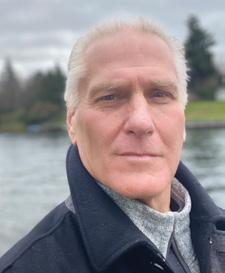
GARY G. BEDARD, CO, FAAOP(D)
Job Location Key:
Hire employees and promote services by placing your classified ad in the O&P Almanac. Include your company logo with your listing free of charge.
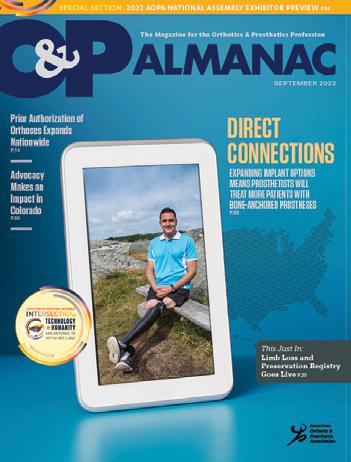
Refer to AOPAnet.org for content deadlines. Ads can be posted and updated any time online on the O&P Job Board at jobs.AOPAnet.org No orders or cancellations are taken by phone. Send classified ad and payment to: O&P Almanac, Calendar, P.O. Box 34711, Alexandria, VA 22334-0711 or email jburwell@AOPAnet.org along with VISA or MasterCard number, cardholder name, and expiration date. Make checks payable in U.S. currency to AOPA. Note: AOPA reserves the right to edit calendar listings for space and style considerations.
Color Ad Special Member
Count
Northeast, Mid-Atlantic, Southeast
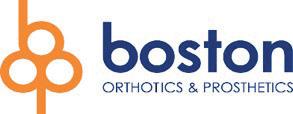
Boston O&P is searching for experienced O&P professionals who want to work in a new clinic in the geographical area of their choice, but may be limited by noncompete agreements with their existing company.
We understand that experienced clinicians may have noncompete contracts that limit their ability to practice in a certain area for a specified period of time.
Our new program ensures that your contract is honored by relocating you to one of our established clinics outside the restricted area, where you will learn our culture and service programs. We offer flexible schedules to limit the amount of time you are away from your family.
Once your noncompete requirements have been hon ored and your training is complete, you will move to the new clinic near your home, where your role will involve building the internal team to improve the quality of pediatric care in that market and actively building the practice.
To be considered, candidates can simply follow this link: bostonoandp.com/for-providers/ experienced-clinicians-new-clinics/
For more information, confidentially contact Boston O&P President and CEO Tom Morrissey
Contact: Tom Morrissey Email: tmorrissey@bostonoandp.com
A large number of O&P Almanac readers view the digital issue— If you’re missing out, visit issuu.com/americanoandp to view your trusted source of everything O&P.
If
A
Barry Smith
Telephone: (O) 323/722-4880 • (C) 213/379-2397
Email: loyds@ix.netcom.com

Prevail is seeking an orthotic and prosthetic assistant to join its team in Fort Wayne, Indiana. Under the supervision of a CPO, the clinical assistant will perform various tasks to assist the CPO in the provision of casting, fitting, and fabricating orthotic and prosthetic devices. The candidate will also be responsible for fitting various prefabricated devices to patients in an office and hospital setting, under the CPO’s direction. Email résumés to:
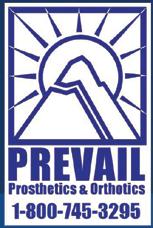

Email: kkail@prevailpando.com
My Pet's Brace LLC is offering licensee opportunities with defined geographical areas to provide veterinary O&P to veterinarians, rehab professionals, and dog owners. We are one of the largest veterinary orthotic and prosthetic companies in the world and have been providing orthoses and prostheses for 11 years, in every state and 32 countries to over 4,100 veterinarians and rehab professionals.
For a unique and rewarding opportunity without the hassles of reimbursement denials, contact jim.alaimo@mypetsbrace.com
Job searching is easy with the pane-view job search page. Set up job alerts, upload your resume or create an anonymous career profile that leads employers to you.



Reach 4,500+ O&P professionals through the Job Flash™ email. Ensure high visibility for your open positions through this highly engaging email.
For more information on recruitment options, contact Customer Service at clientserv@communitybrands.com or (727) 497-6565

Orthotic & Prosthetic Innovative Technologies Conference. Minneapolis, MN. For updates, check our website at optech.ucsf.edu. Email cme@gillettechildrens.com to be added to conference mailing list

PrimeFare East. Nashville Renaissance Hotel and Conference Center. In-Person Meeting. Contact Cathie Pruitt at 901/359-3936, pruittprimecare@gmail.com; or Jane Edwards at 901/487-6770, jledwards88@att.net. For more information, visit primecareop.com
Virtual Seminar
Virtual Coding & BIlling Seminar. 12-4 PM ET. Register at aopanet.org
Monthly Webinar November 9 The Do’s & Don’ts of Gift Giving. 1 PM ET. Register at aopanet.org
New Jersey Chapter of American Academy of Orthotists and Prosthetists (NJAAOP) Meeting. Atlantic City, NJ. For more information, visit njaaop.org/annual-meeting.

AOPA National Assembly. Indianapolis, IN For more information, visit aopanet.org
Monthly Webinar
December 14 Year-End Review and What Is Ahead. 1 PM ET. Register at aopanet.org
Phone numbers, email addresses, and websites are counted as single words. Refer to aopanet.org for content deadlines. Send announce ment and payment to: O&P Almanac, Calendar, P.O. Box 34711, Alexandria, VA 22334-0711 or email jburwell@AOPAnet.org along with VISA or MasterCard number, cardholder name, and expira tion date. Make checks payable in U.S. currency to AOPA. Note: AOPA reserves the right to edit calendar listings for space and style considerations.

Allard USA 45 866-678-6548 allardusa.com

ALPS South LLC 23 800-574-5426 easyliner.com
Amfit 39 800-356-3668 amfit.com
Board of Certification/Accreditation 17 877-776-2200 bocusa.org
Cailor Fleming 37 800-796-8495 cailorfleming.com
Coyote Prosthetics & Orthotics 29, 31 800-819-5980 coyote.us ESP LLC 5 888-WEAR-ESP wearesp.com Hersco 1 800-301-8275 hersco.com
Mecuris 9 4989200057340 mecuris.com
Naked Prosthetics 43 888-977-6693 npdevices.com
Ottobock 27, C4 800-328-4058 professionals.ottobockus.com
Proteor USA 3 855-450-7300 proteorusa.com
TurboMed Orthotics 15 888-778-8726 turbomedorthotics.com
Xtremity 7 970-429-4203 xtremity.com
AD INDEX

If you are interested in participating in the AOPA State Reps network, email smiller@AOPAnet.org
Each month, State By State features news from O&P professionals about the most important state and local issues affecting their businesses and the patients they serve. This section includes information about medical policy updates, fee schedule adjust ments, state association announce ments, and more. These reports are accurate at press time, but constantly evolve. For up-to-date information about what is happening in your state, visit the Co-OP at AOPAnet.org/resources/co-op.
BY NOW YOU’VE LIKELY heard about So Kids Can Move, the state-level policy initiative by AOPA, the National Association for the Advance ment of Orthotics and Prosthetics, the American Academy of Orthotists and Prosthetists, and the Amputee Coalition. The initiative aims to expand access to recreational prostheses as medically necessary healthcare for children.
Below are answers to the most frequently asked questions concerning So Kids Can Move
Recreational prostheses are medi cally necessary because they create opportunities for physical activity,
an essential component of a healthy childhood. Whether it’s vigorous exercise or simple day-to-day move ment, being physically active increases strength and balance, reduces the risk of disease, improves mental health, supports better quality sleep, and aids in cognitive and social development.
Recreational prostheses also play a key role in injury avoidance during physical activity, as using an inappropriately designed prosthesis can lead to secondary conditions like osteoarthritis, as well as knee, hip, and back pain, skin sores and discomfort, and higher fall rates.
Currently, only one state has enacted a law mandating that insurance carriers consider the recreational needs of children when determining prosthetics coverage: Maine’s LD 1003. Passed in May 2022, LD 1003 is the result of efforts from limb loss advocate Jordan Simpson, whose graduate-level social work project on the issue caught the attention of Maine State Rep. Colleen Madigan (D) during a campus visit. This law goes into effect in 2024.
The decision to initiate an advocacy effort in a state involves several factors, including legislative engagement, levels of state and regional O&P associations, the history of O&P legislation in a state, O&P provider relationships with policymakers, and insurance favor ability to the O&P industry. So Kids Can Move will assess the likelihood of success and determine our ability to intervene on a case-by-case basis.
It depends! Each state has its own legislative calendar, key players, and pressing issues of the day, so there is no one-size-fits-all approach to improving access to recreational prostheses for children that will work in every state. What is important to keep in mind, regardless of state, is that generating awareness and building legislative support for an issue takes time and persistent effort.
If you are interested in bringing So Kids Can Move to your state, we’d love to hear from you! Please contact Sam Miller, AOPA state and federal advocacy manager, at smiller@aopanet.org to let us know how we can help you begin the process of advocating for recre ational prostheses for children.
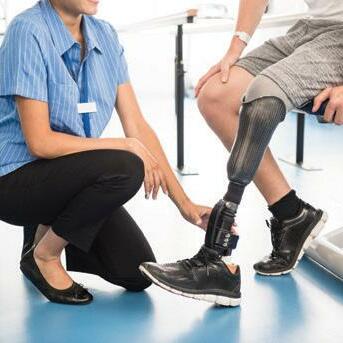






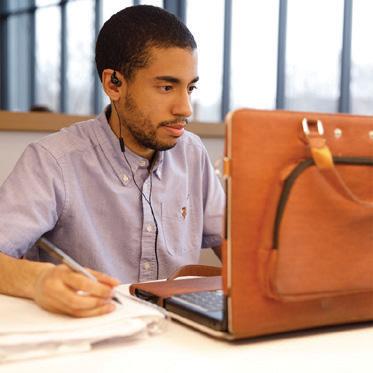
Since the introduction of C-Leg and its groundbreaking control technology, Ottobock has never stopped inventing new ways to take your patients as far as they want to go. With a portfolio including the Kenevo, Genium, X3, and now the latest iteration of C-Leg 4, every microprocessor knee supports a journey toward a limitless future.
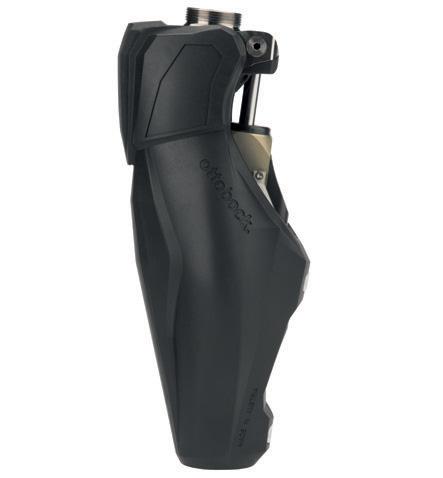
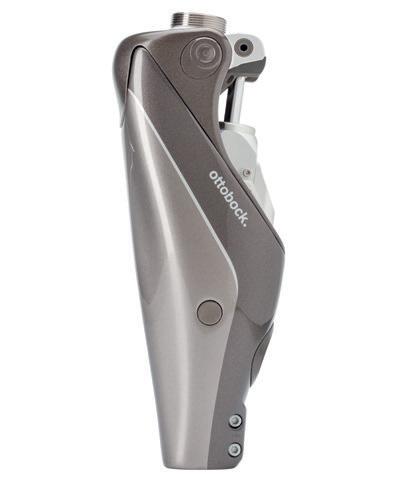

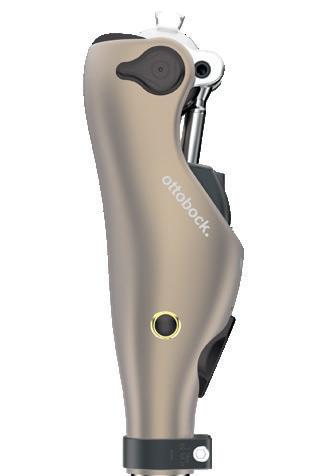


The Kenevo is designed specifically for users with mobility limitations who need a high level of stability. State-of-the-art technology allows users to feel safer and more independent in their everyday life.
An IP 22 rating protects from dripping water or dust.
The C-Leg 4 provides exceptional reliability and dynamically adapts to a wide variety of everyday situations. The legacy lives on with the new C-Leg 4 Update with over 10 new features including supported descent on ramps and stairs. The C-Leg 4 is easier and more intuitive than ever before.
An IP 67 rating provides protection from damage due to casual contact or temporary submersion in fresh water up to 1 meter for 30 minutes.
The Genium provides the highest degree of intuitive function to individuals who need to adapt to changing environments, move quickly over short distances, or require more than 2 days of battery life.
An IP 67 rating provides protection from damage due to casual contact or temporary submersion in fresh water up to 1 meter for 30 minutes.
The Genium X3 is the most durable, intuitive and technologically advanced microprocessor knee available. With features that support activities like running, swimming and ascending stairs step-overstep, X3 supports individuals who push the boundaries of mobility.
With an IP 68 rating, Genium also offers the highest level of water protection offered in a microprocessor knee.
Scan the QR code to learn more!